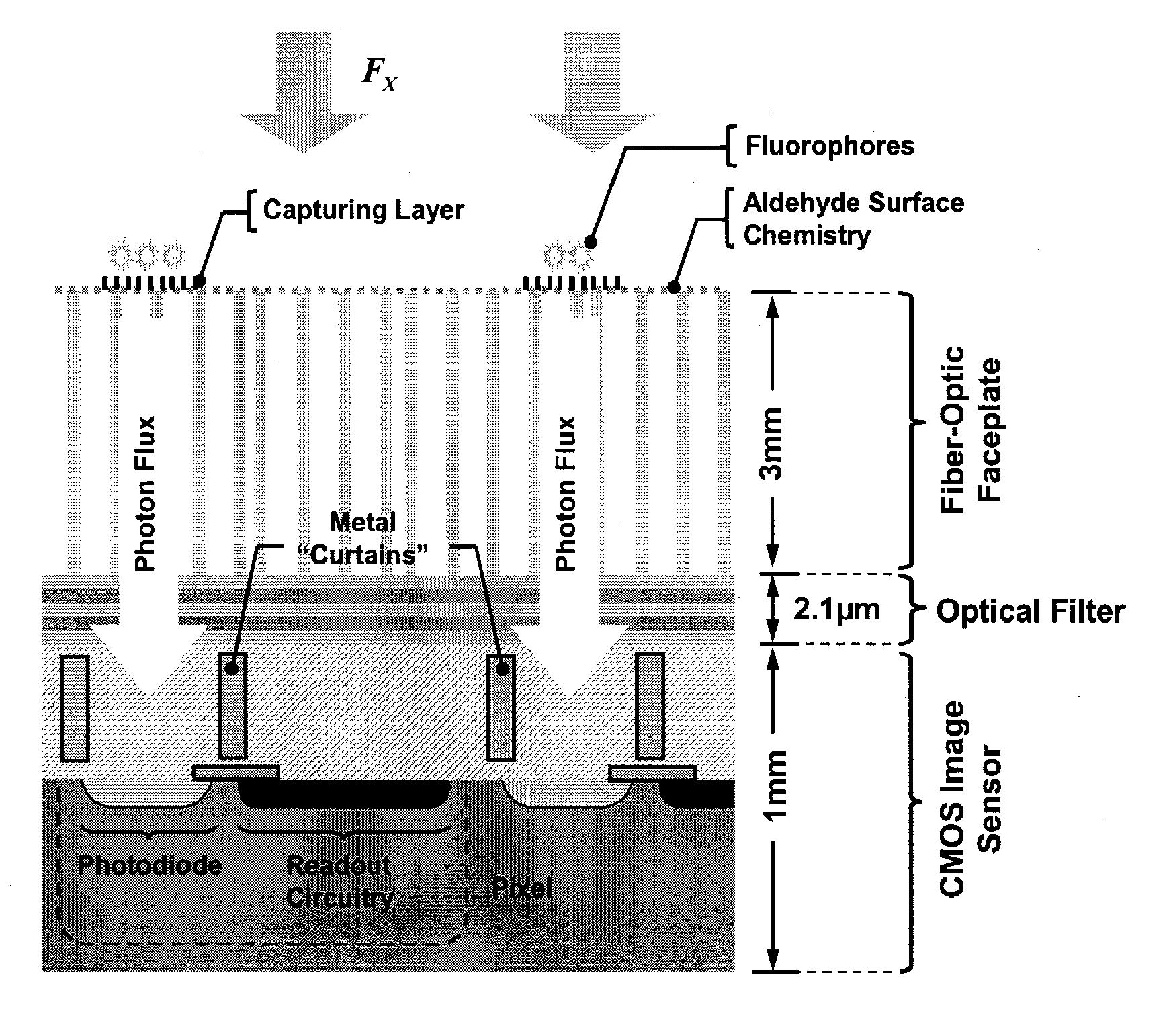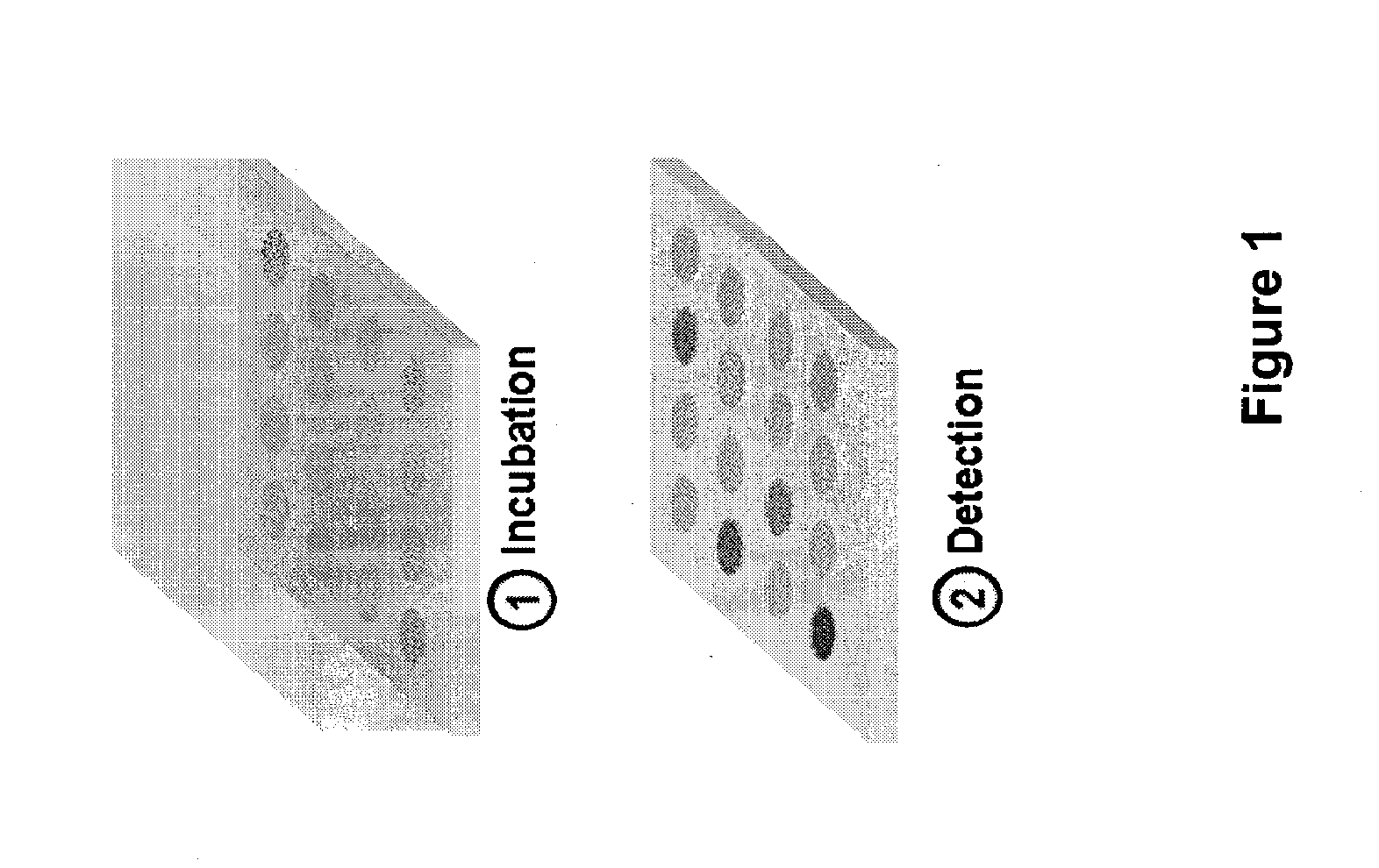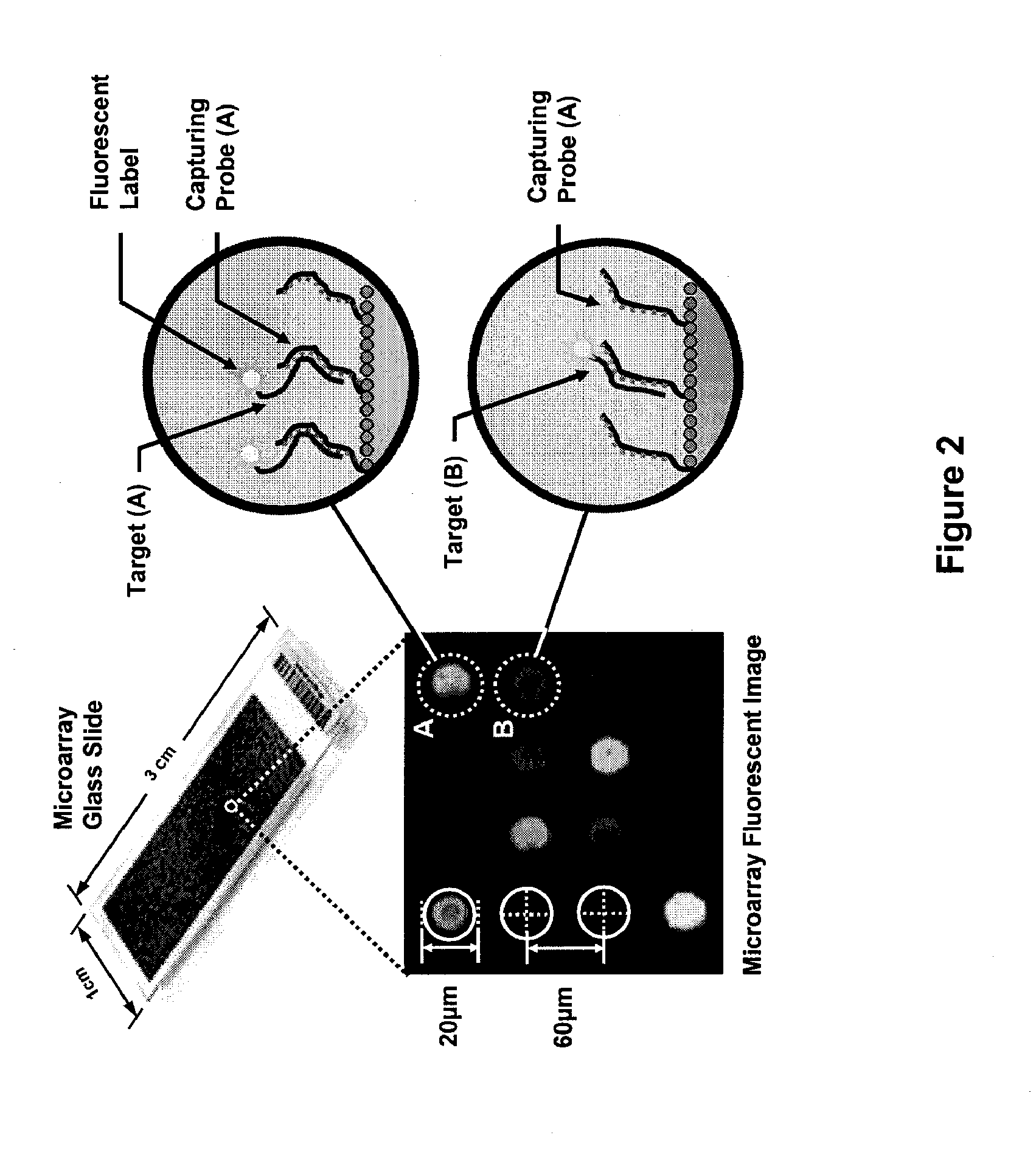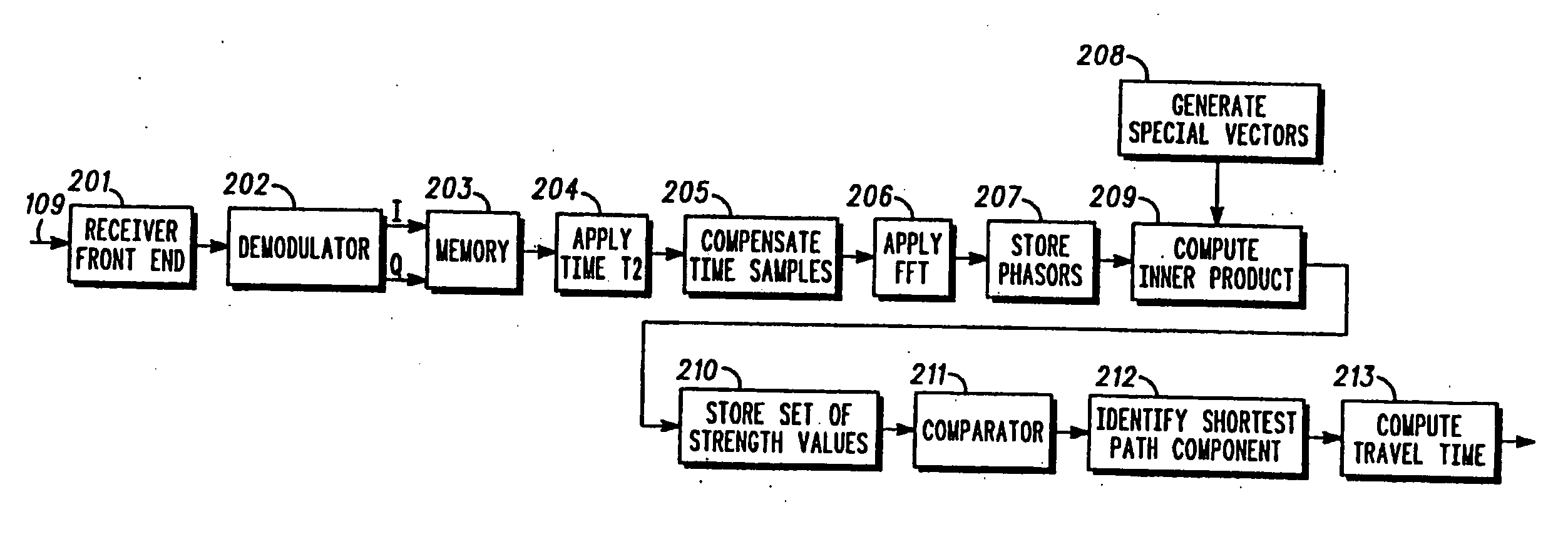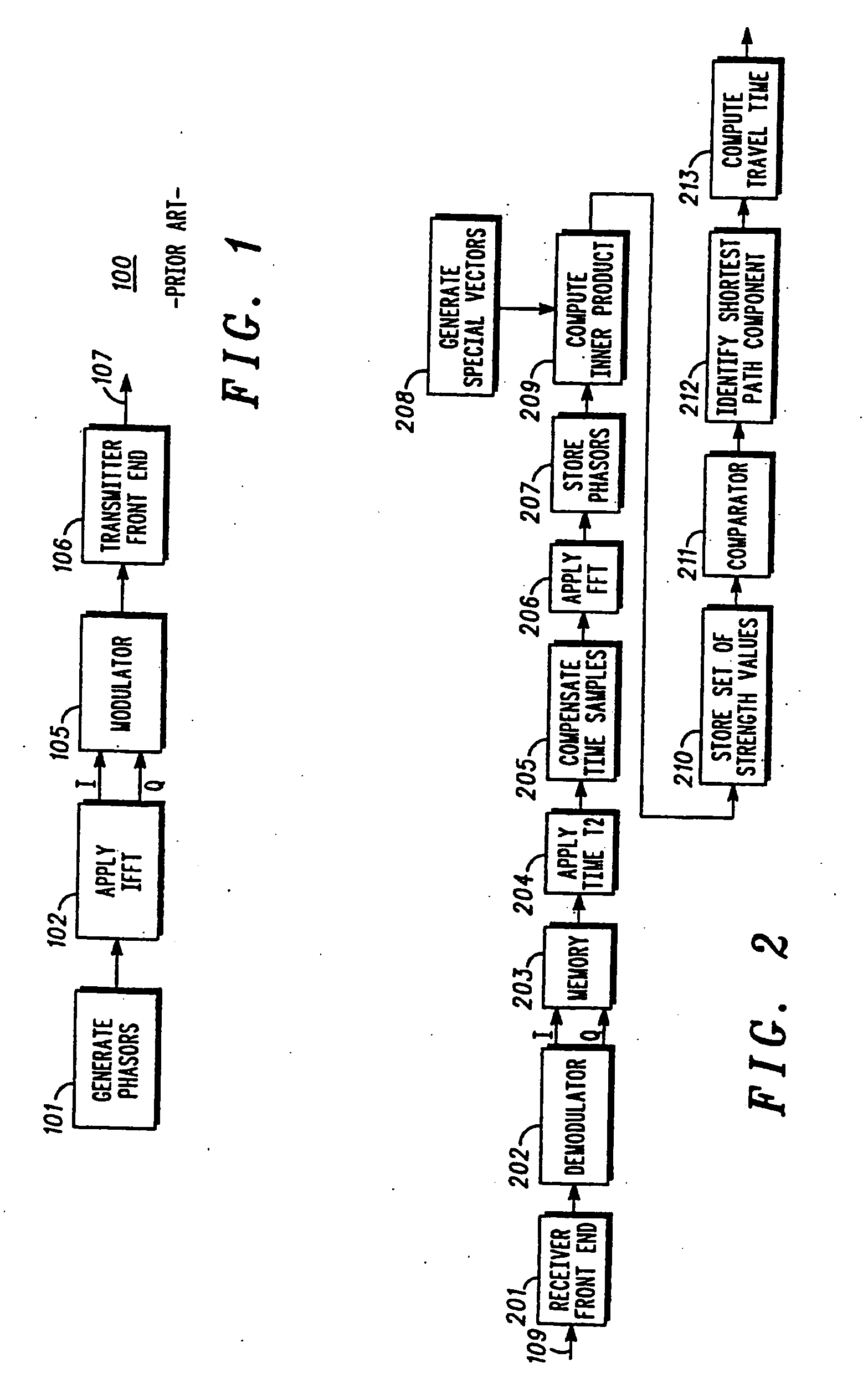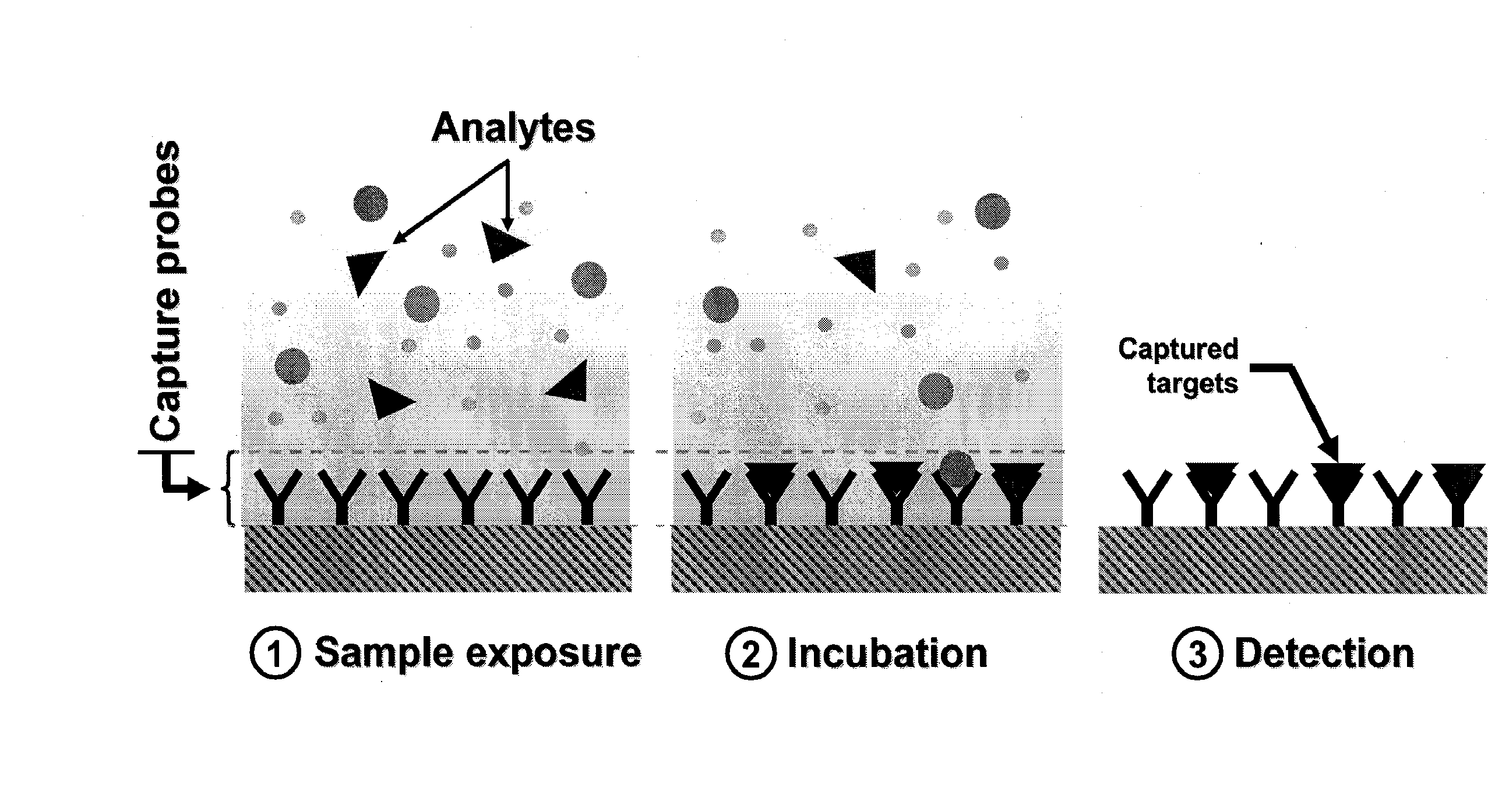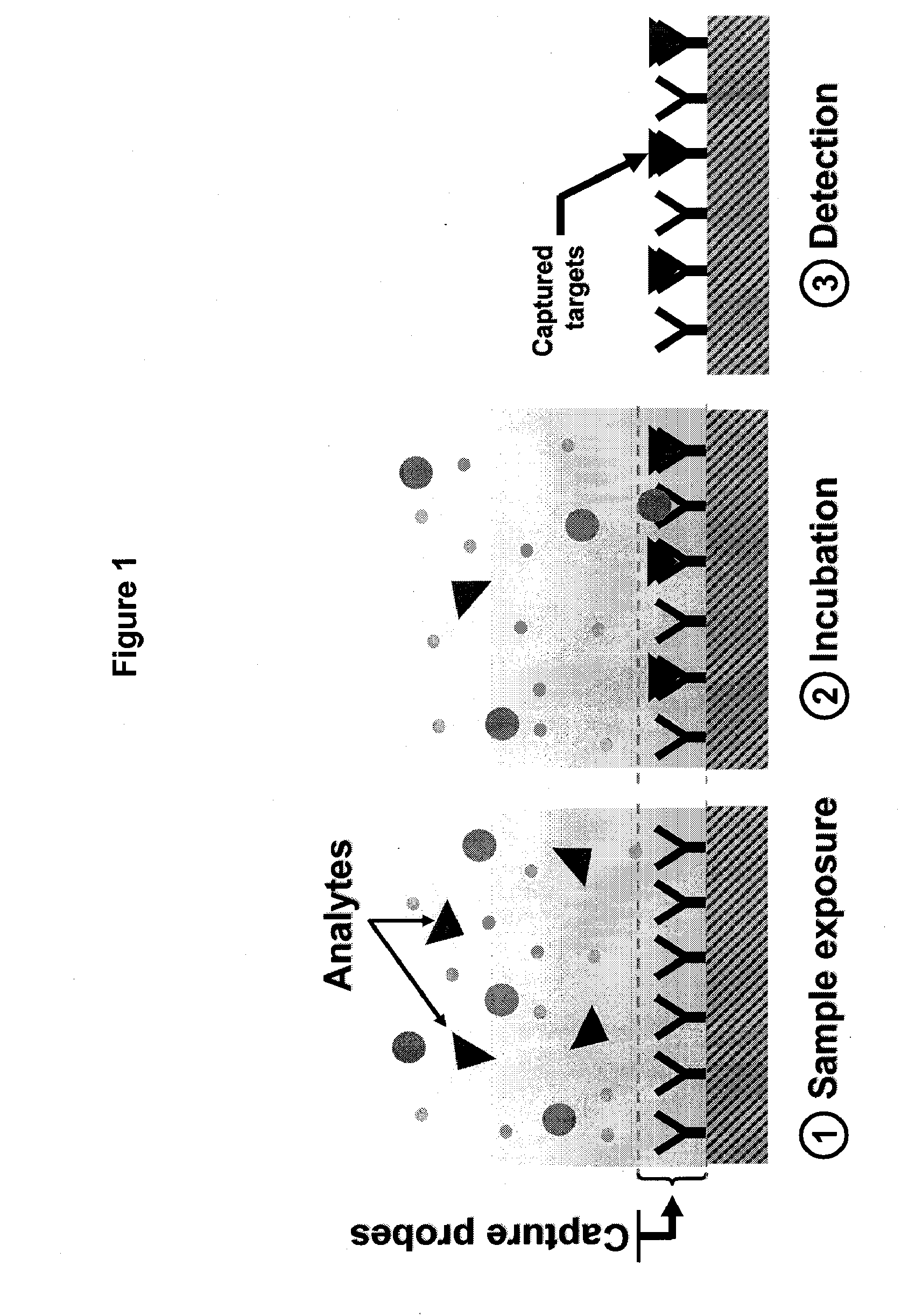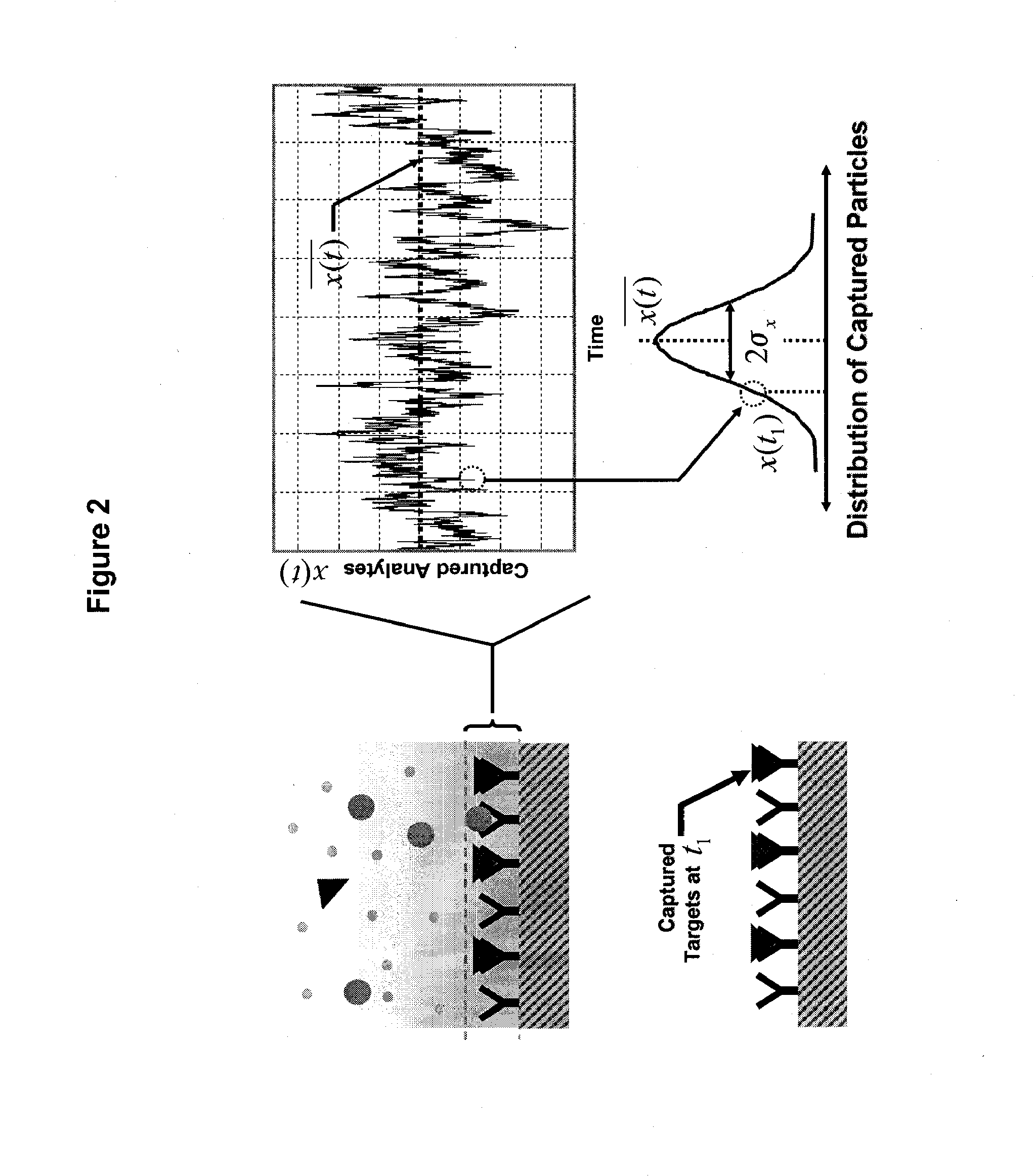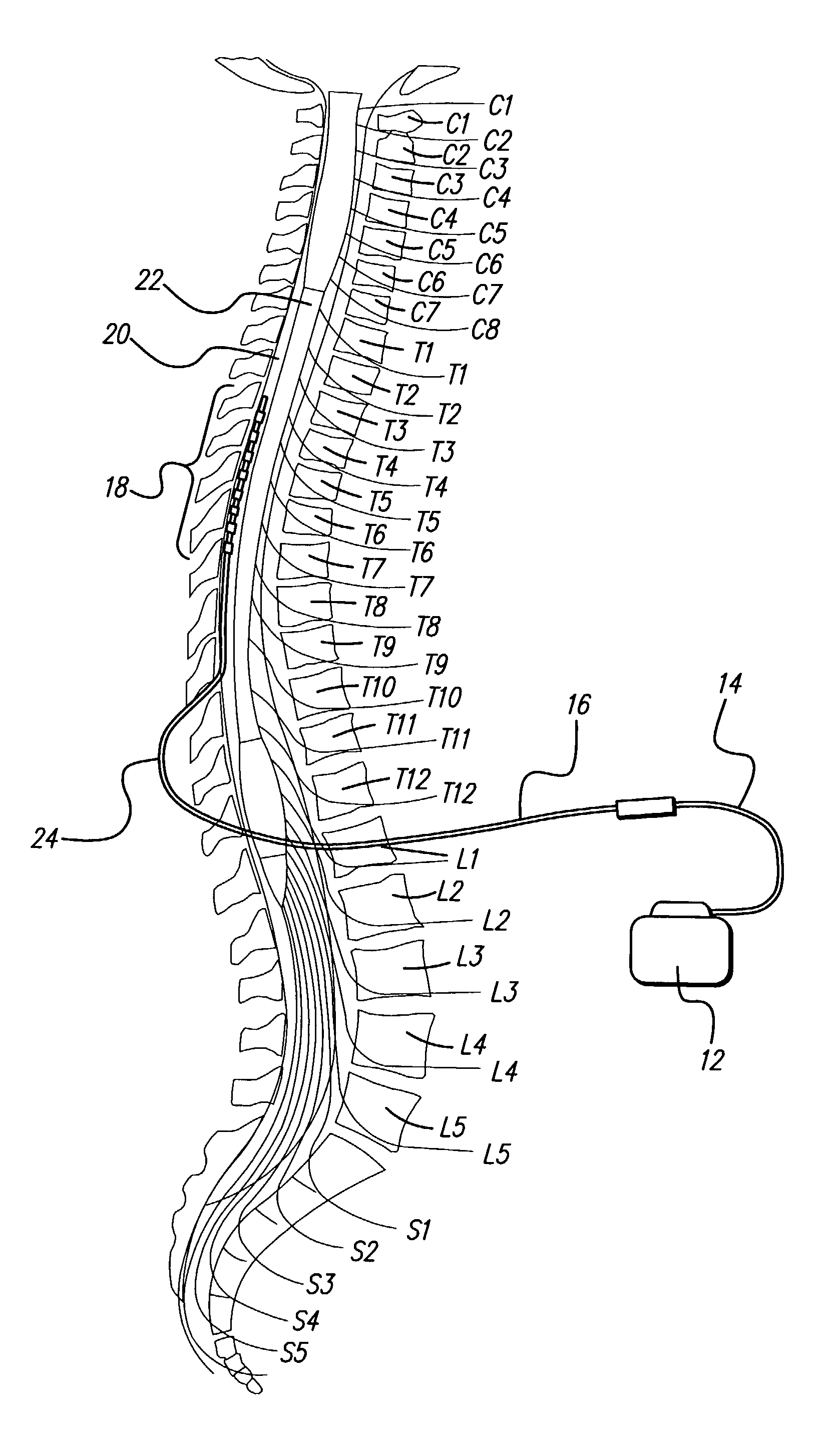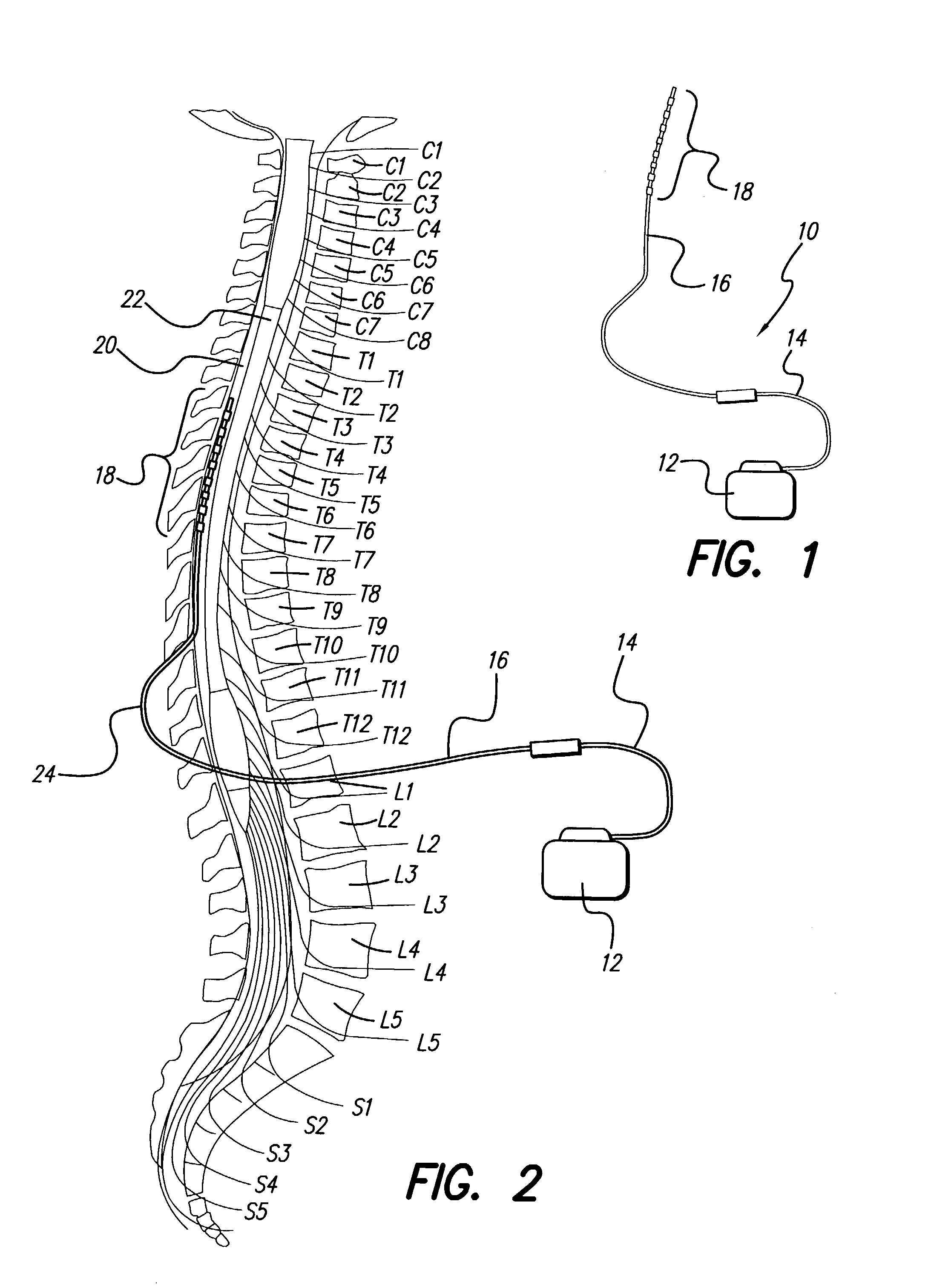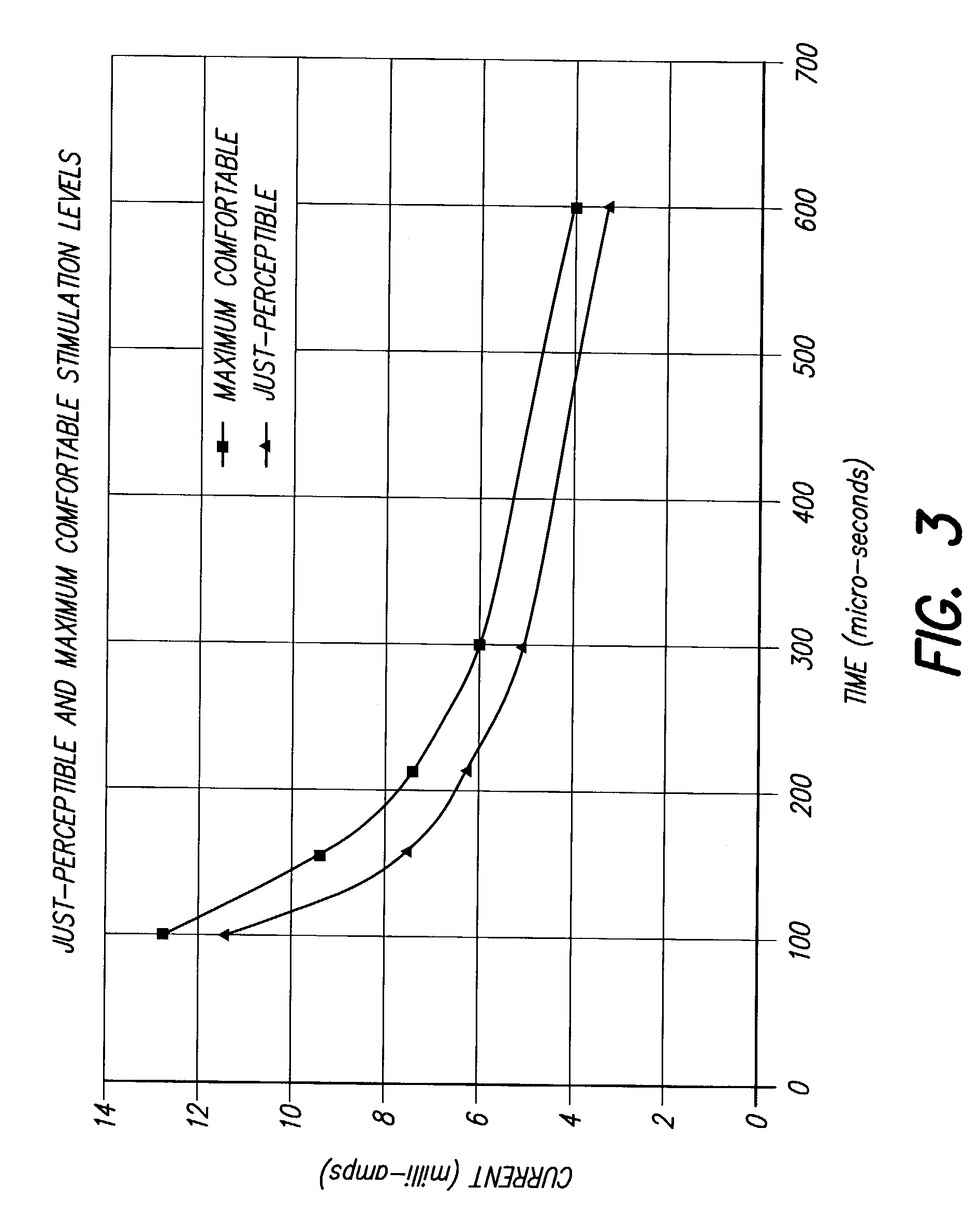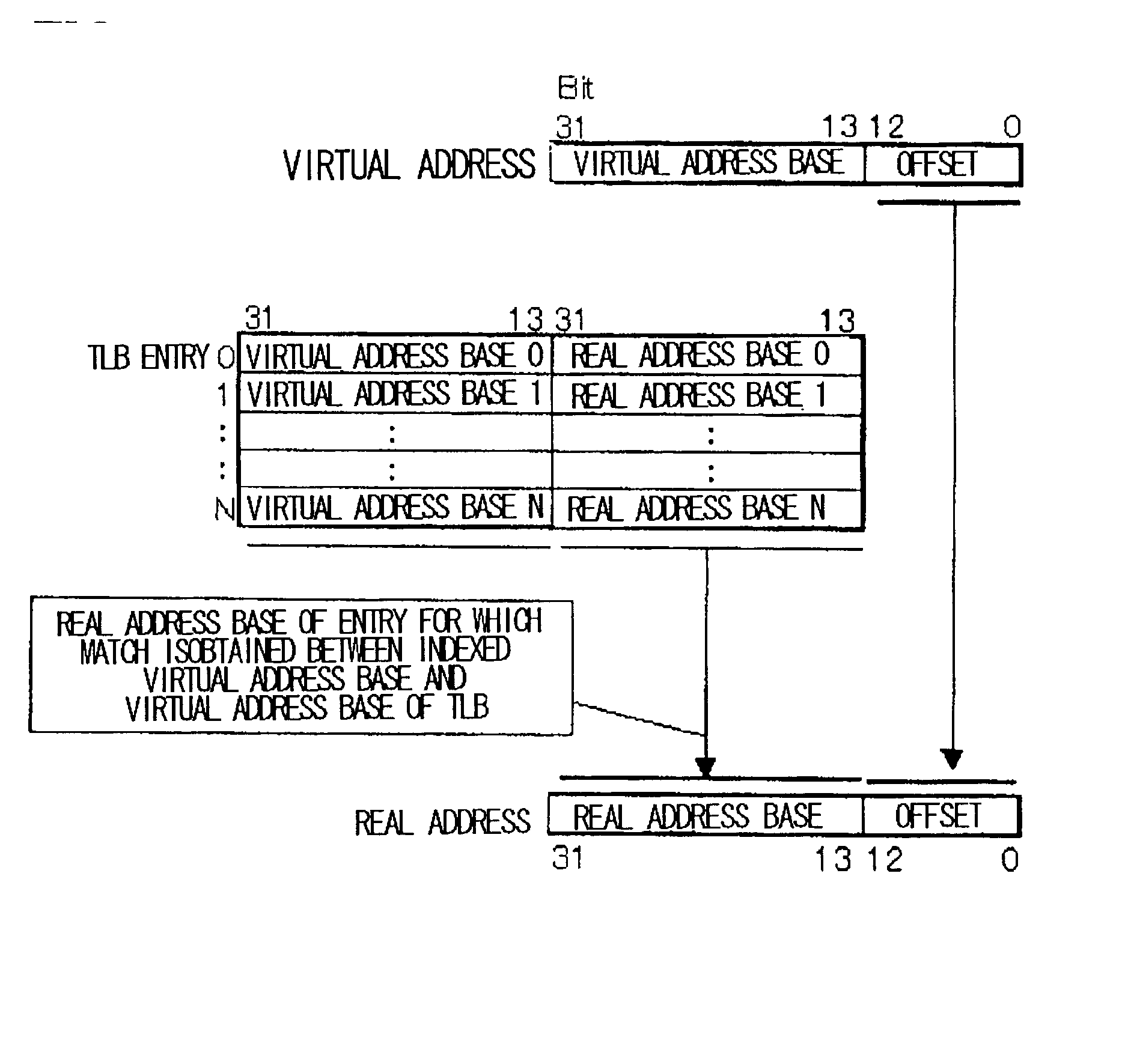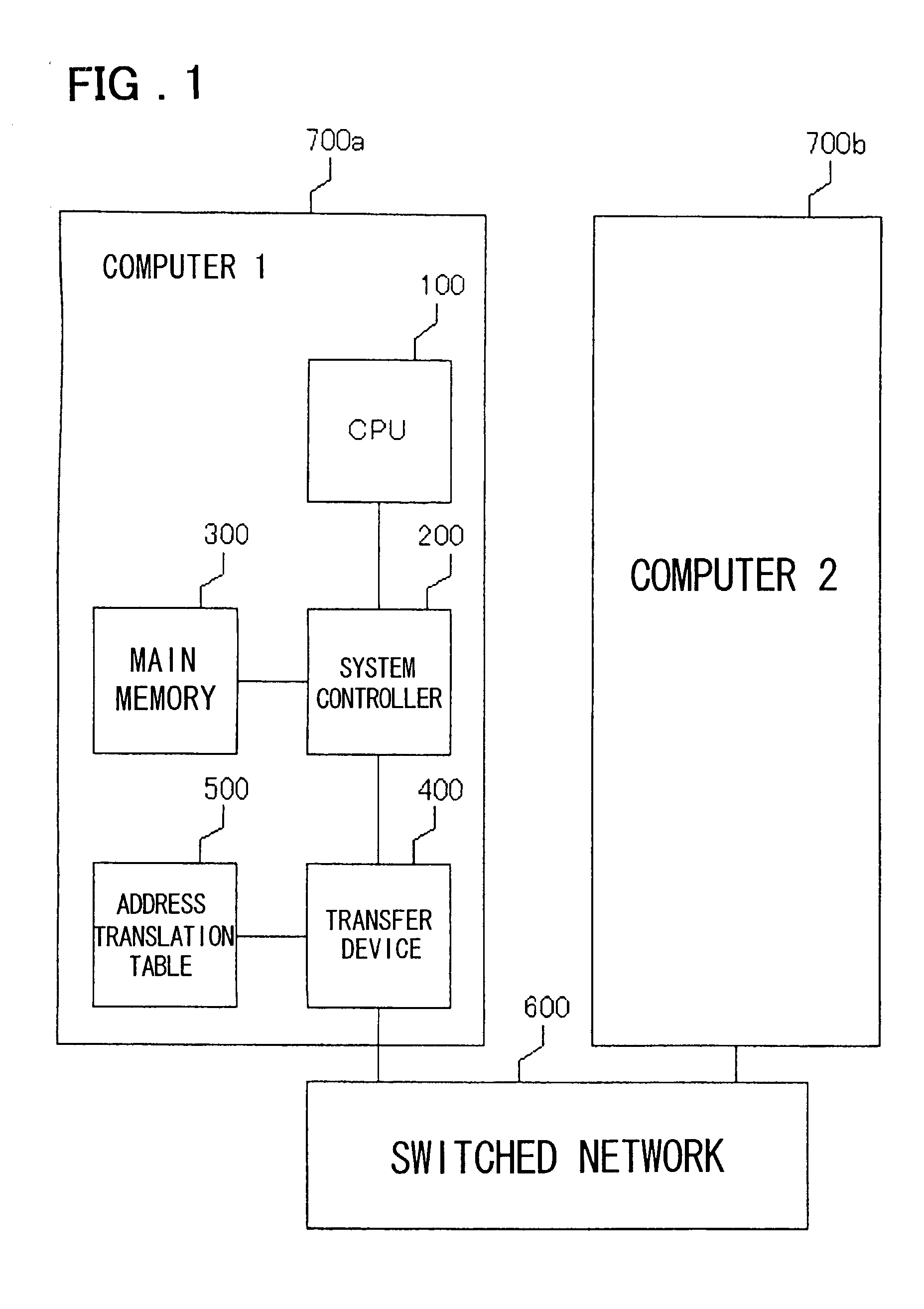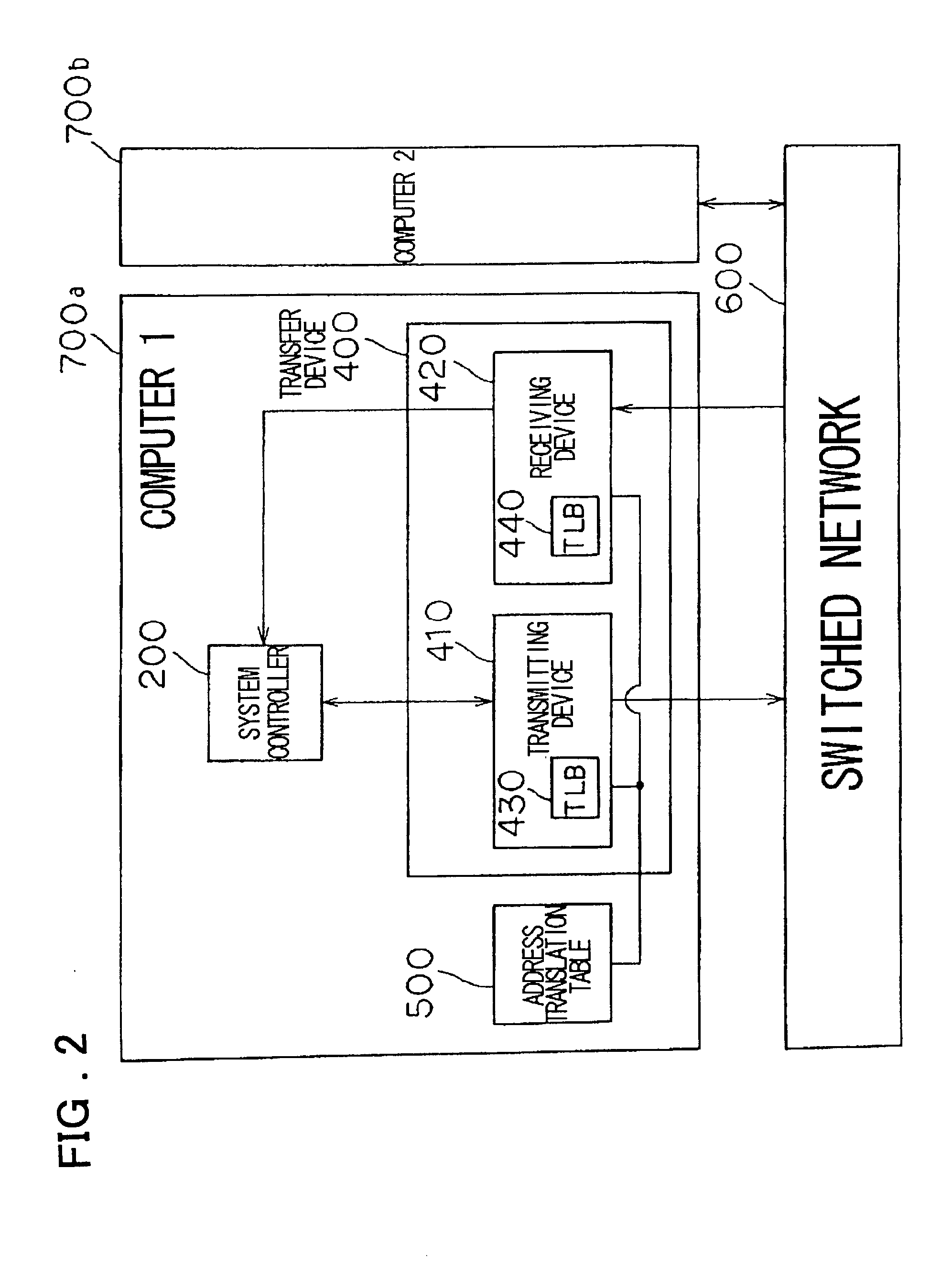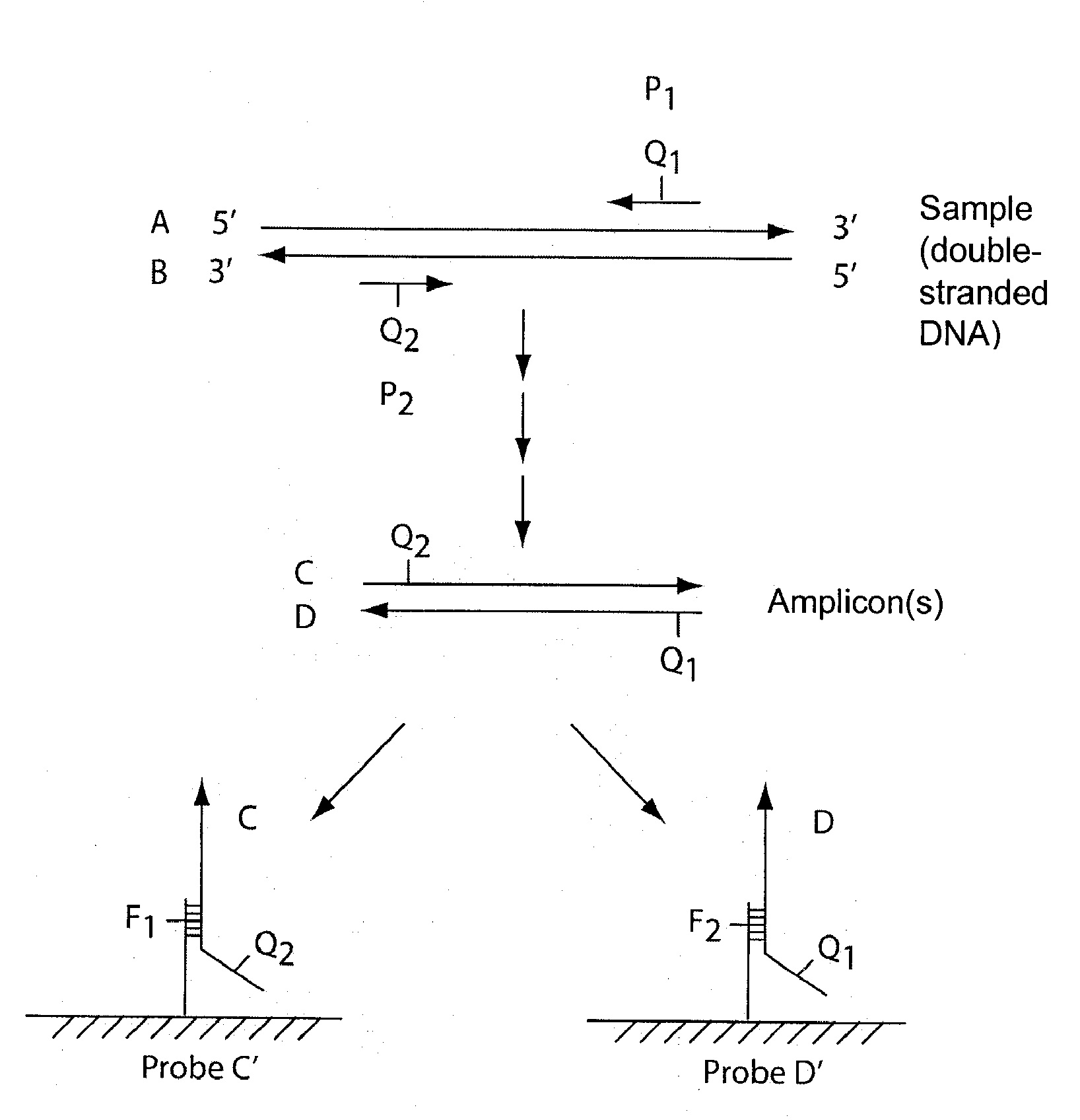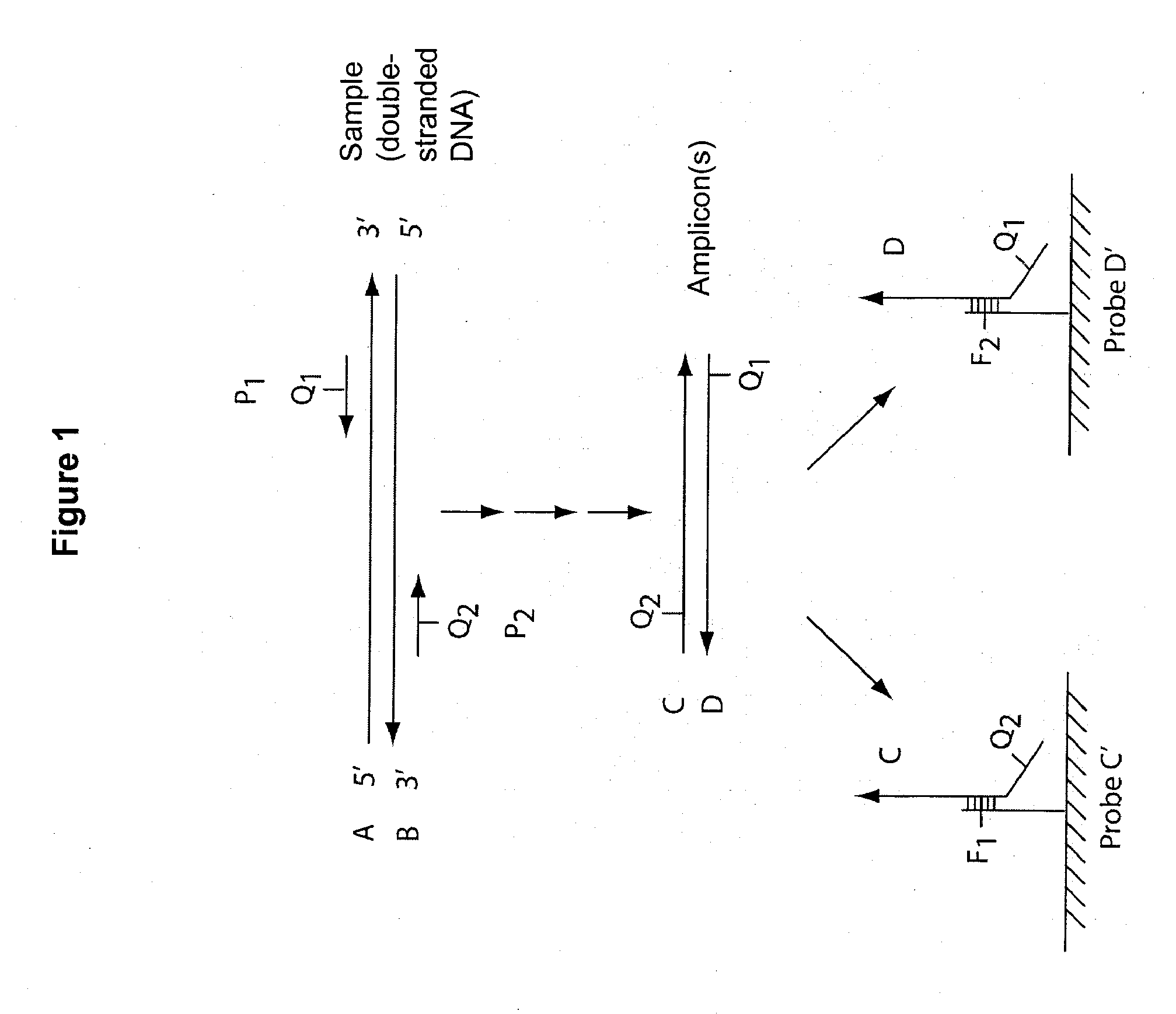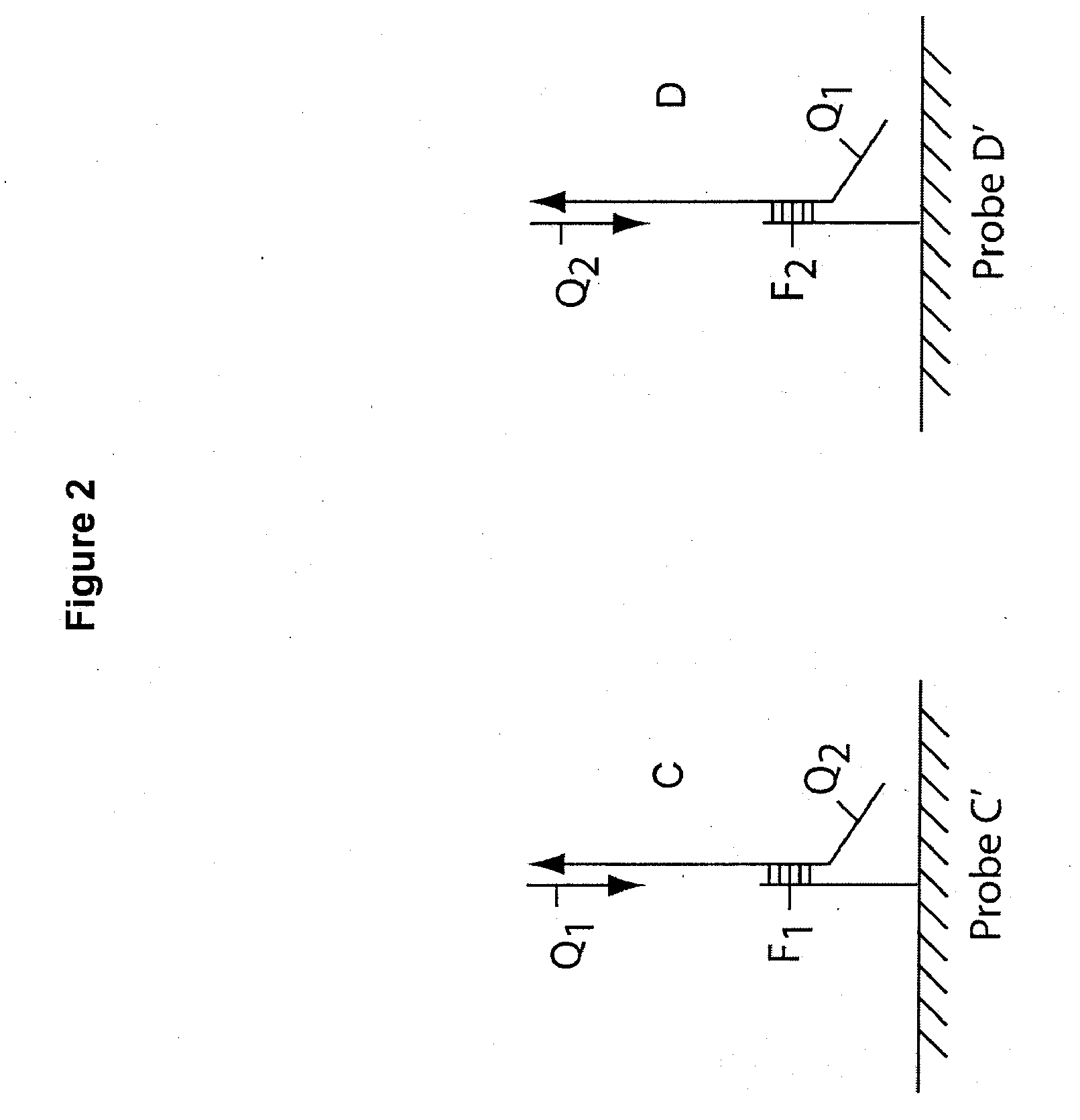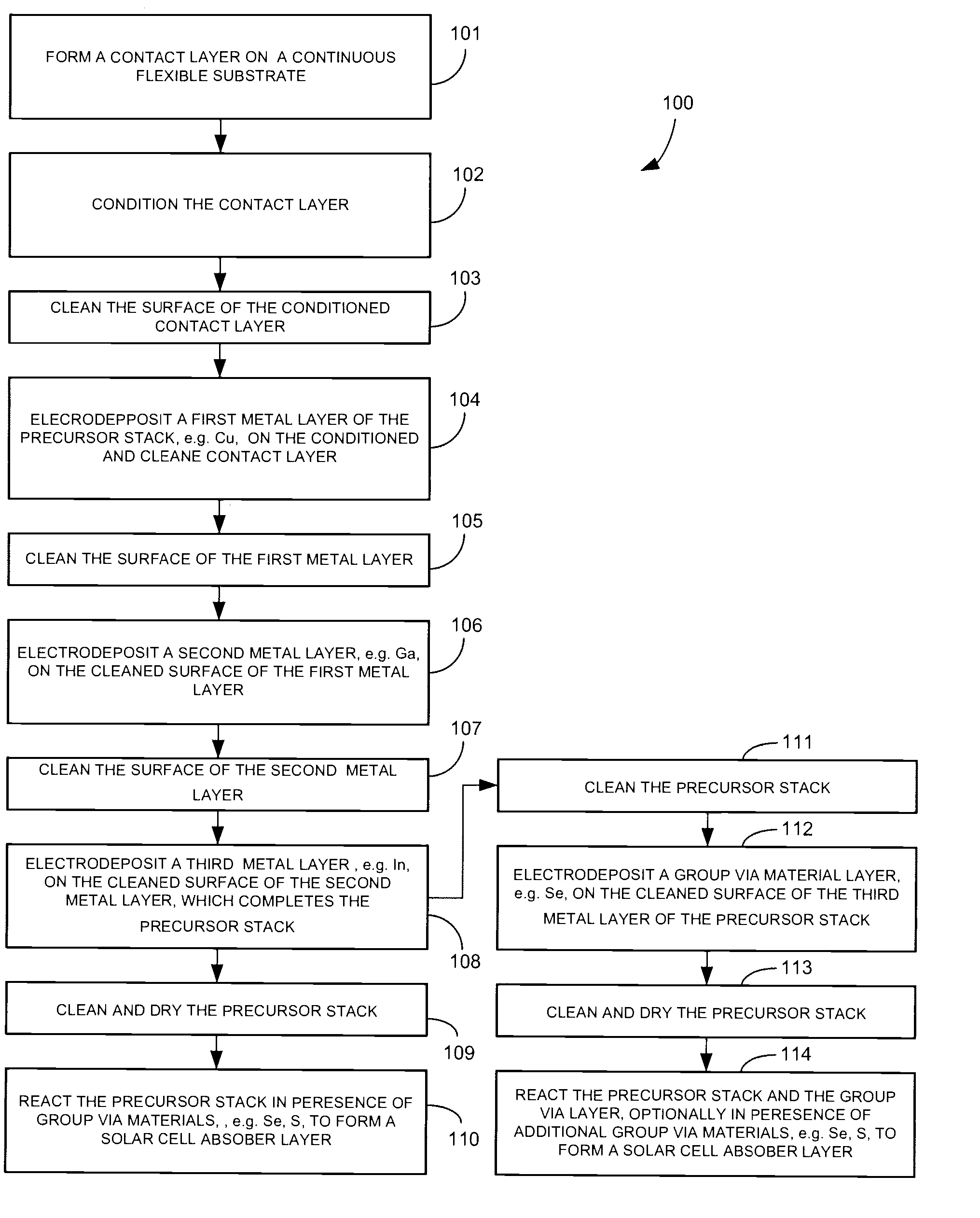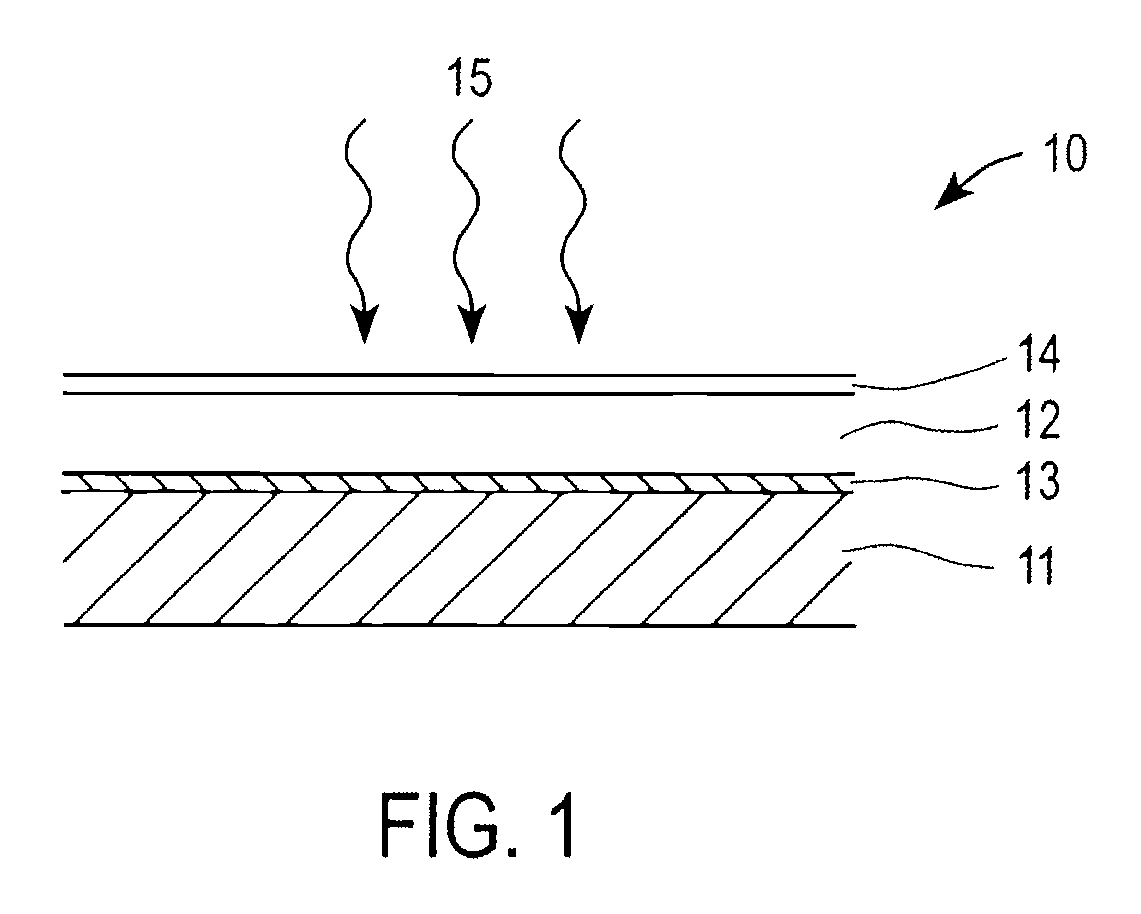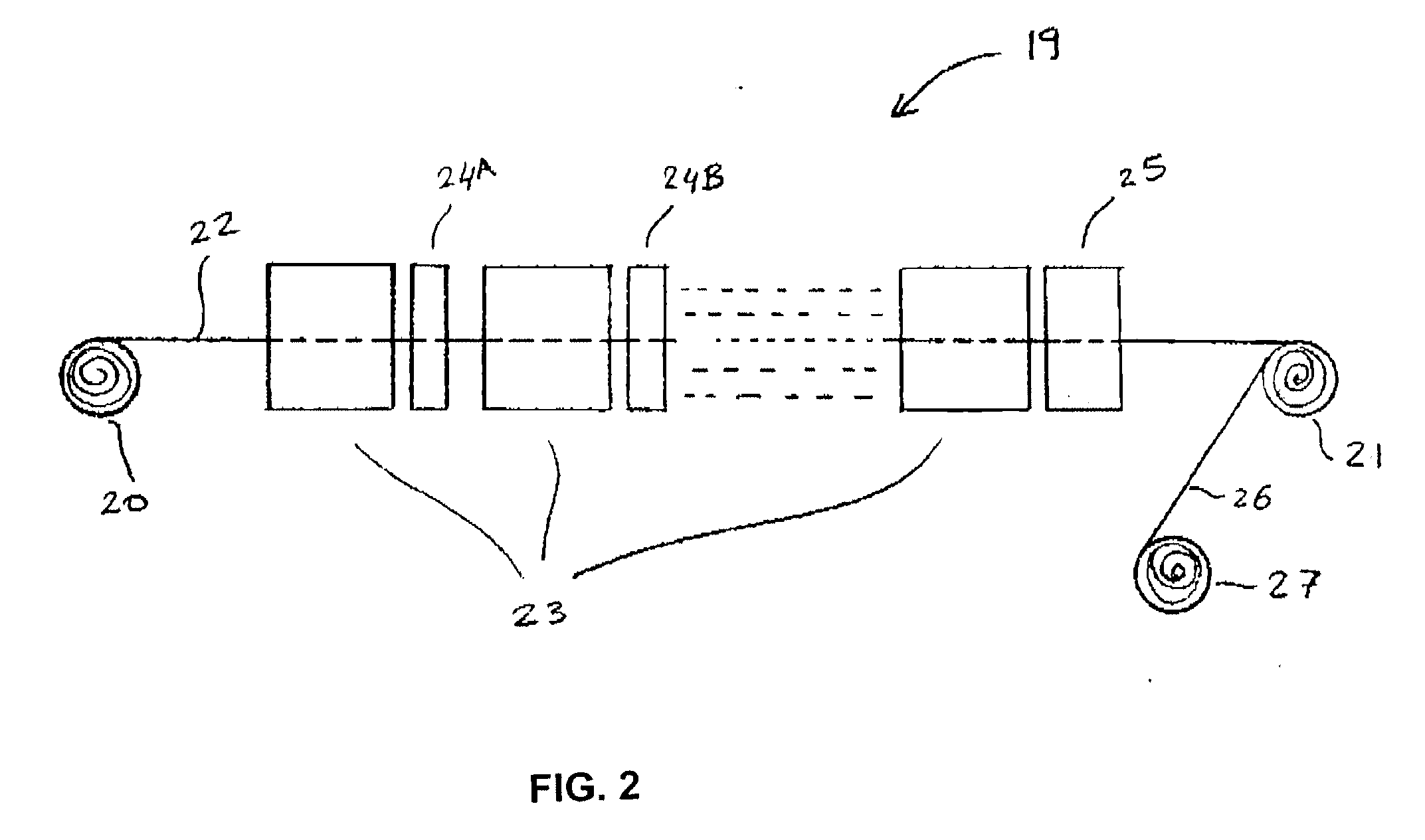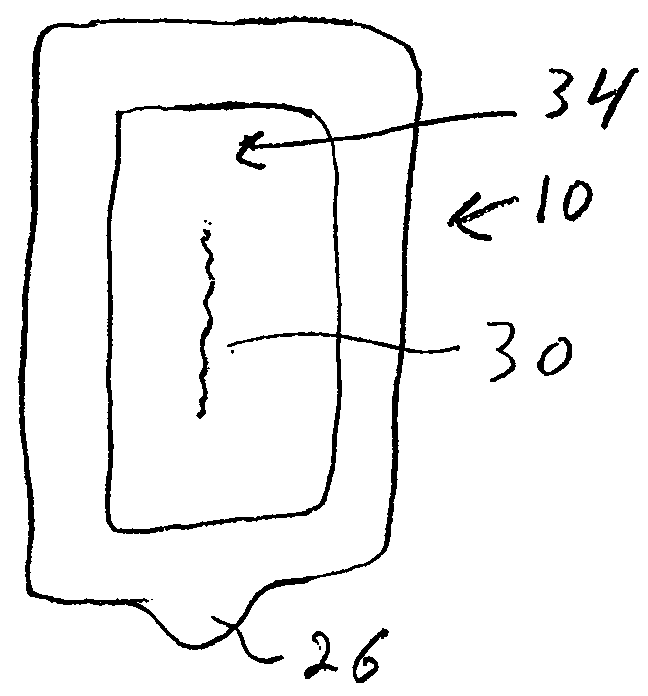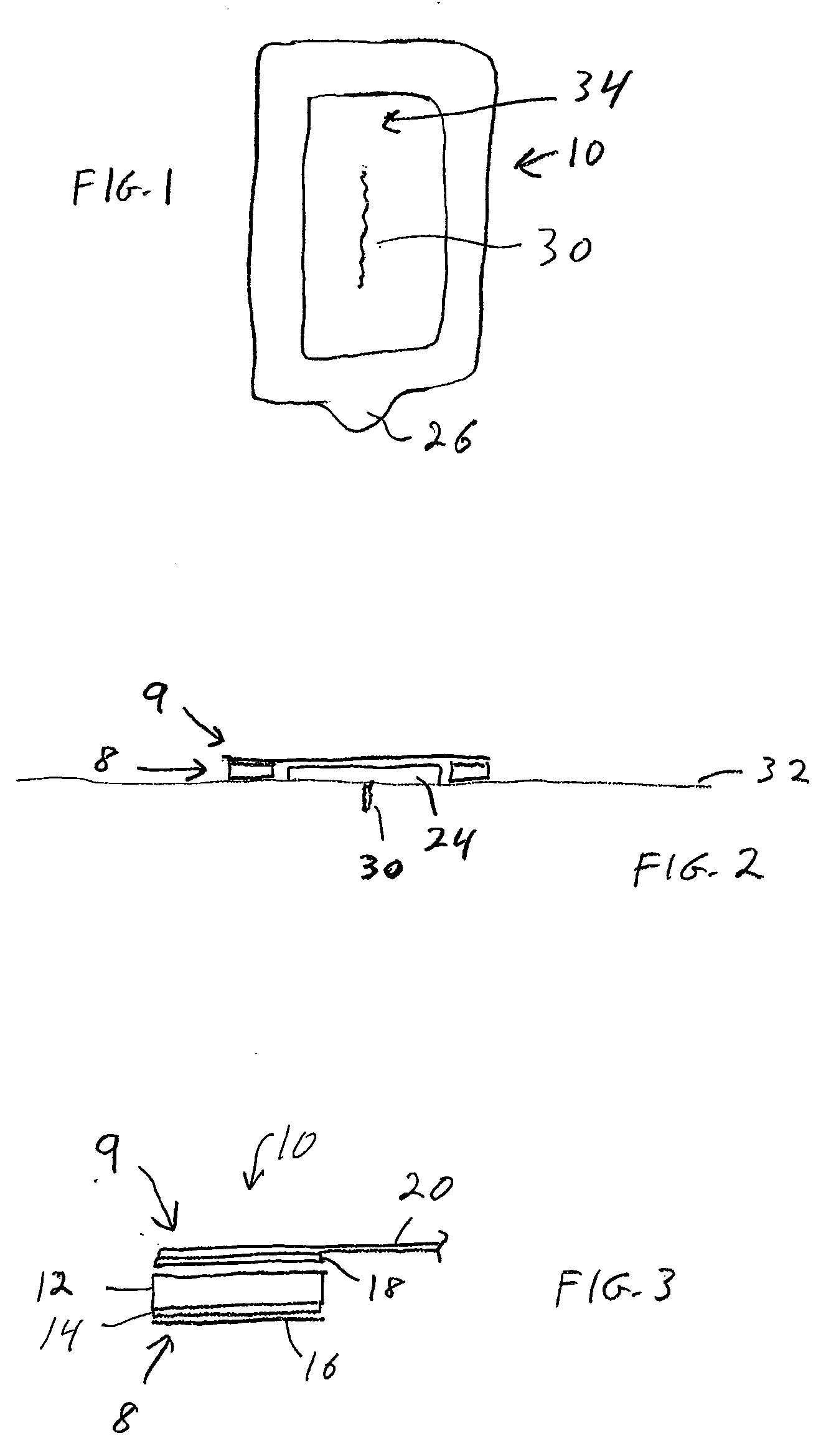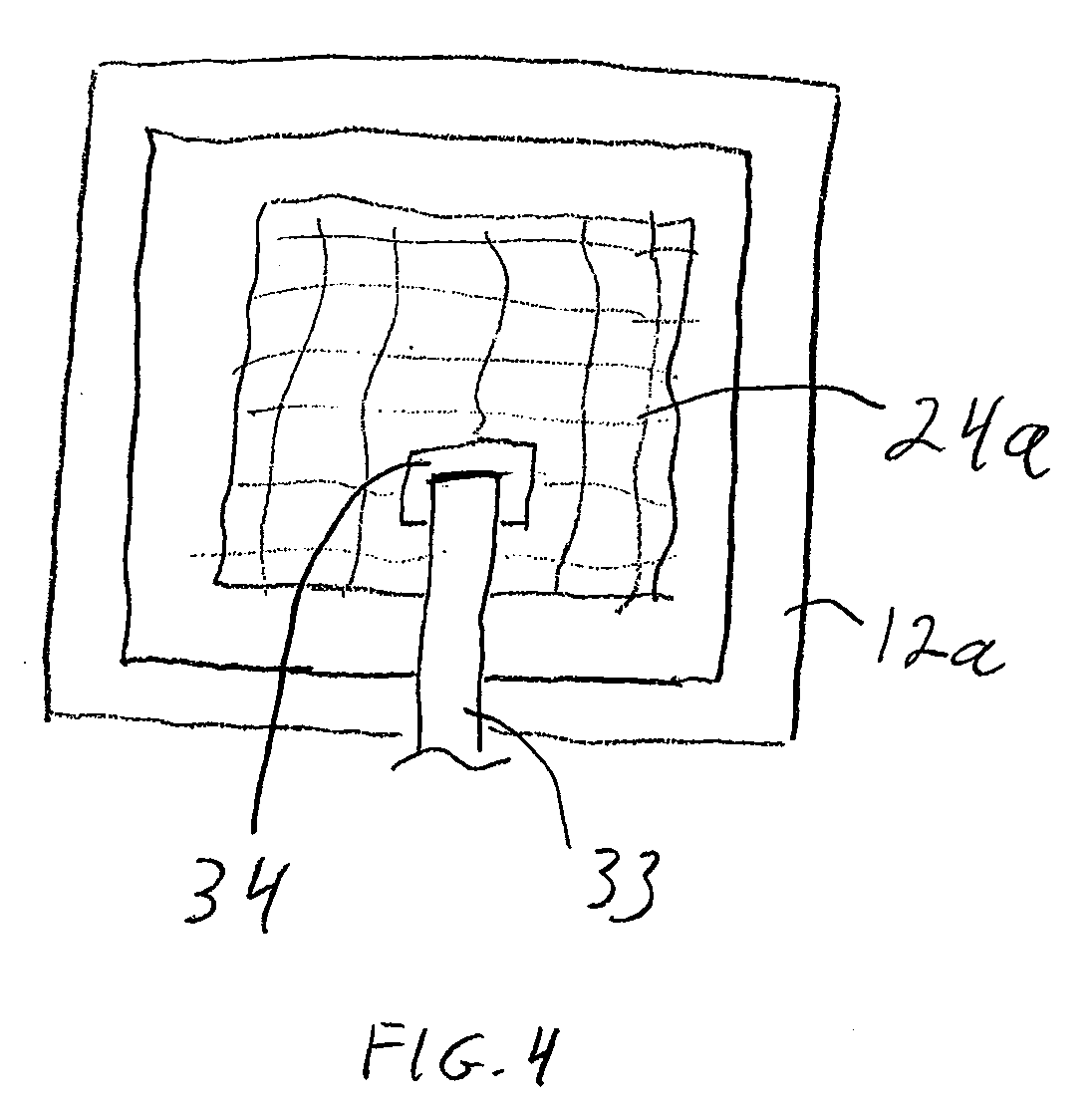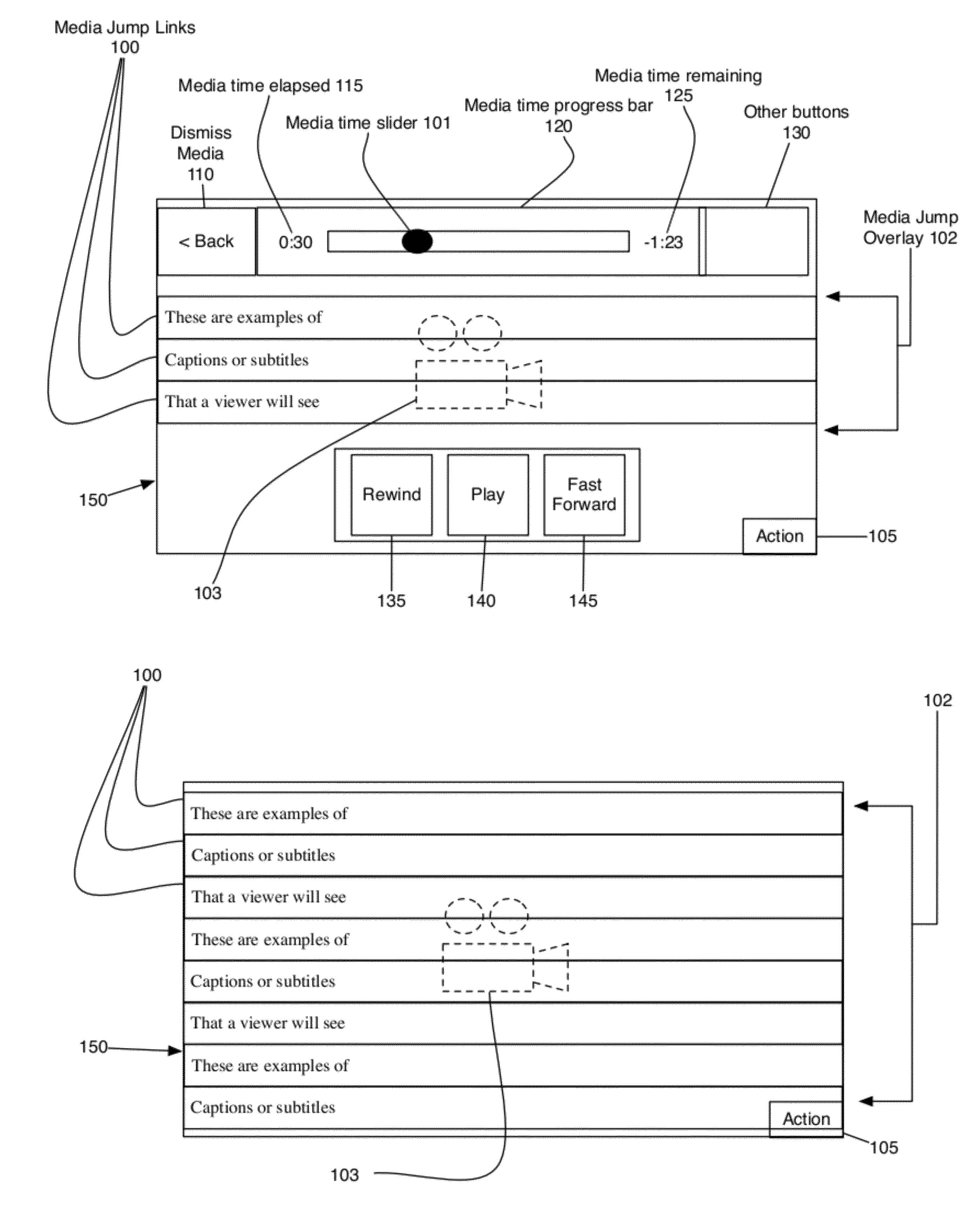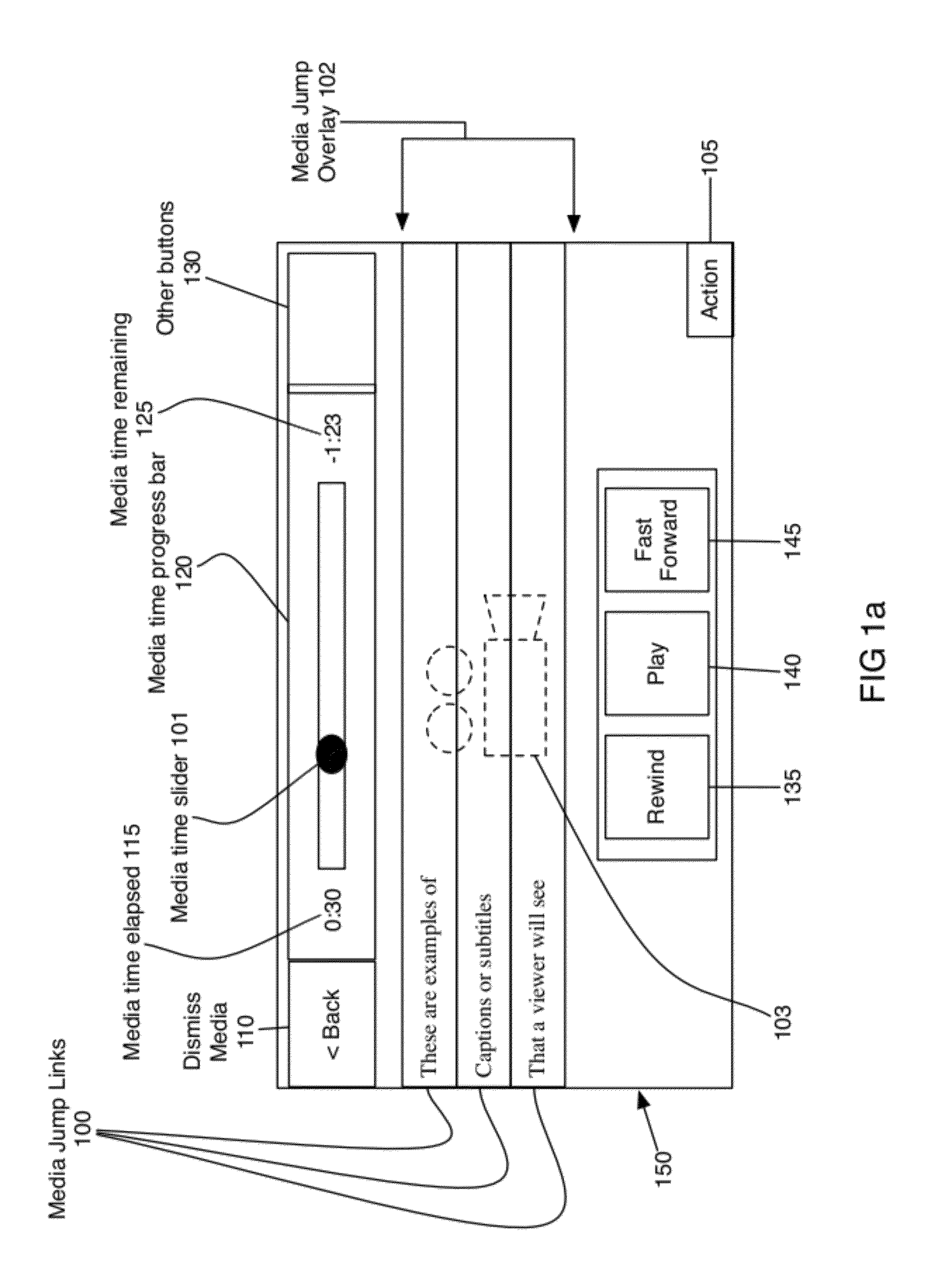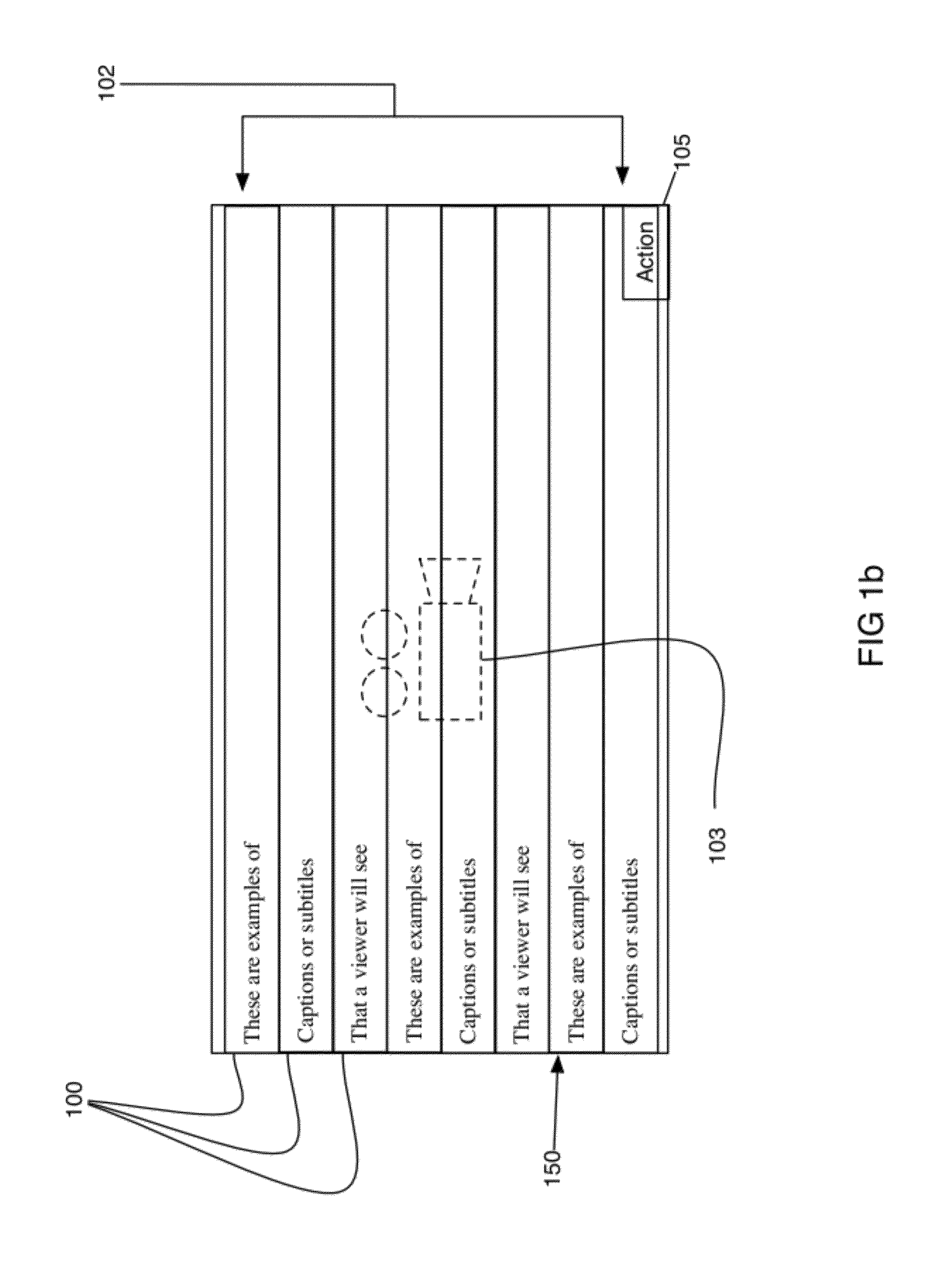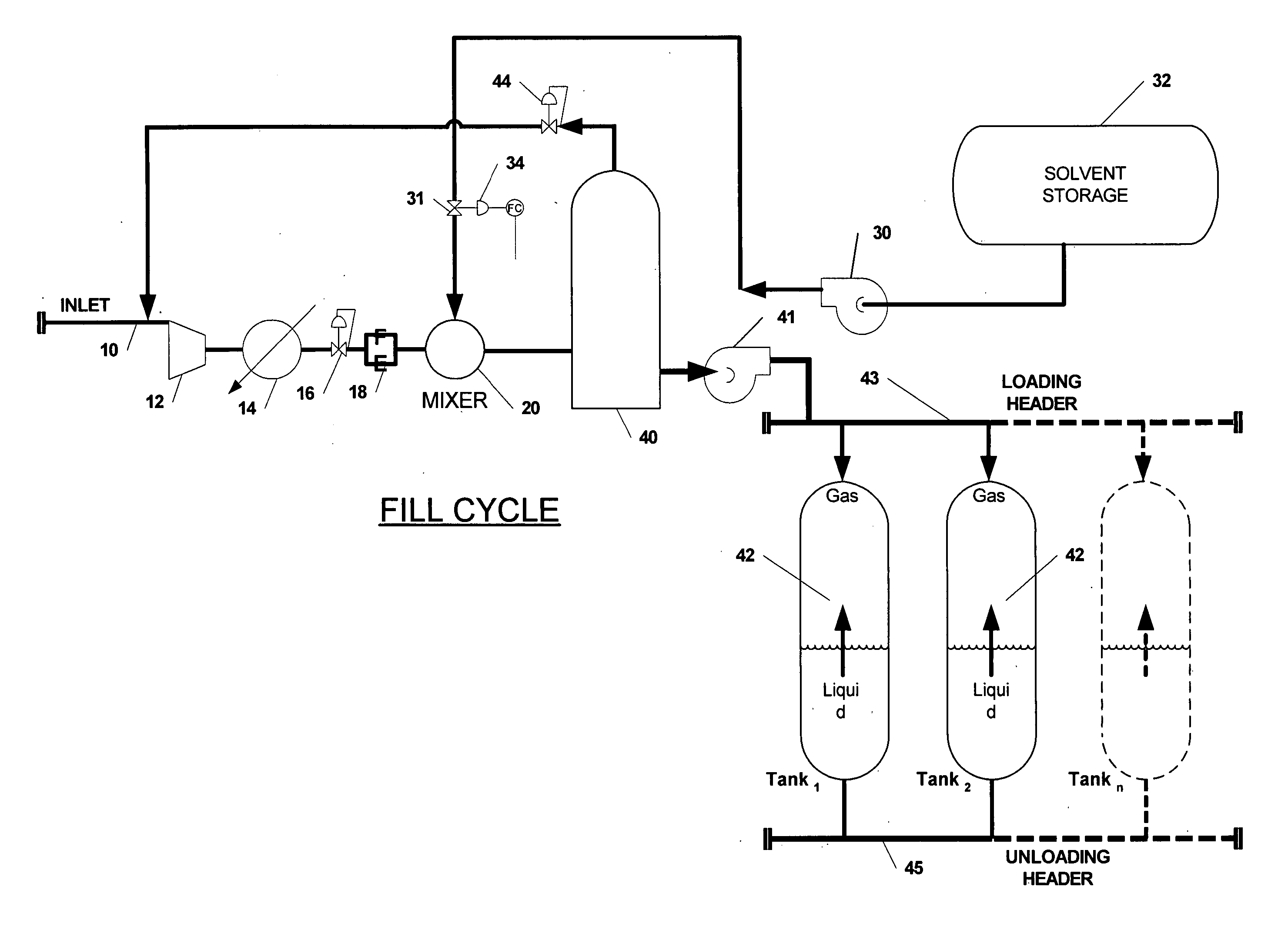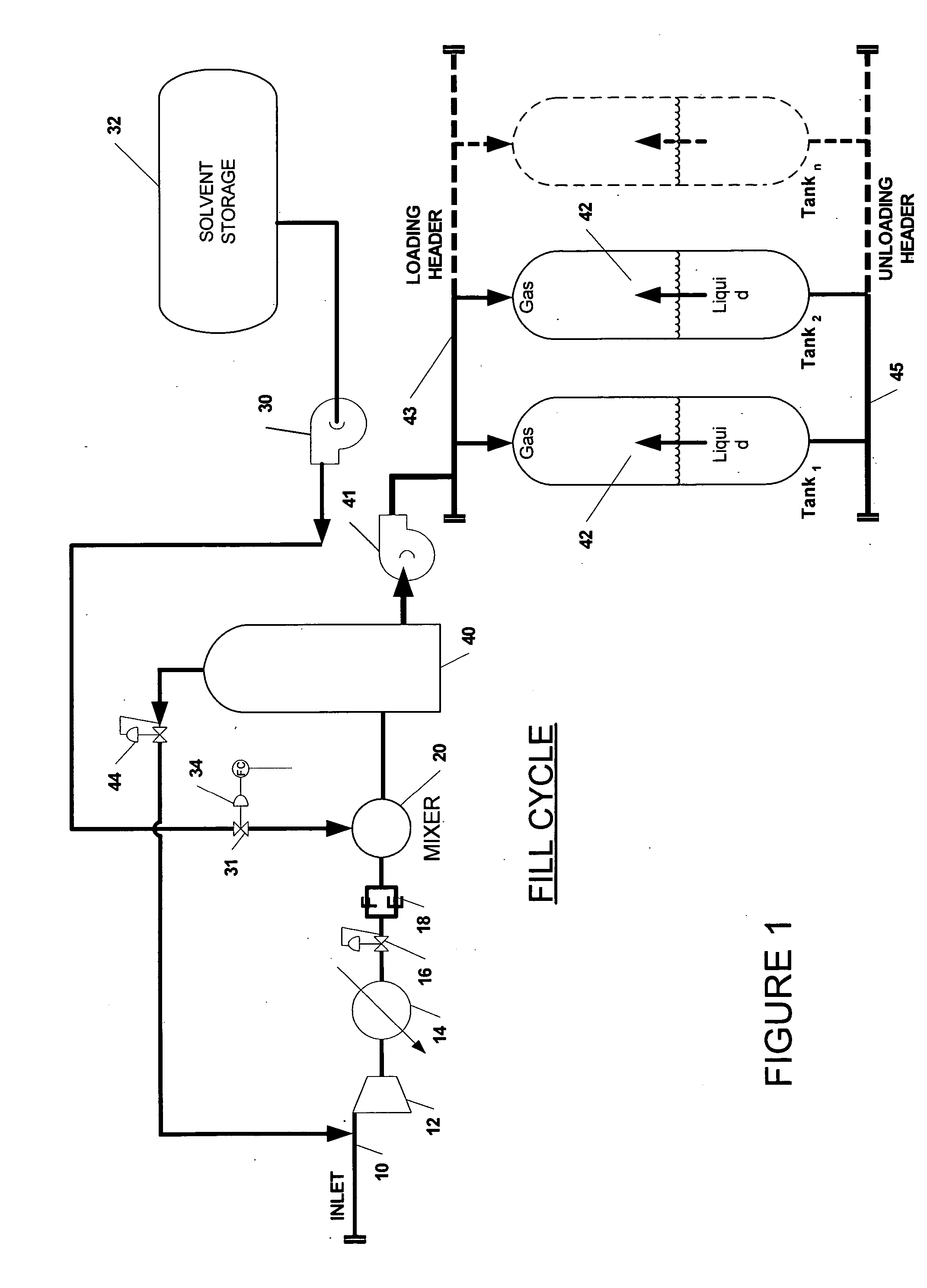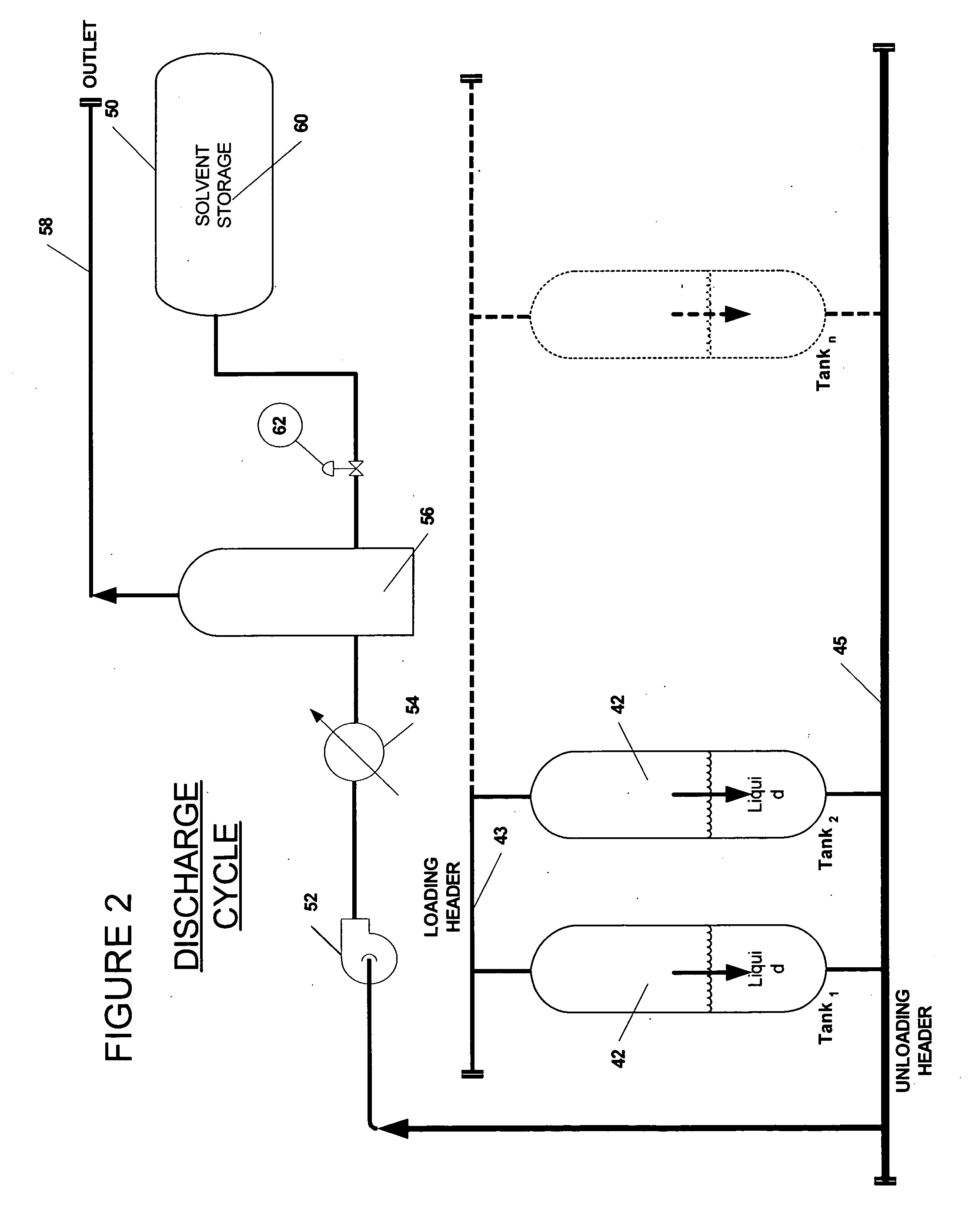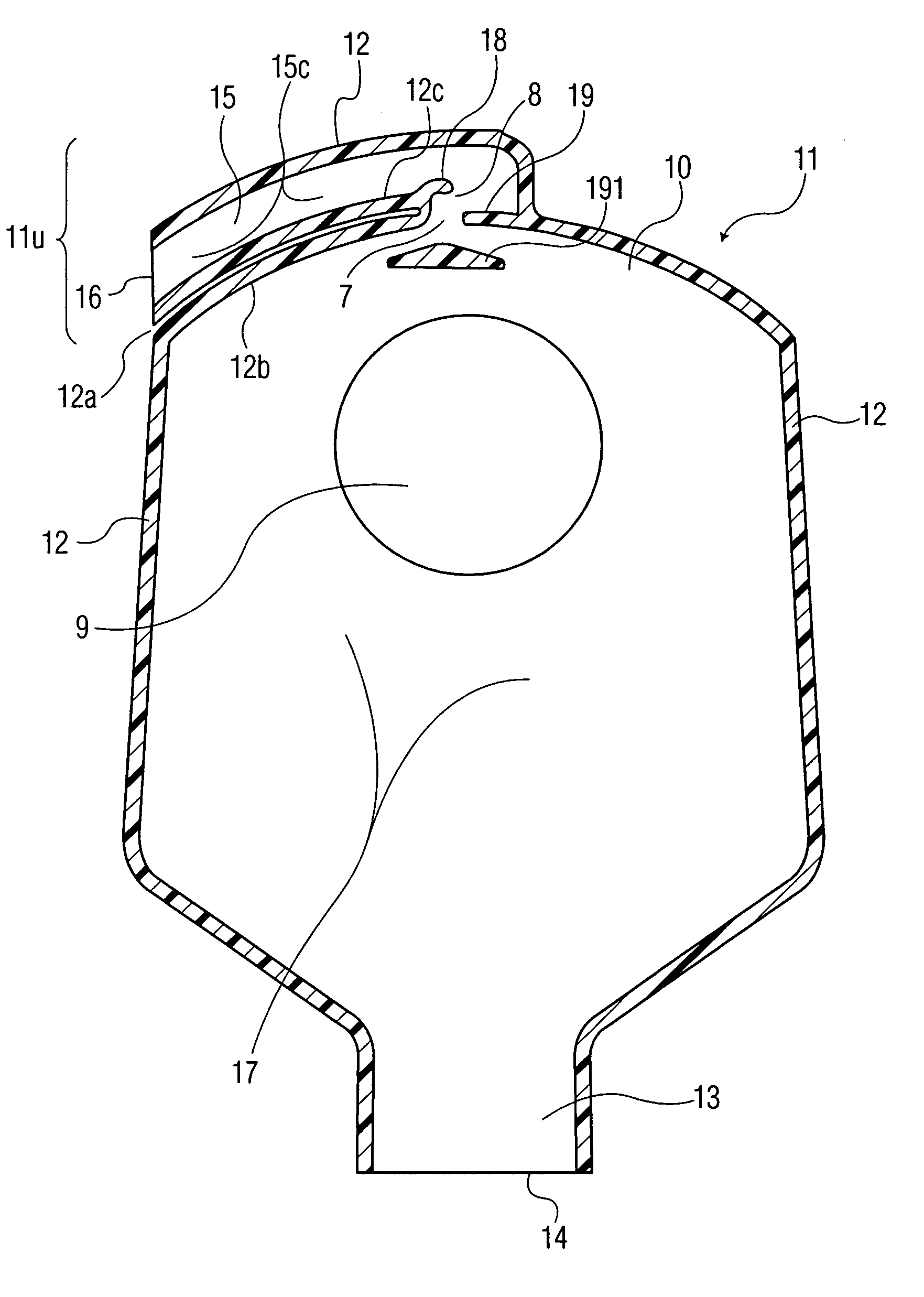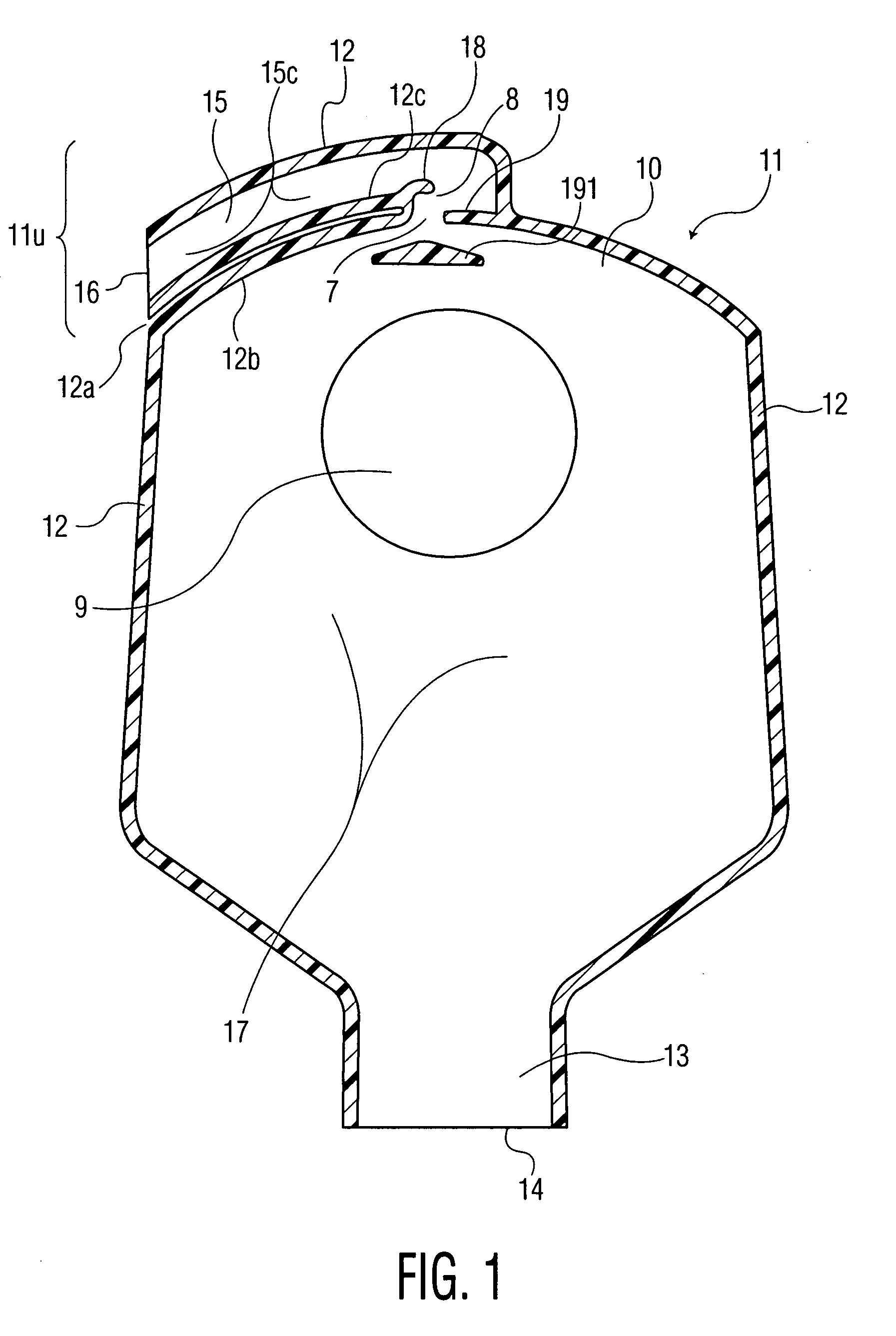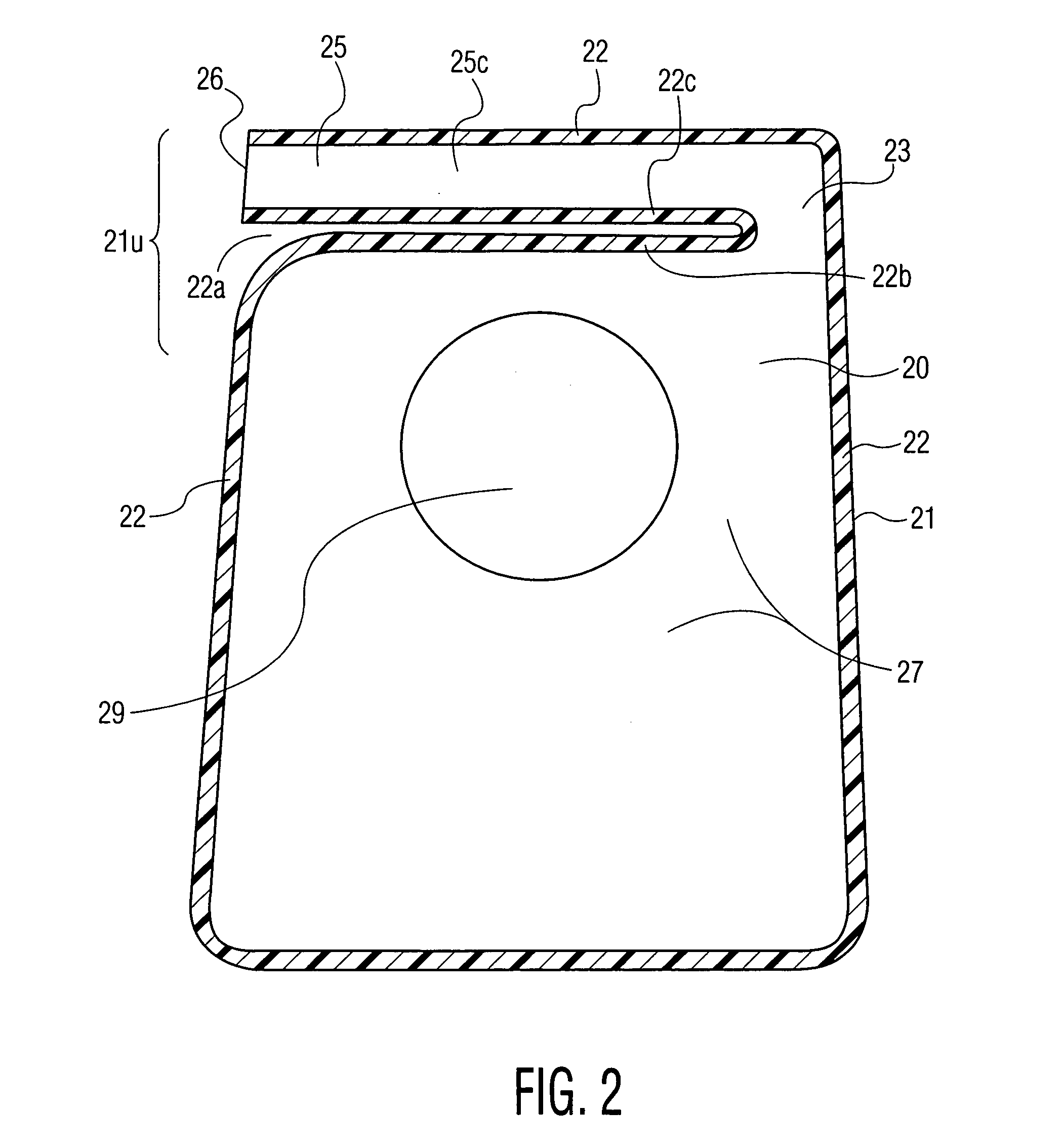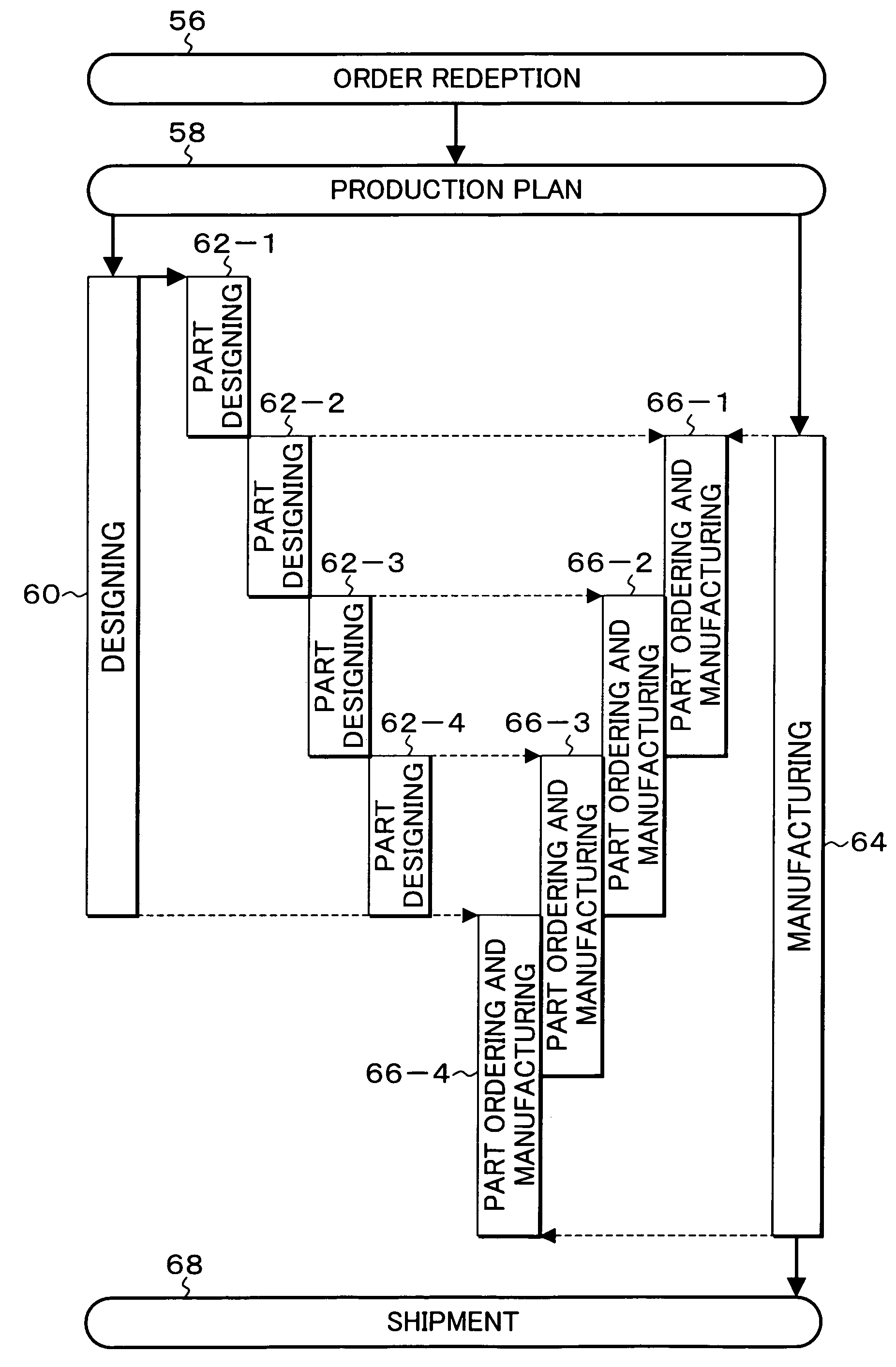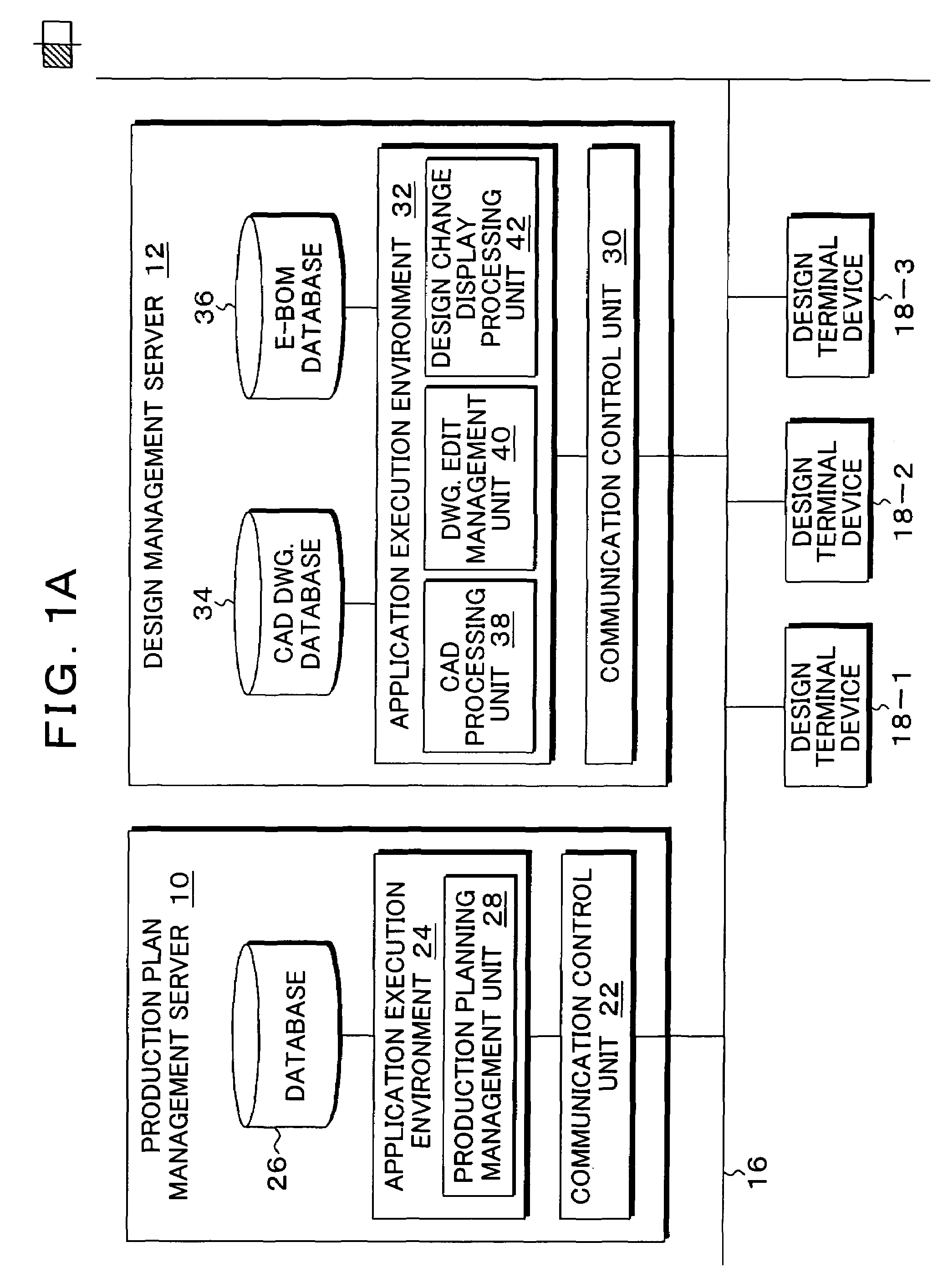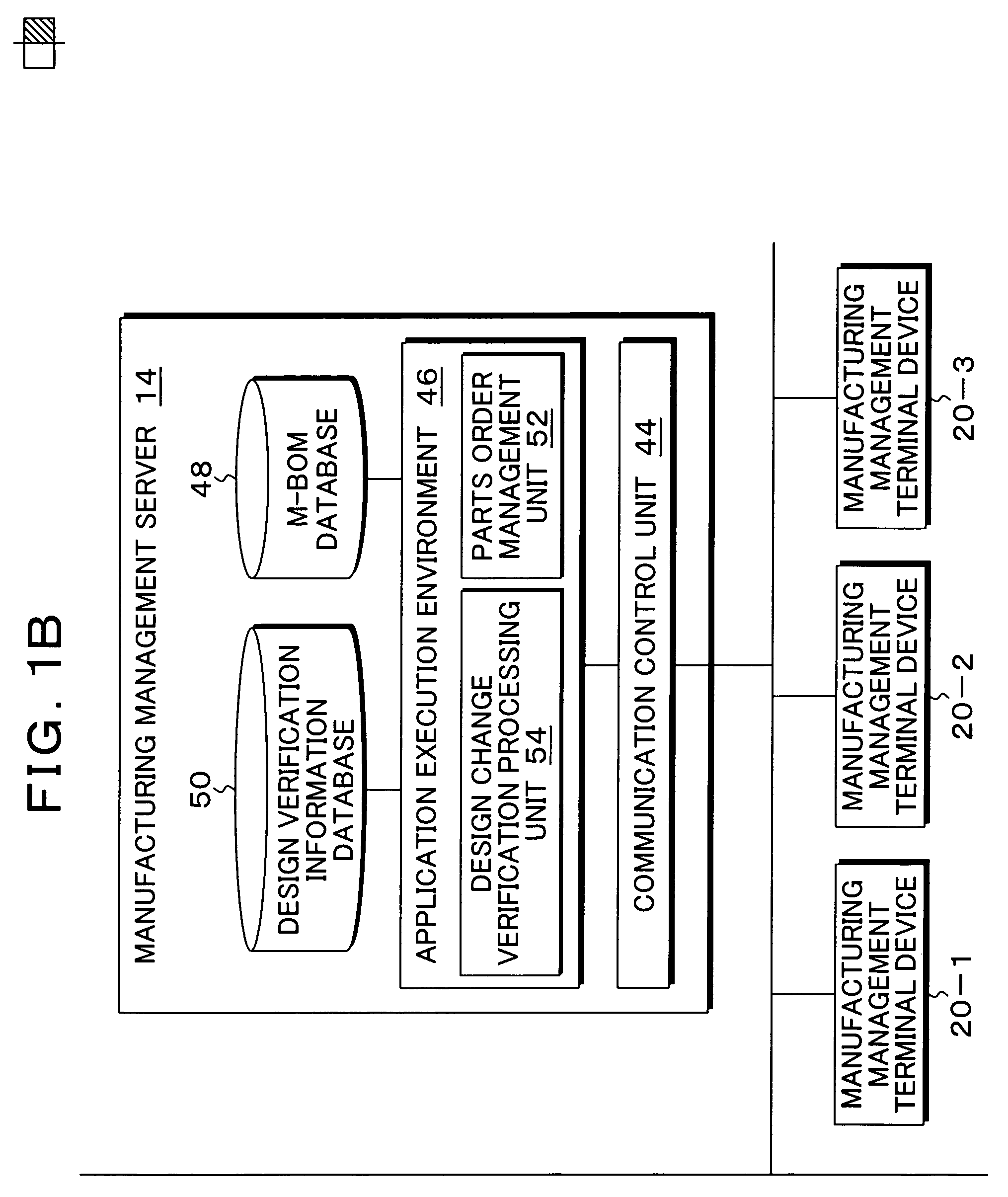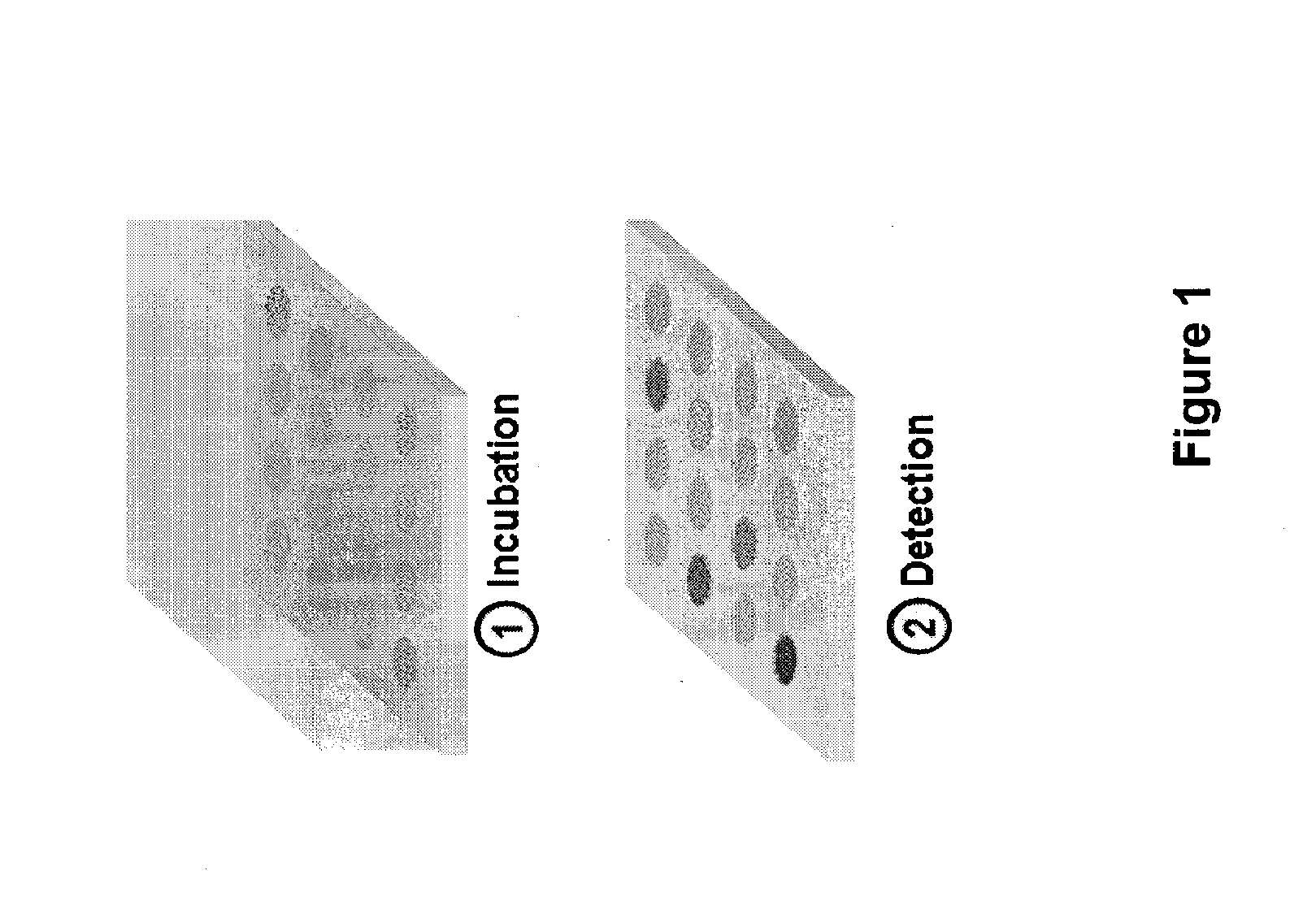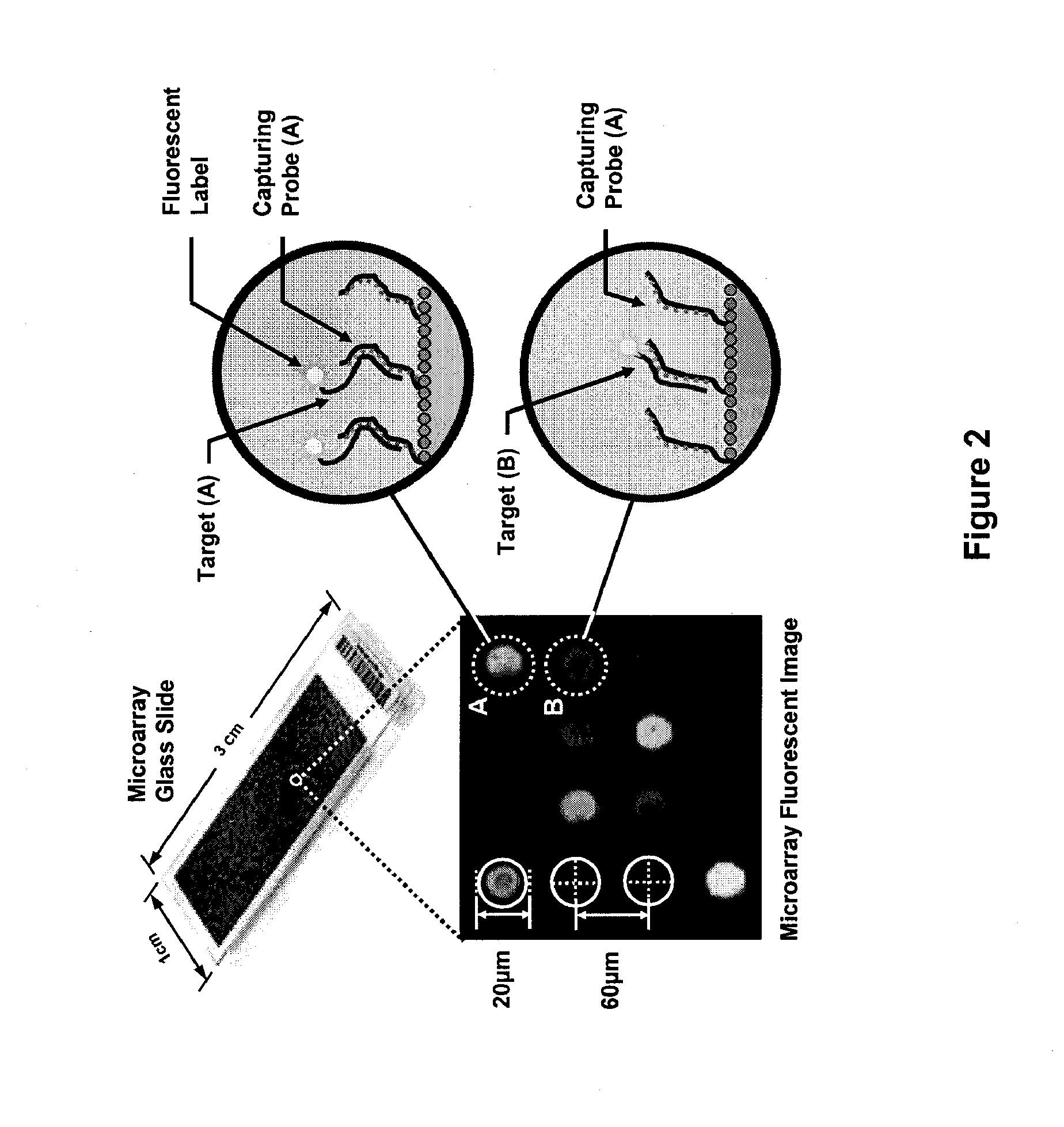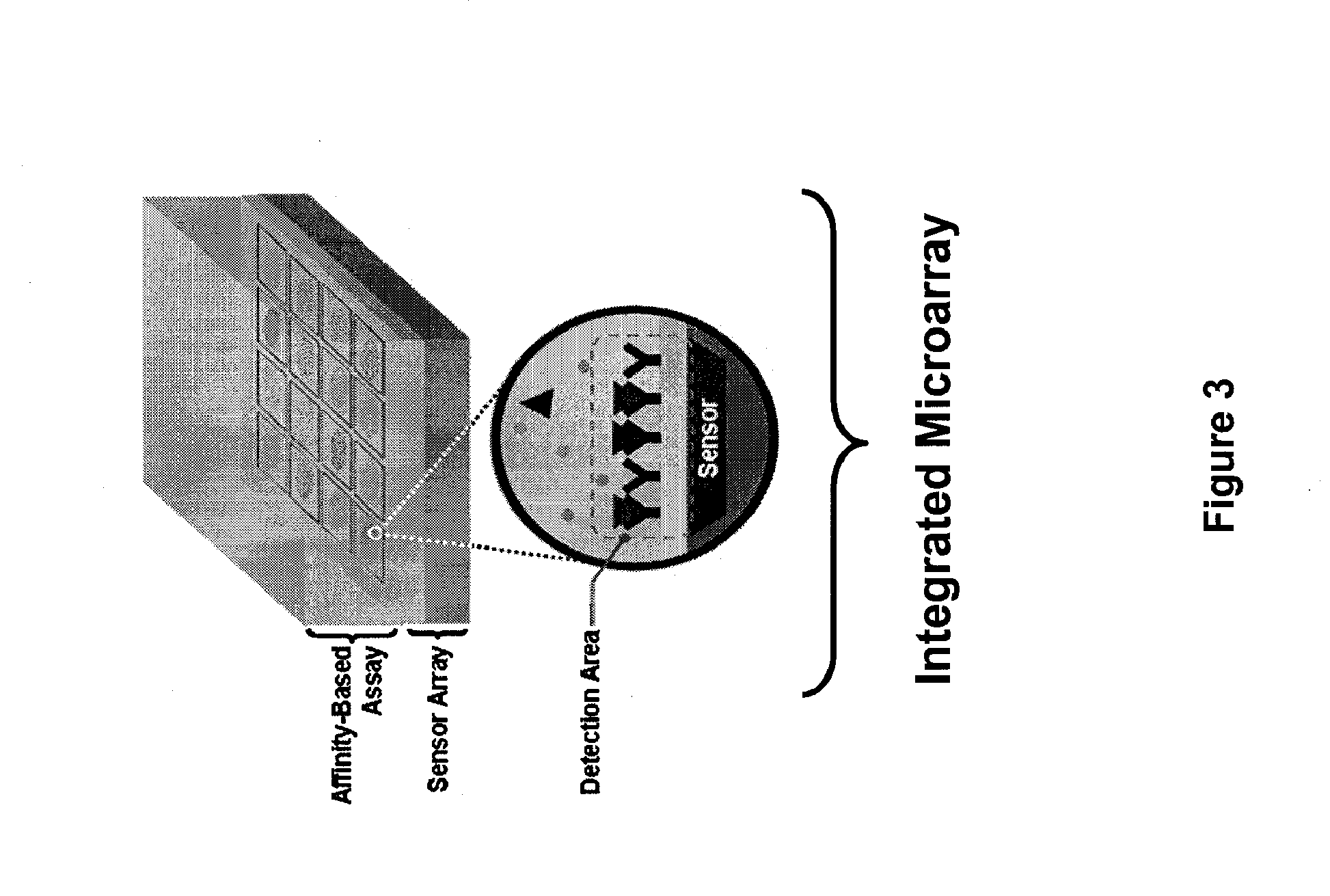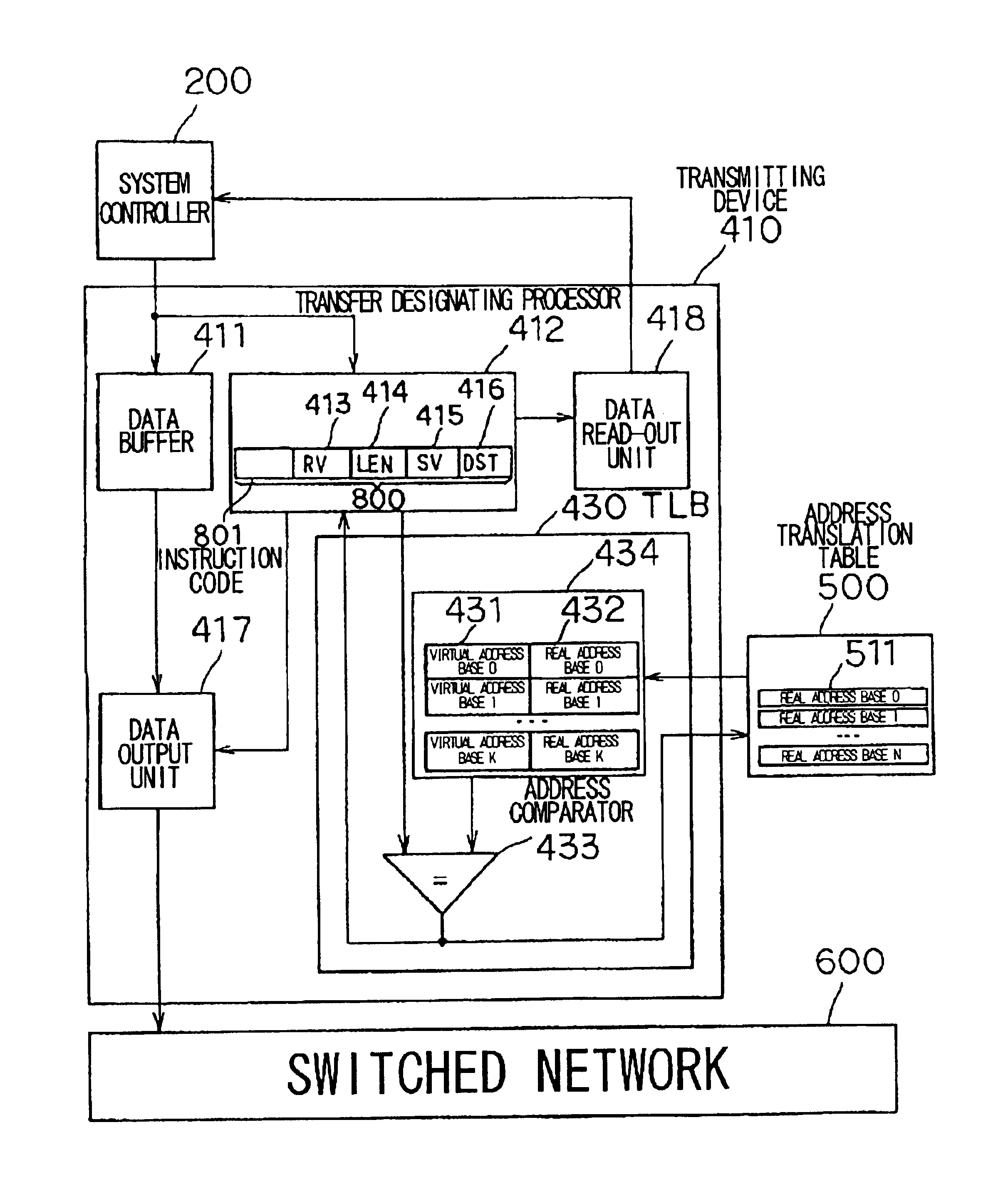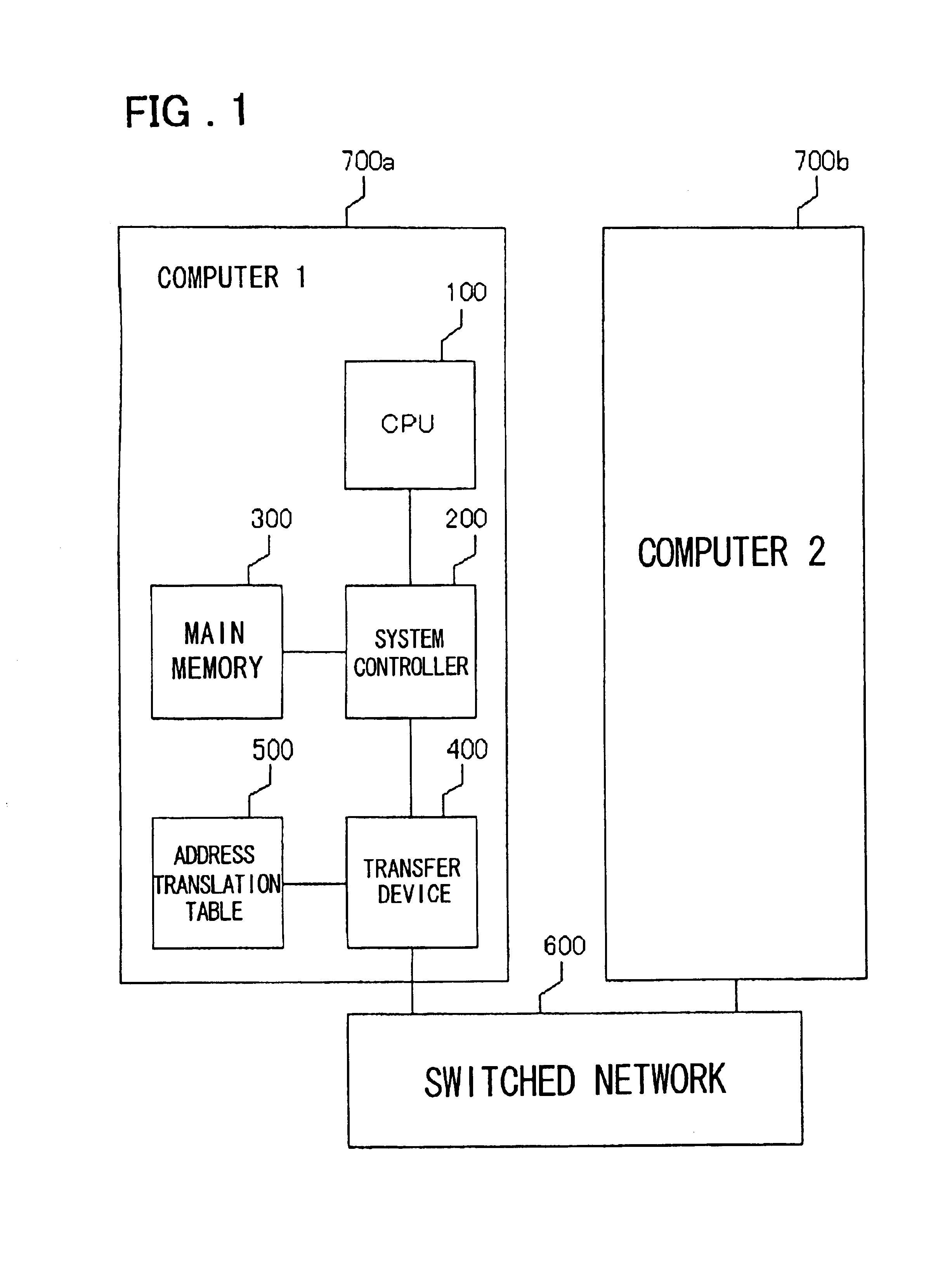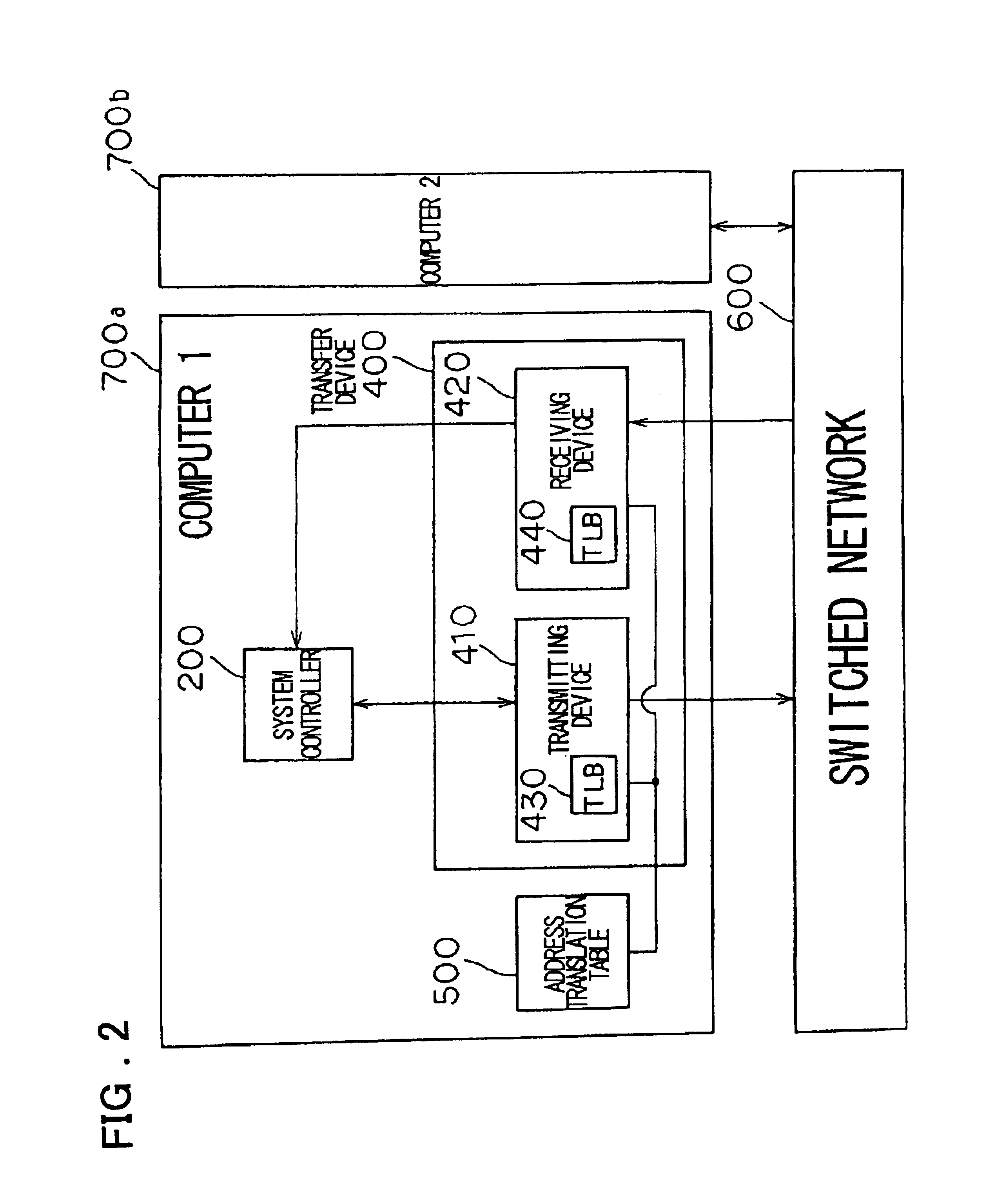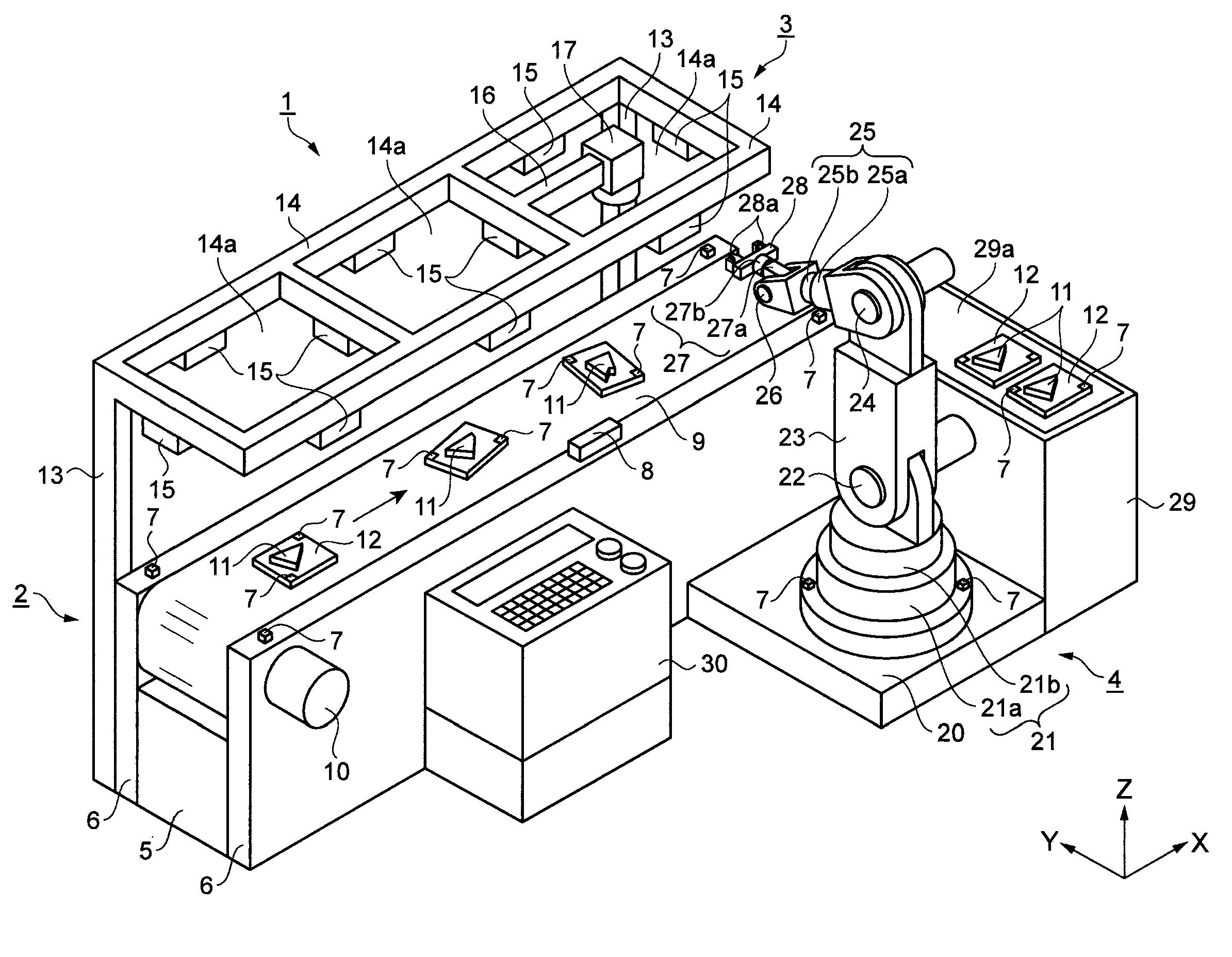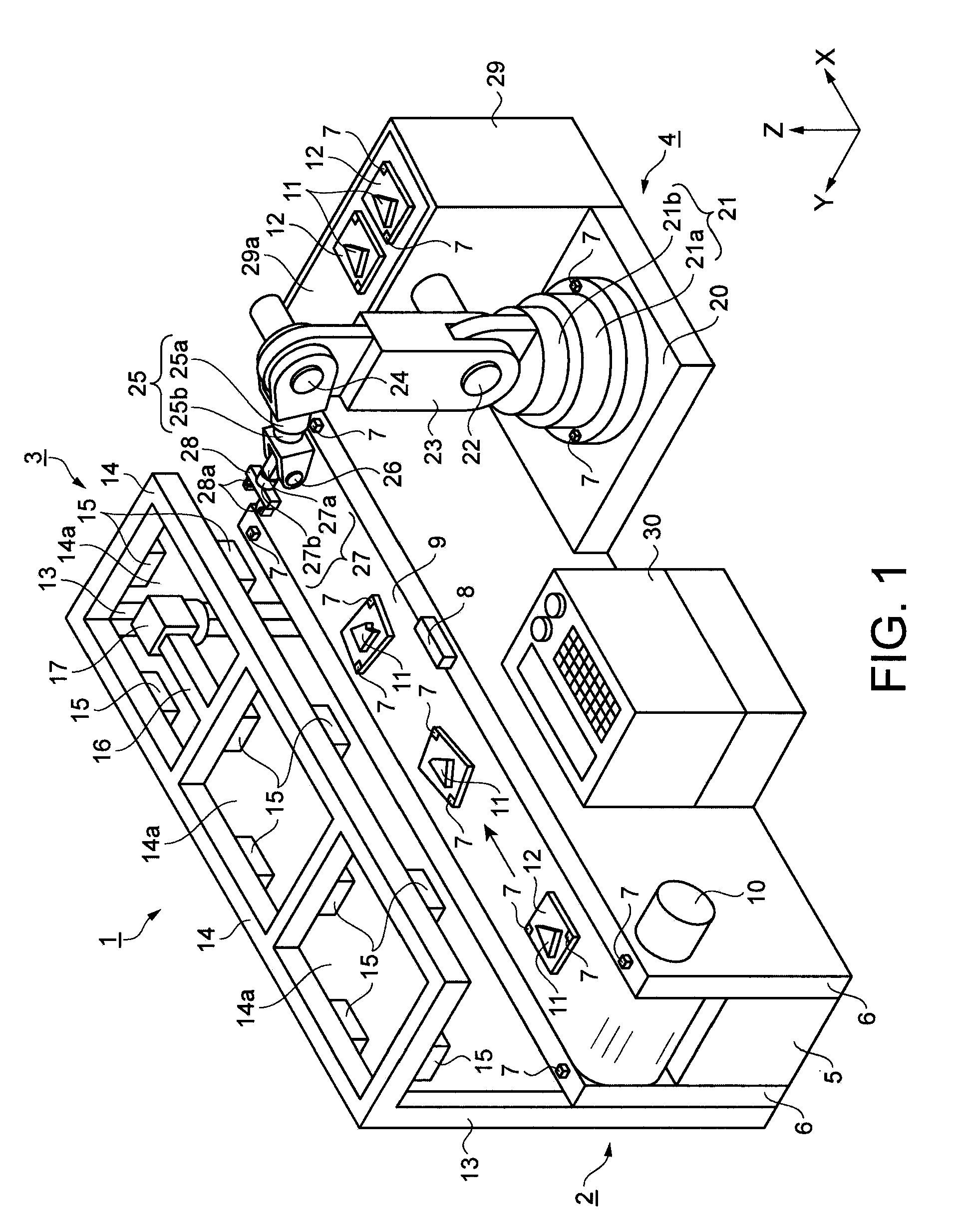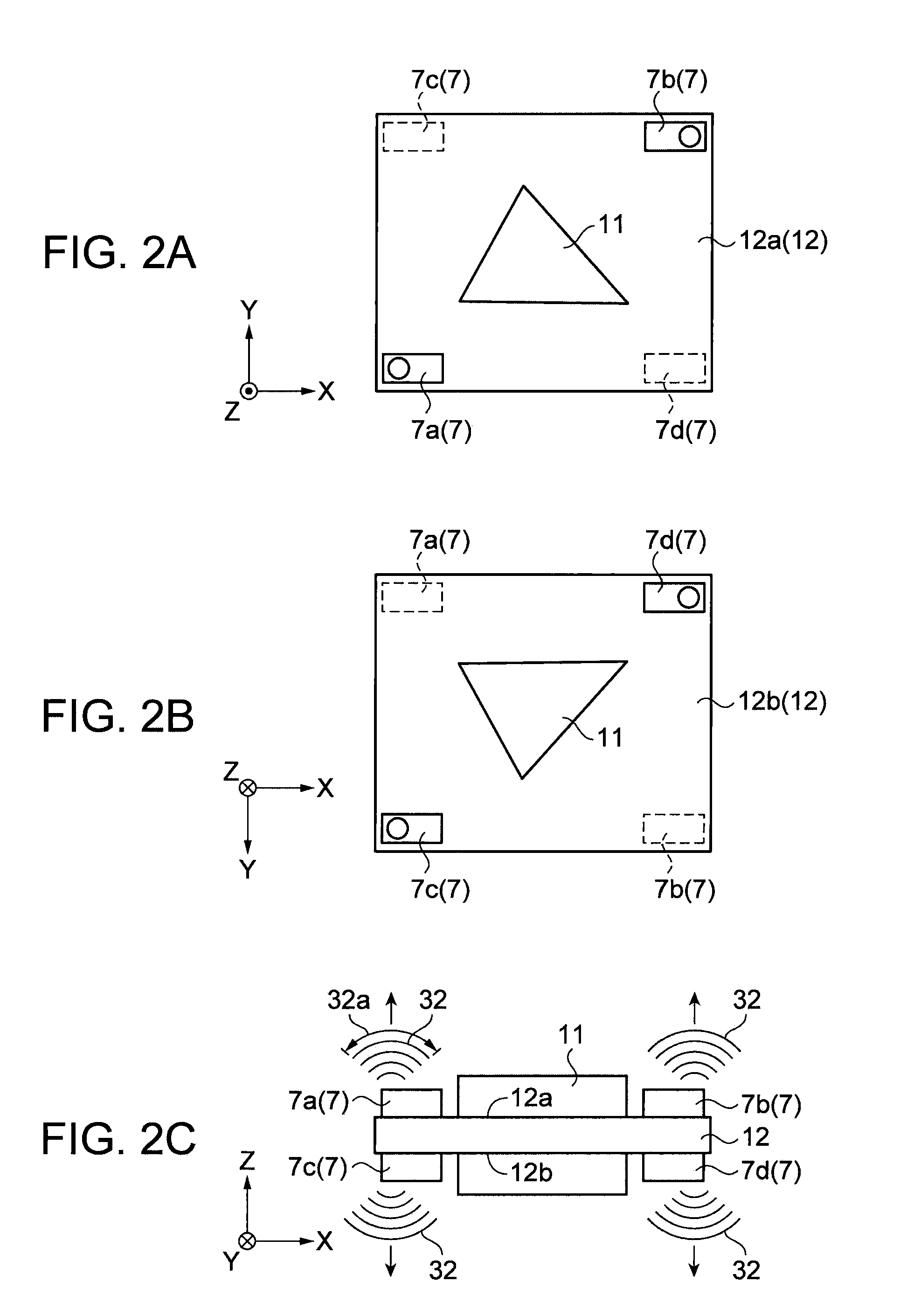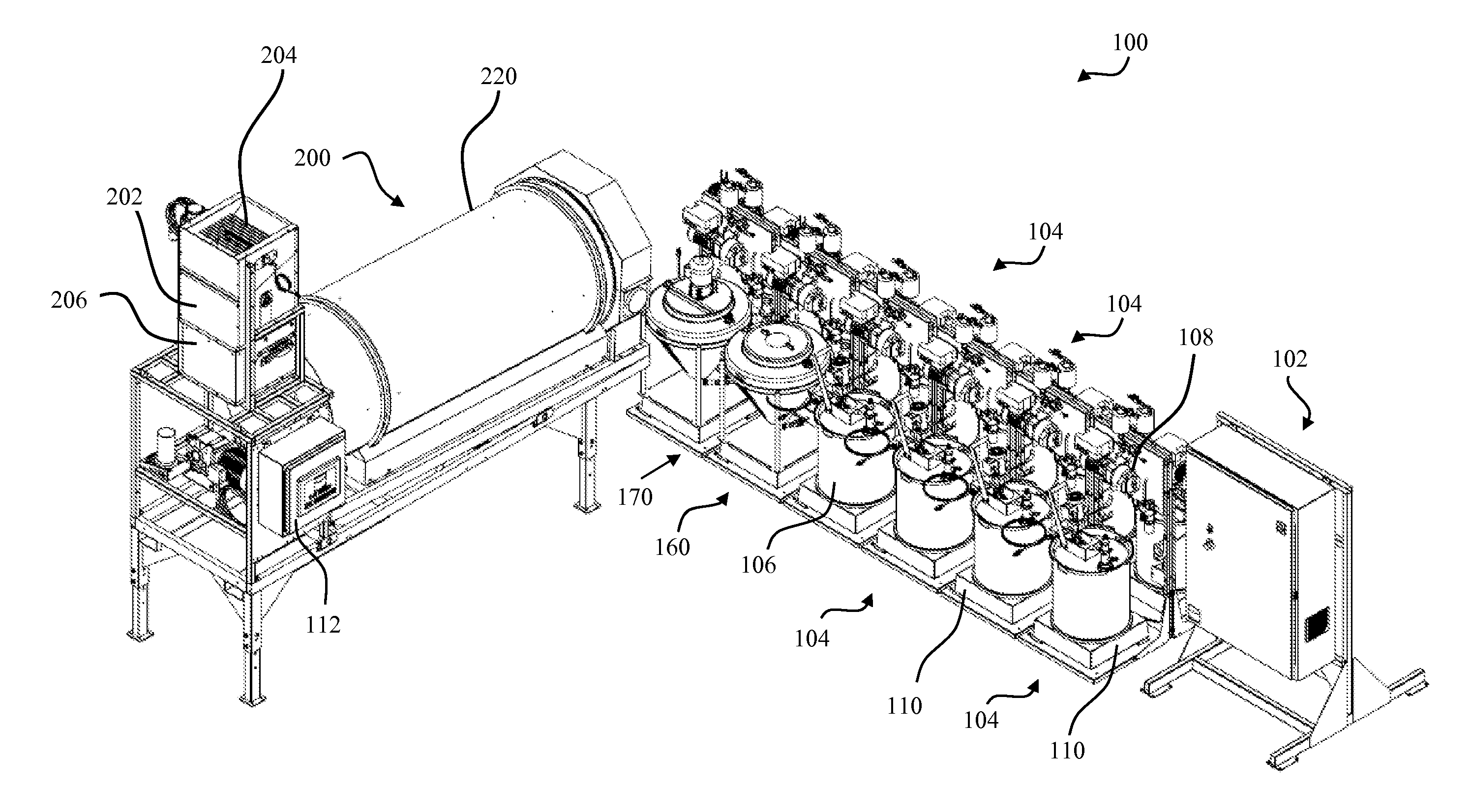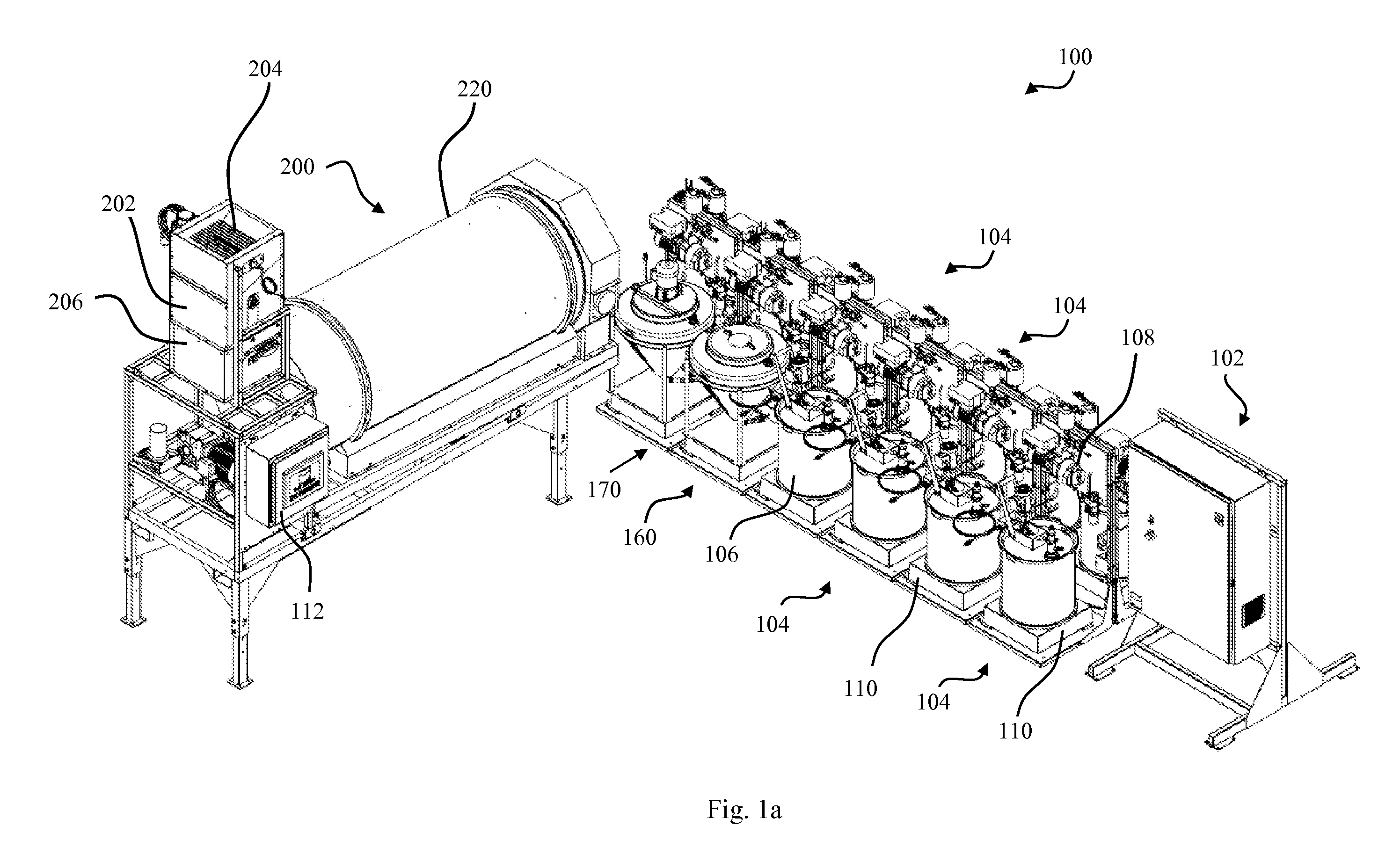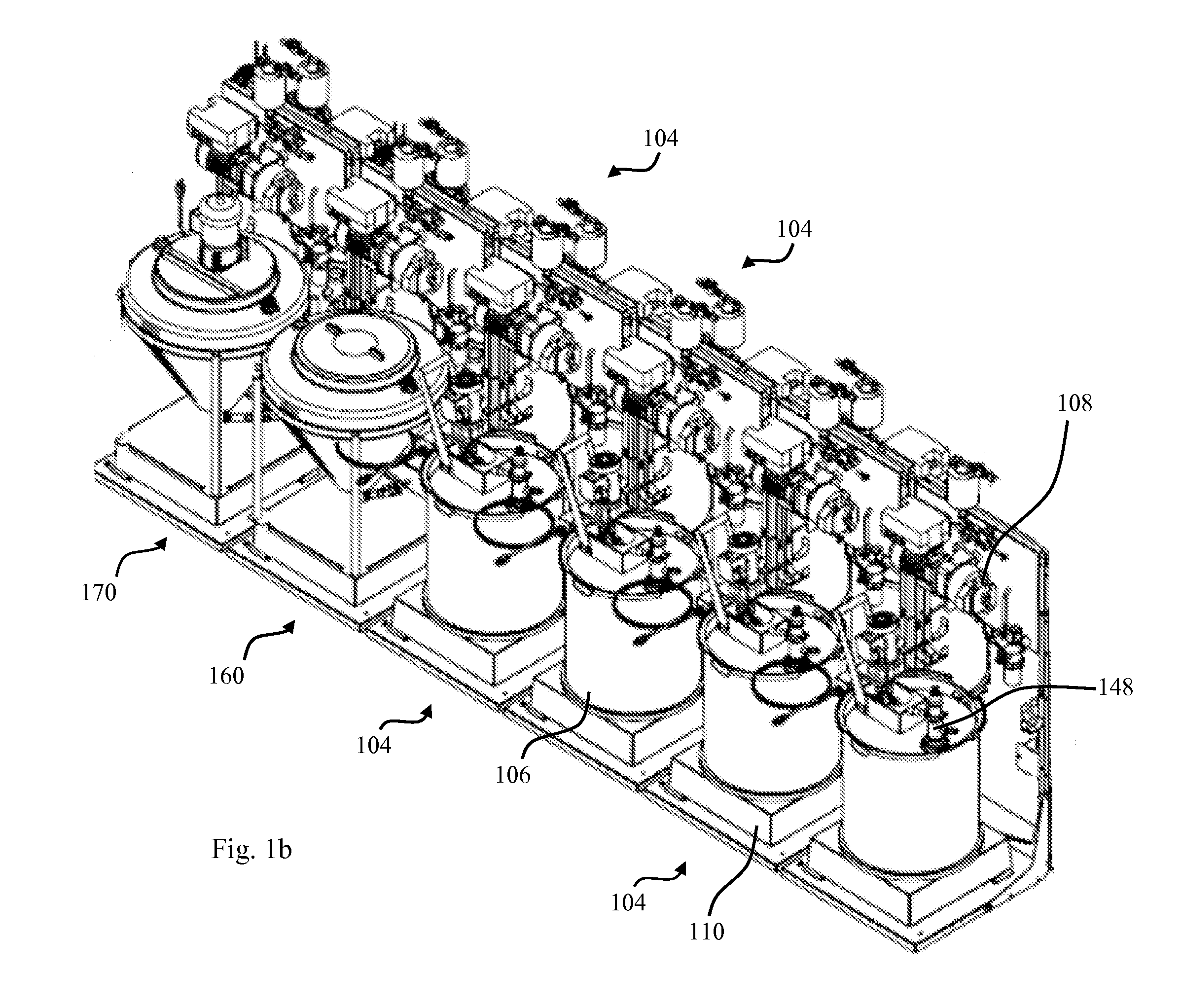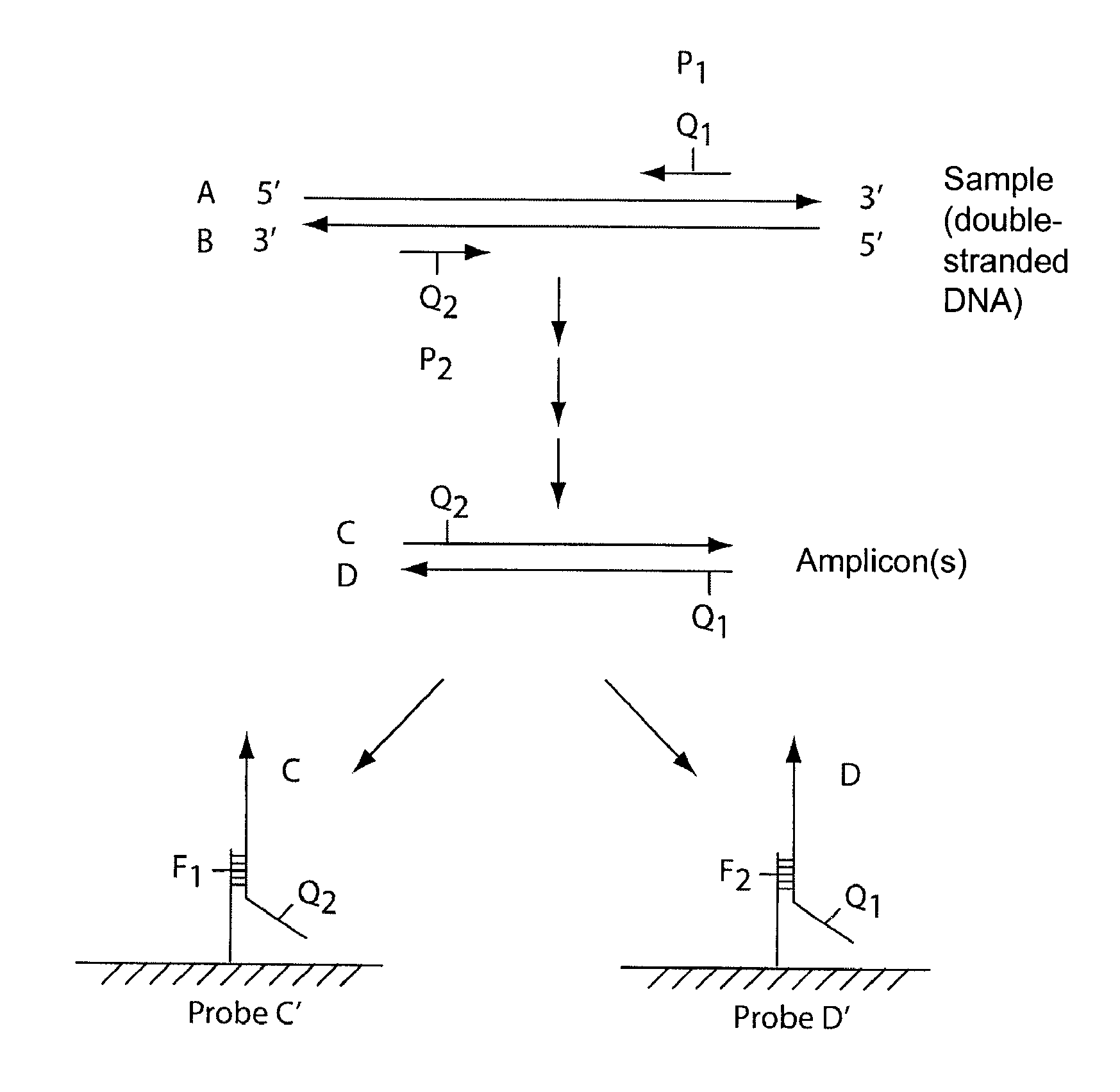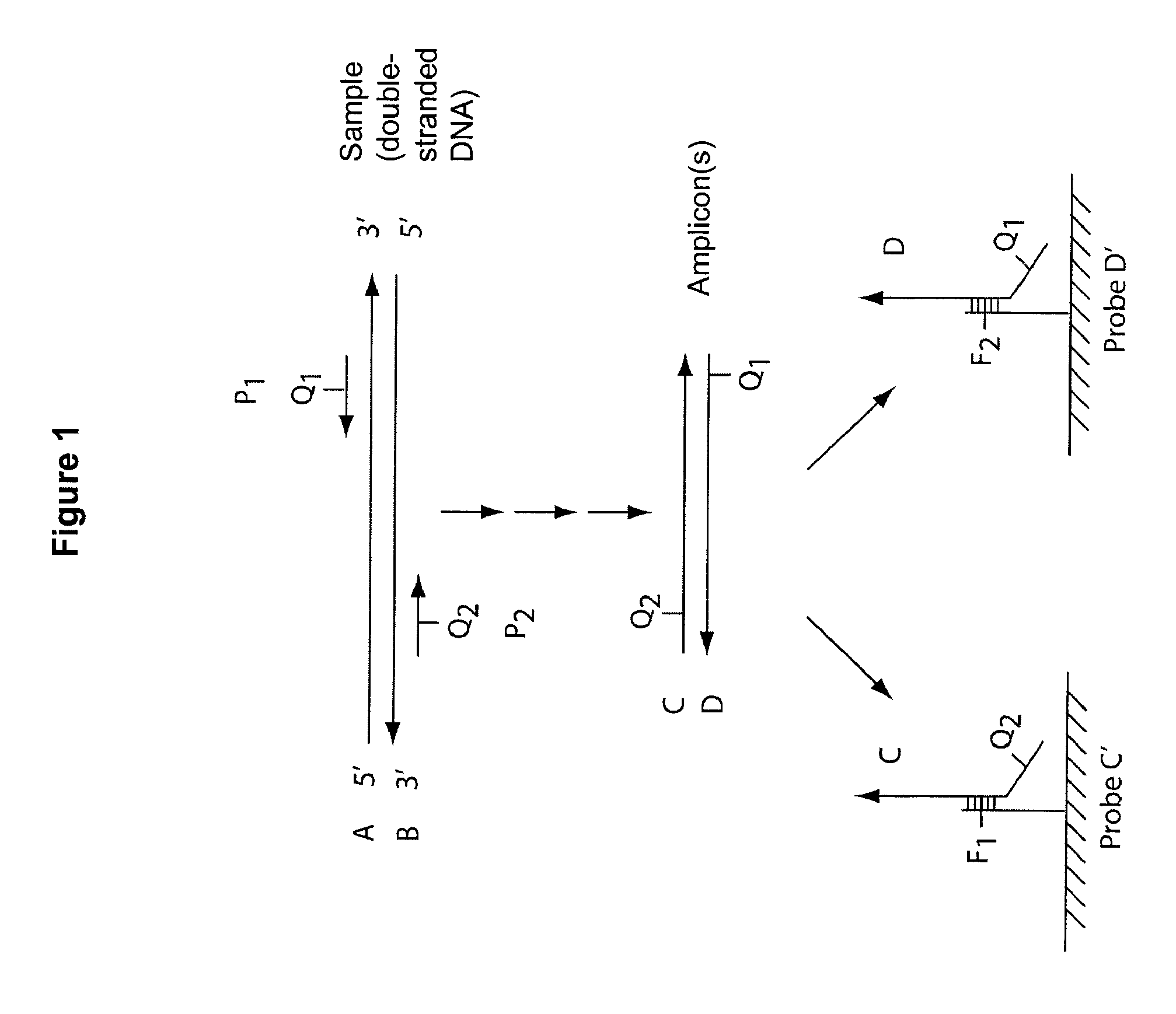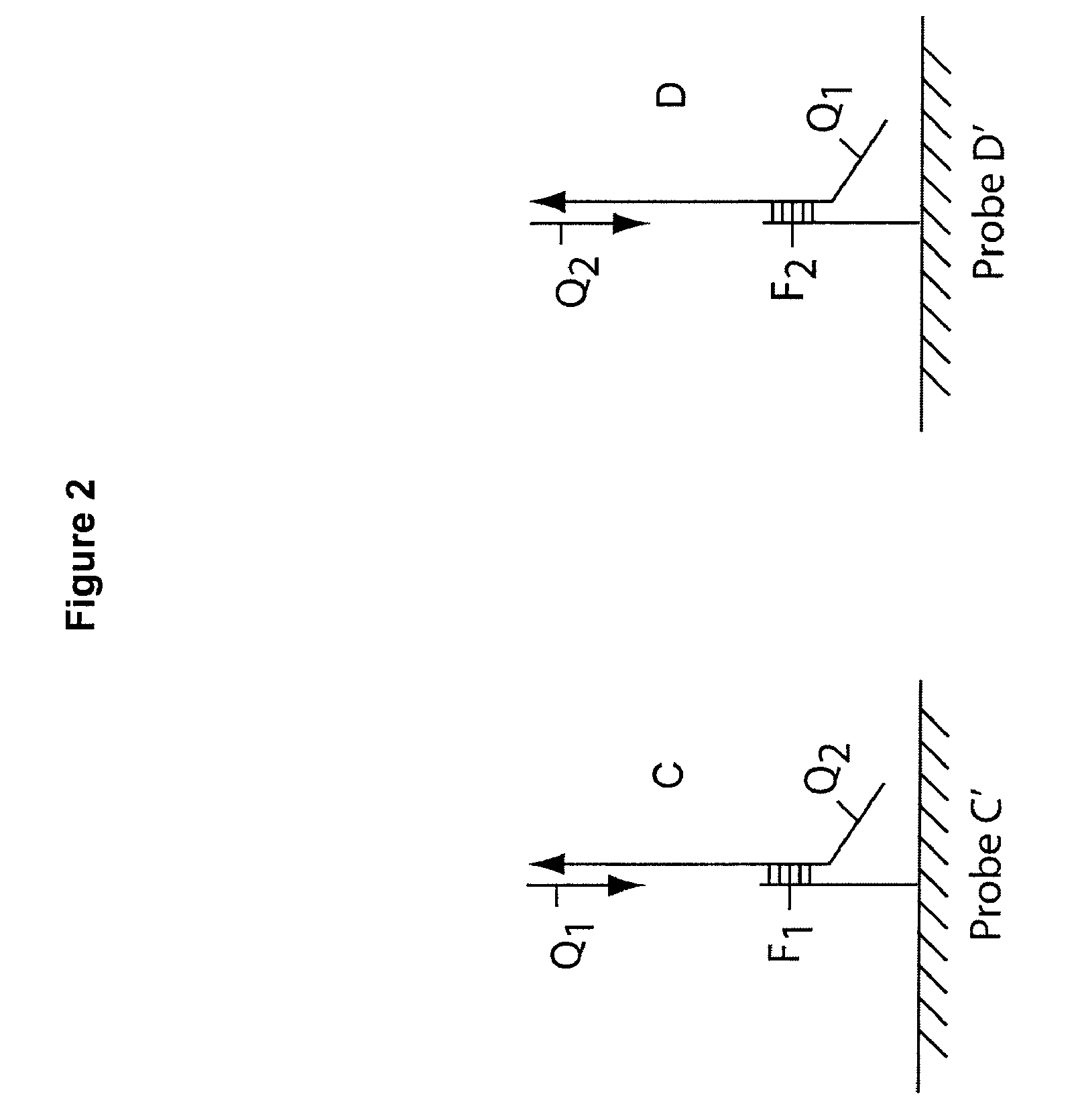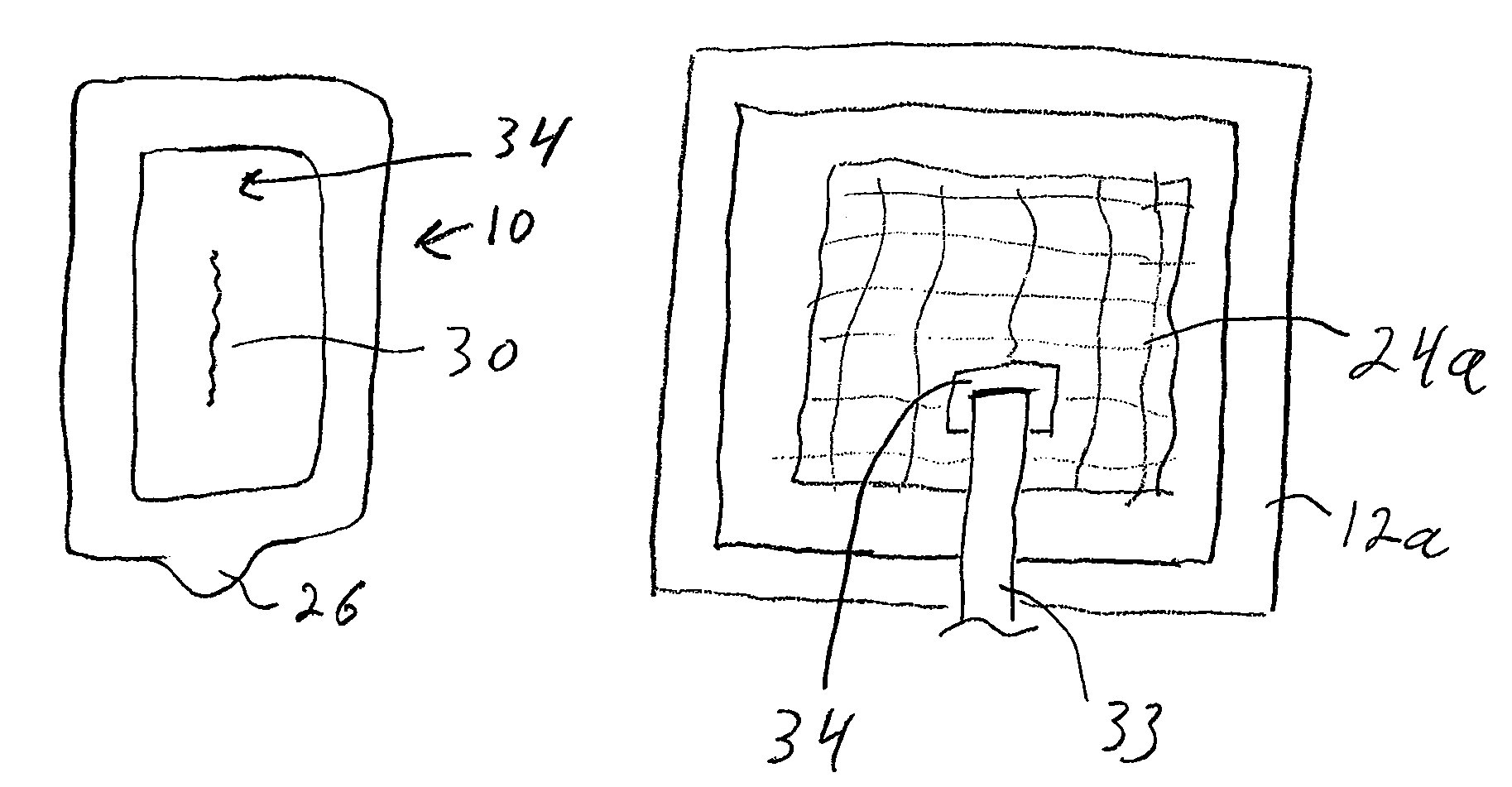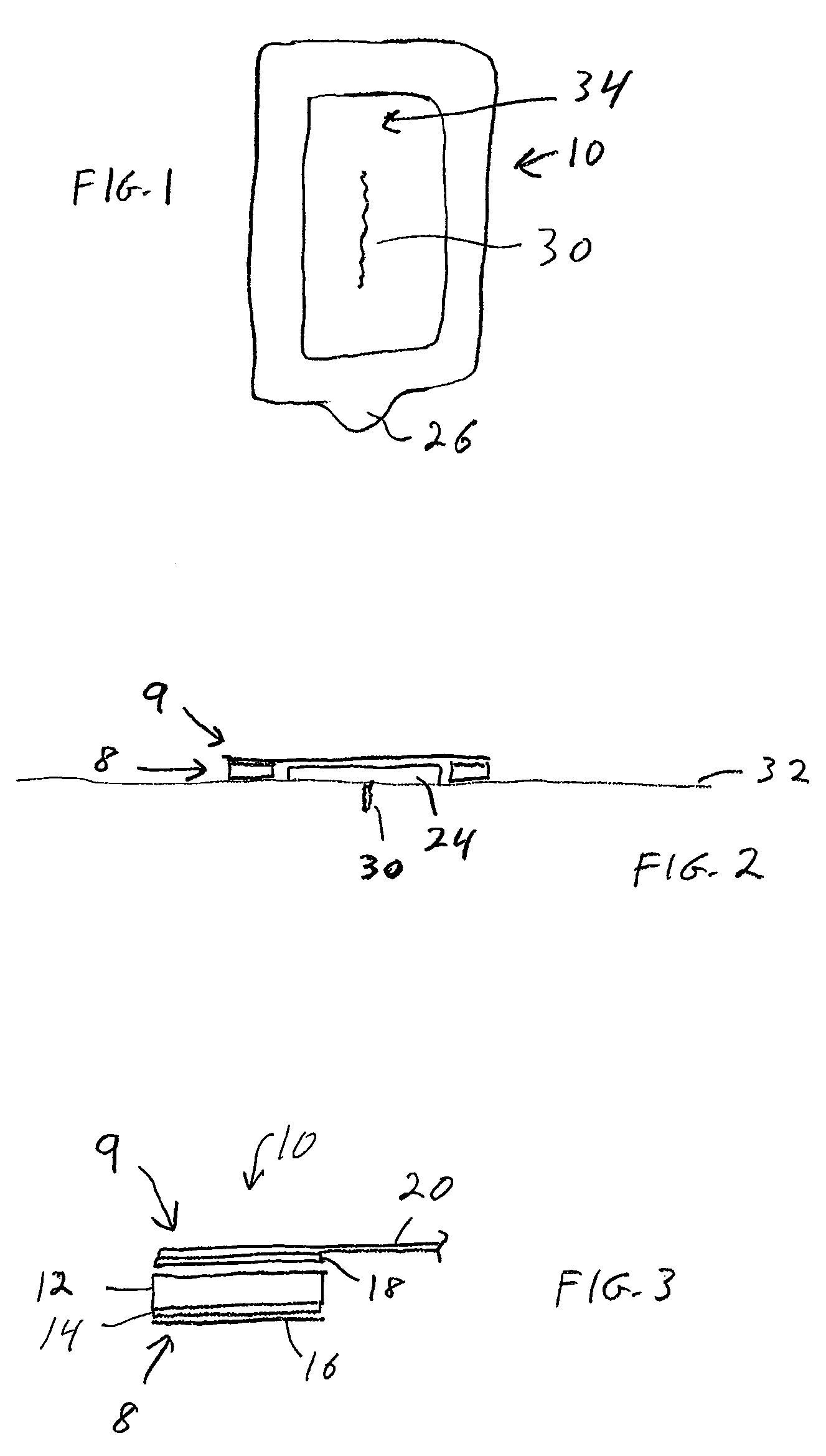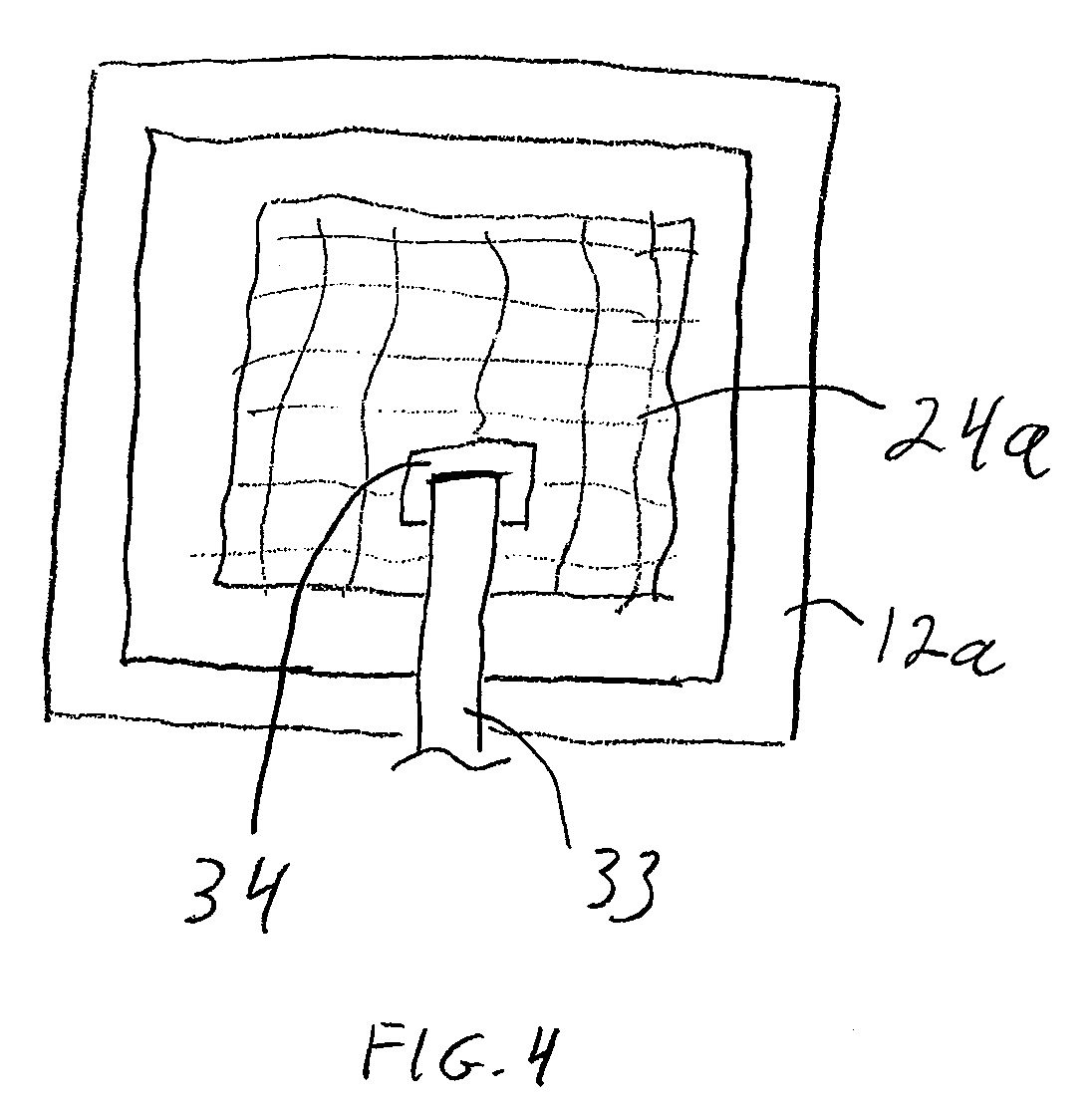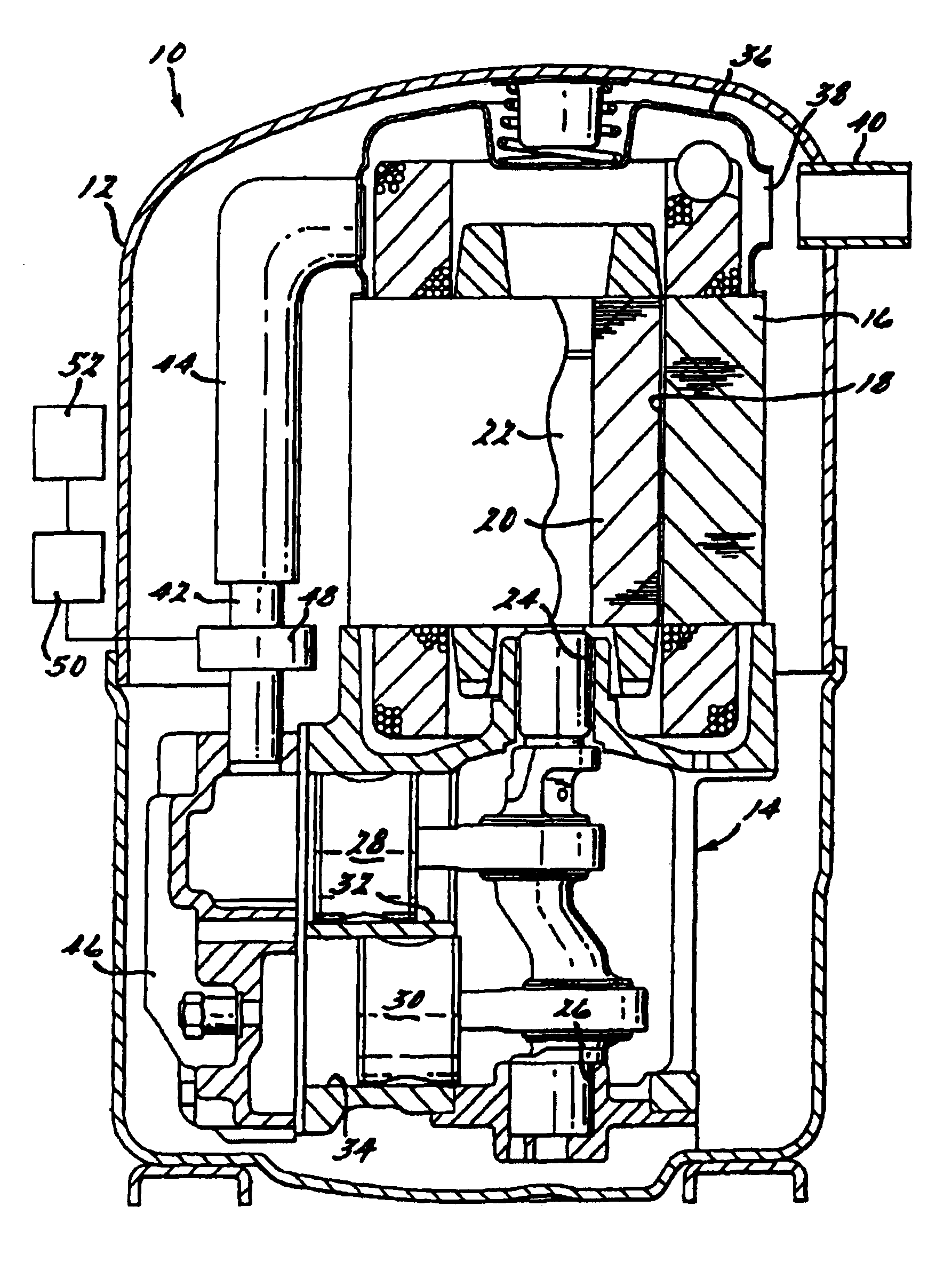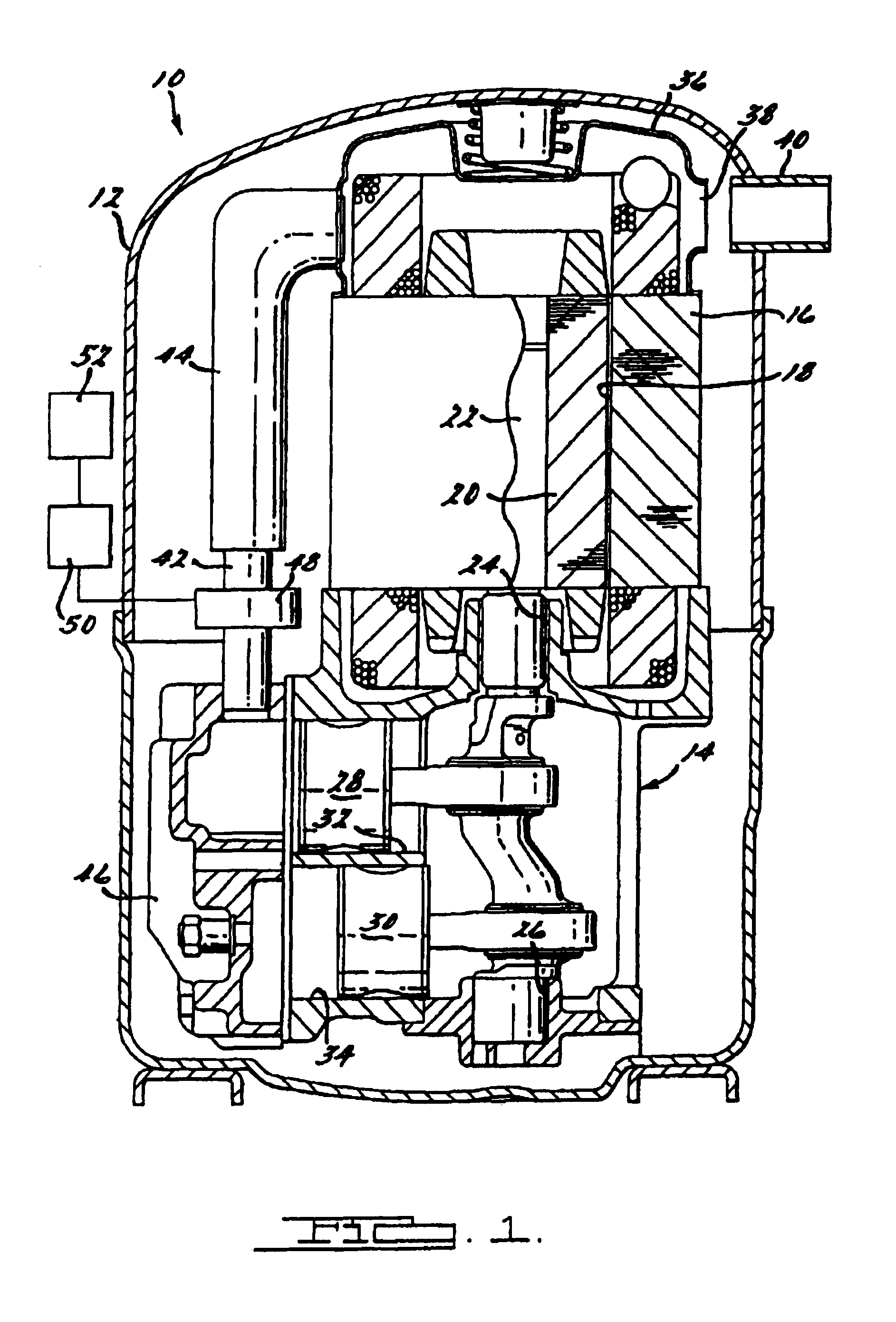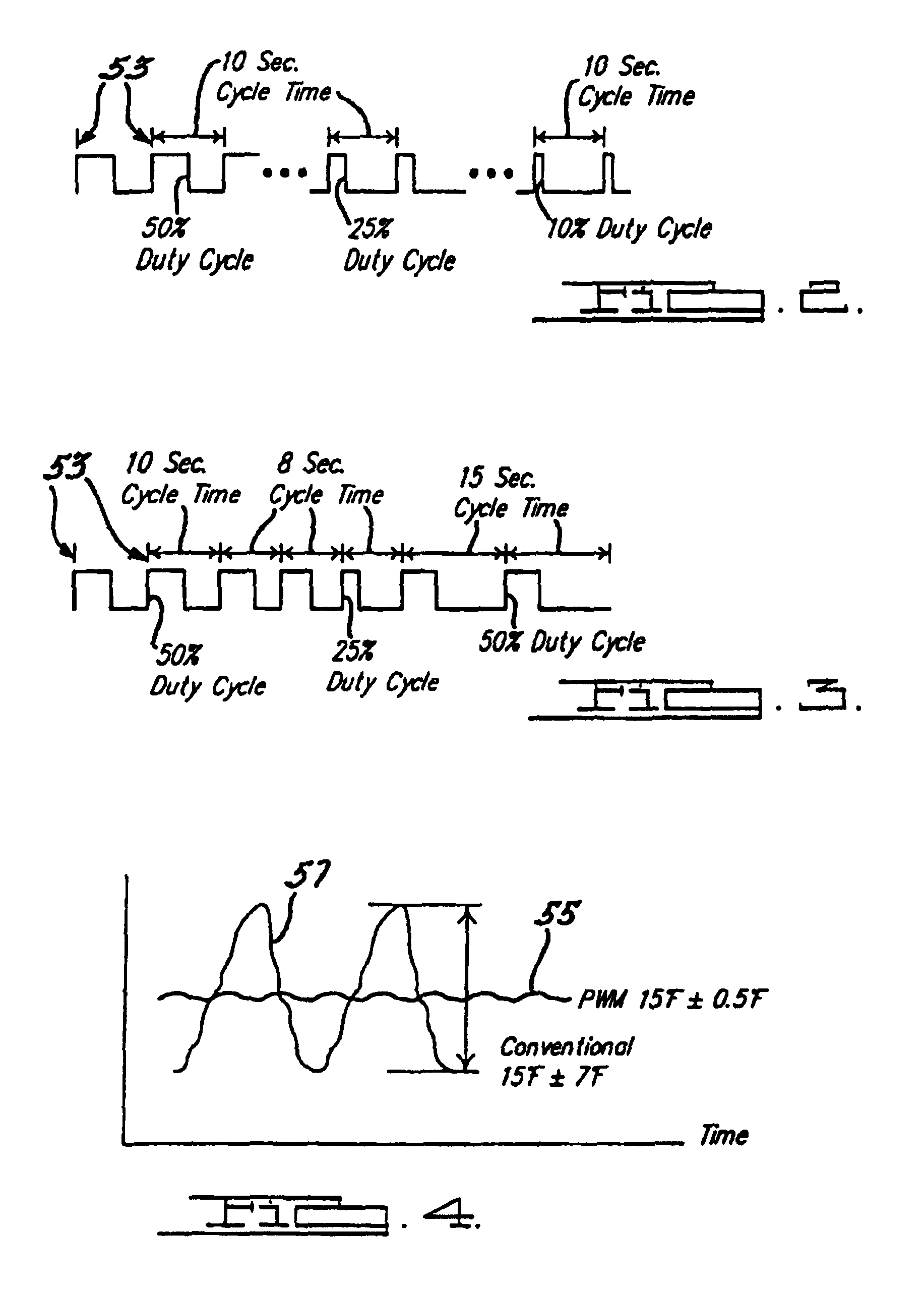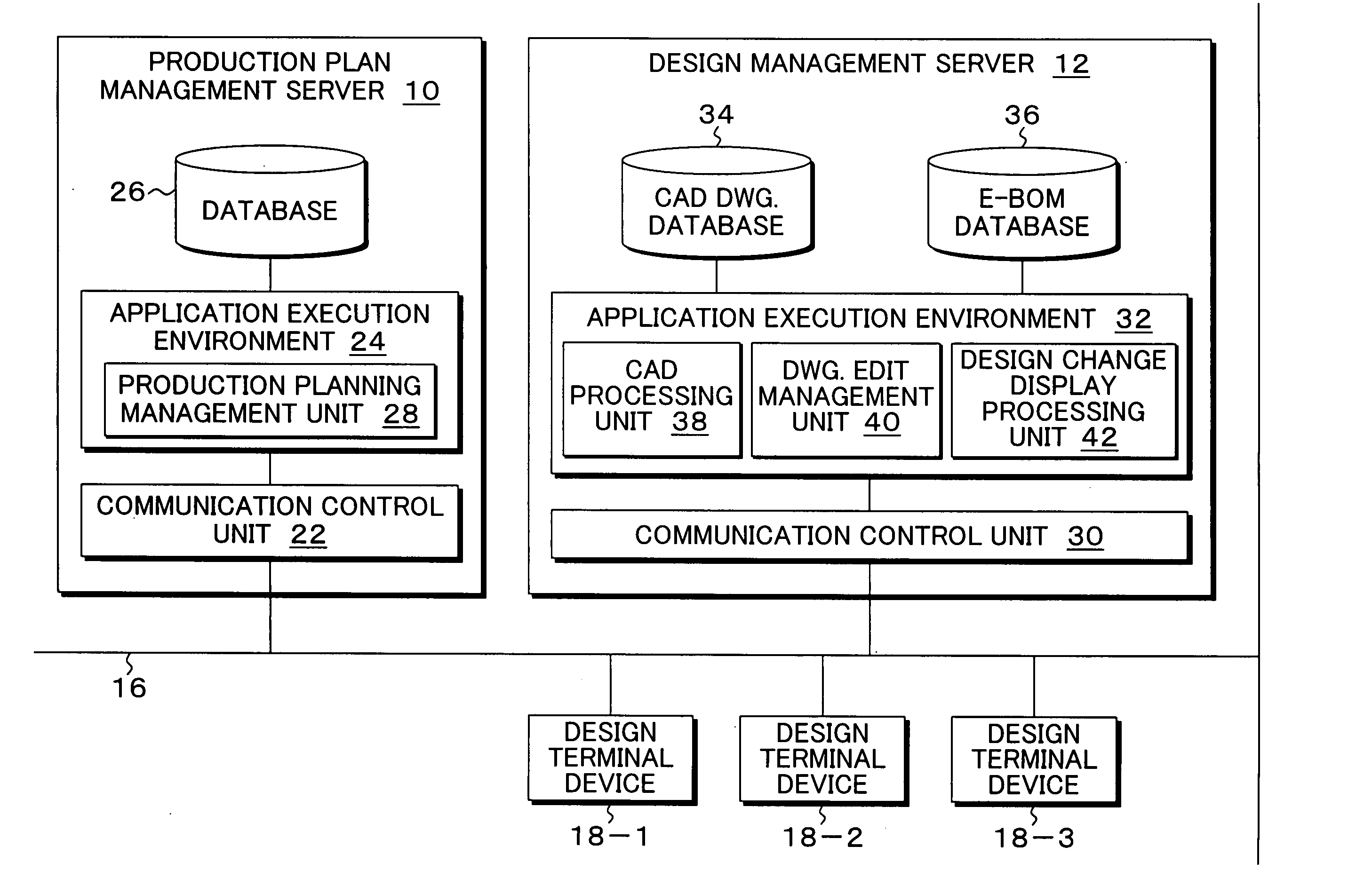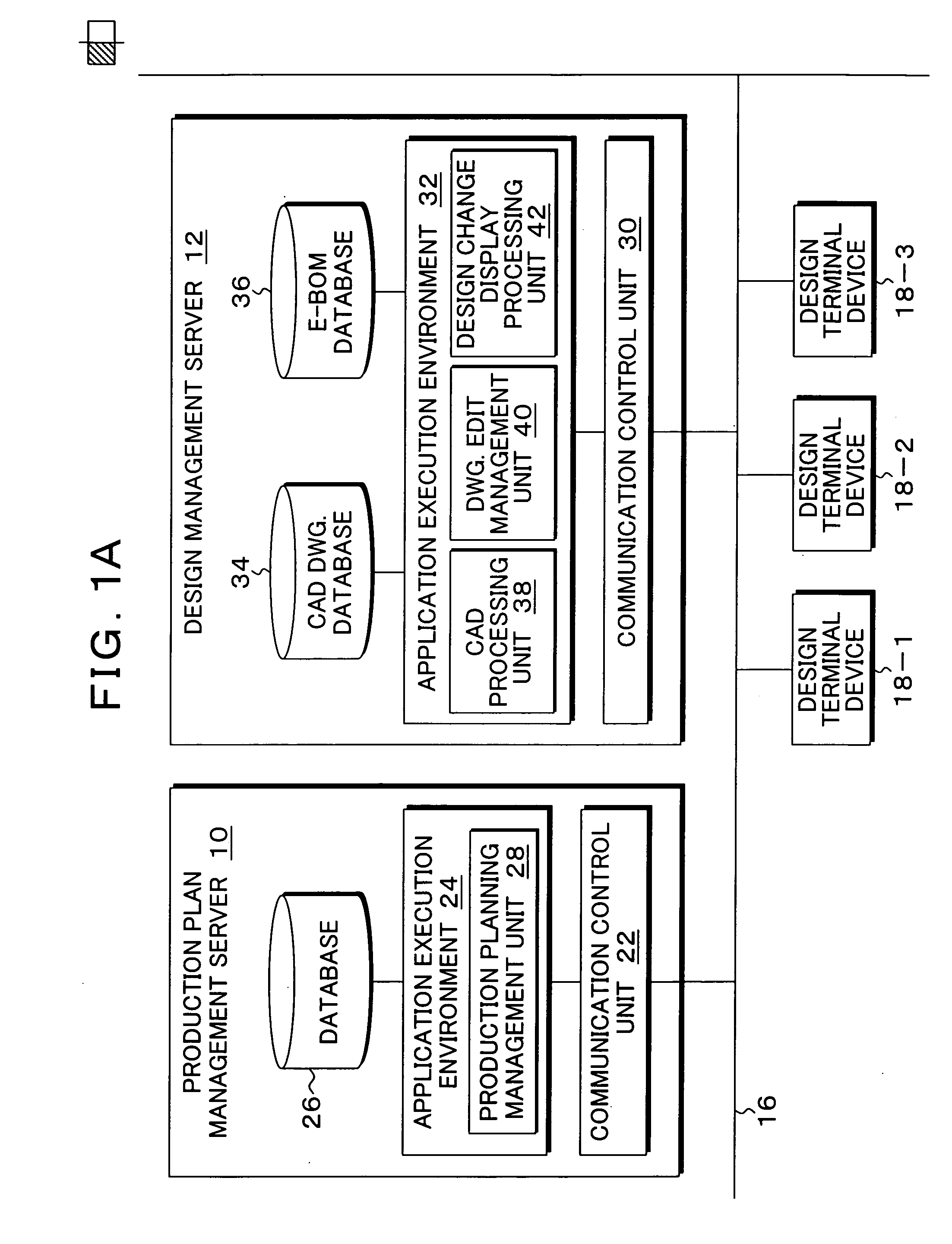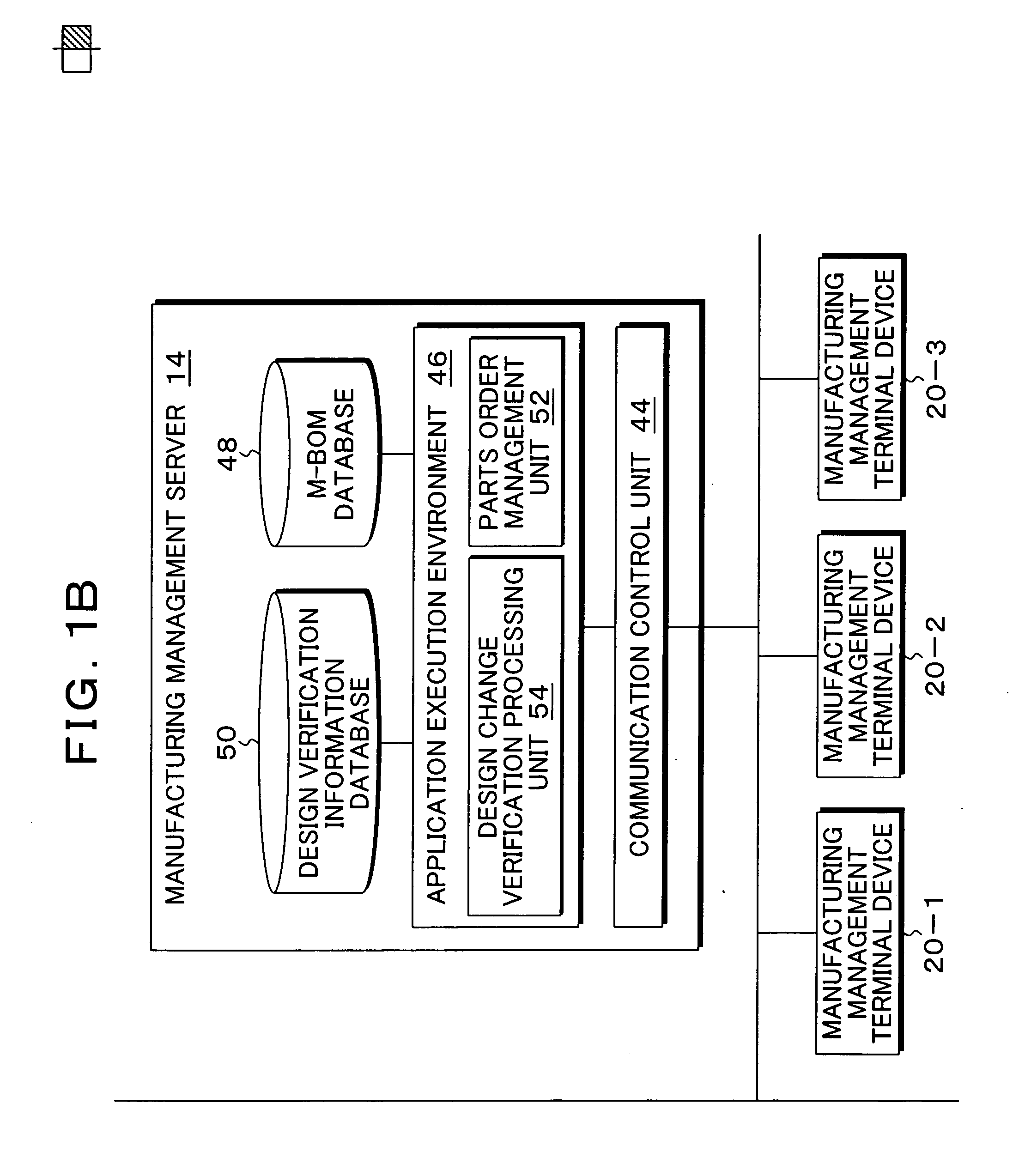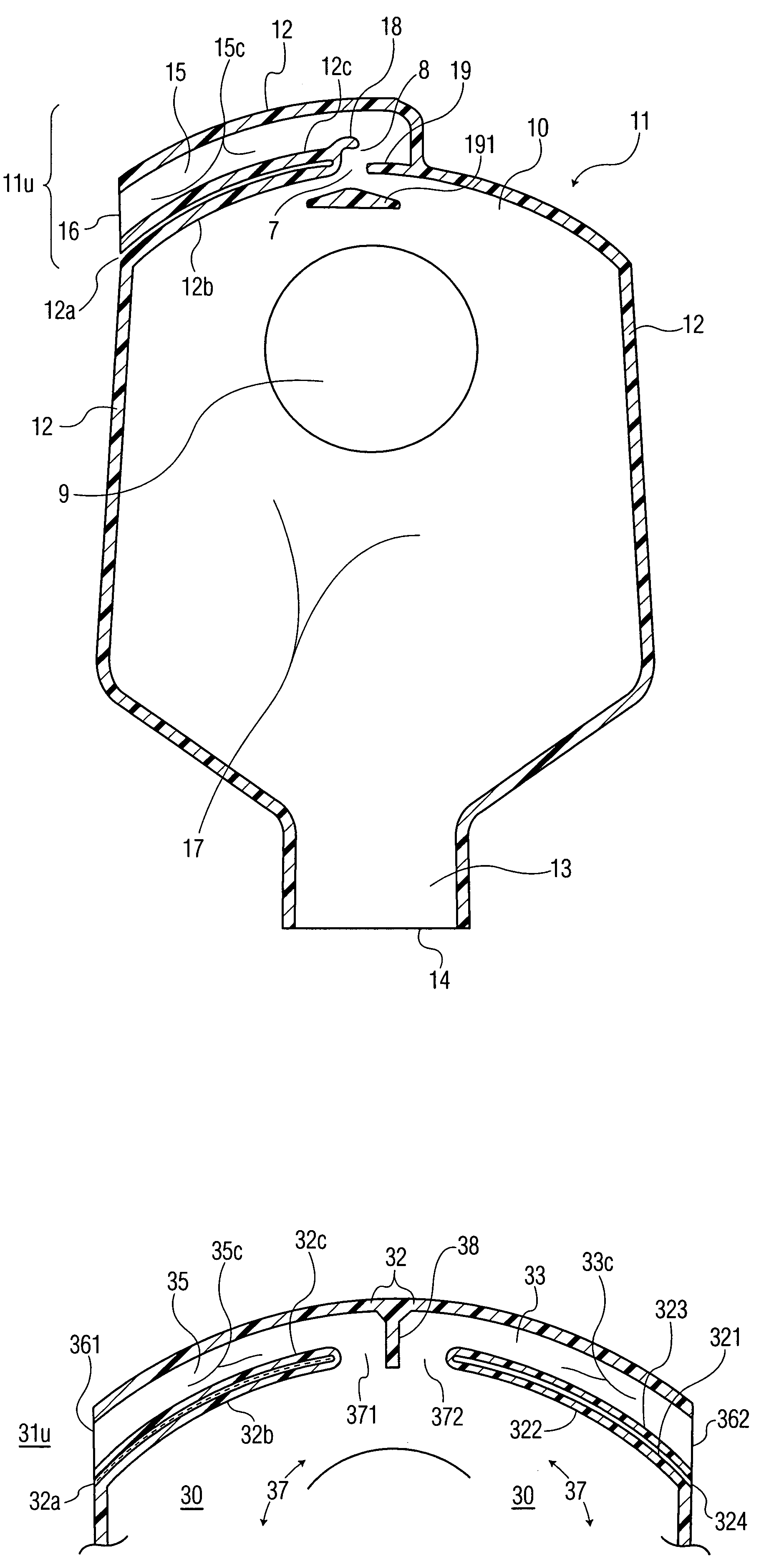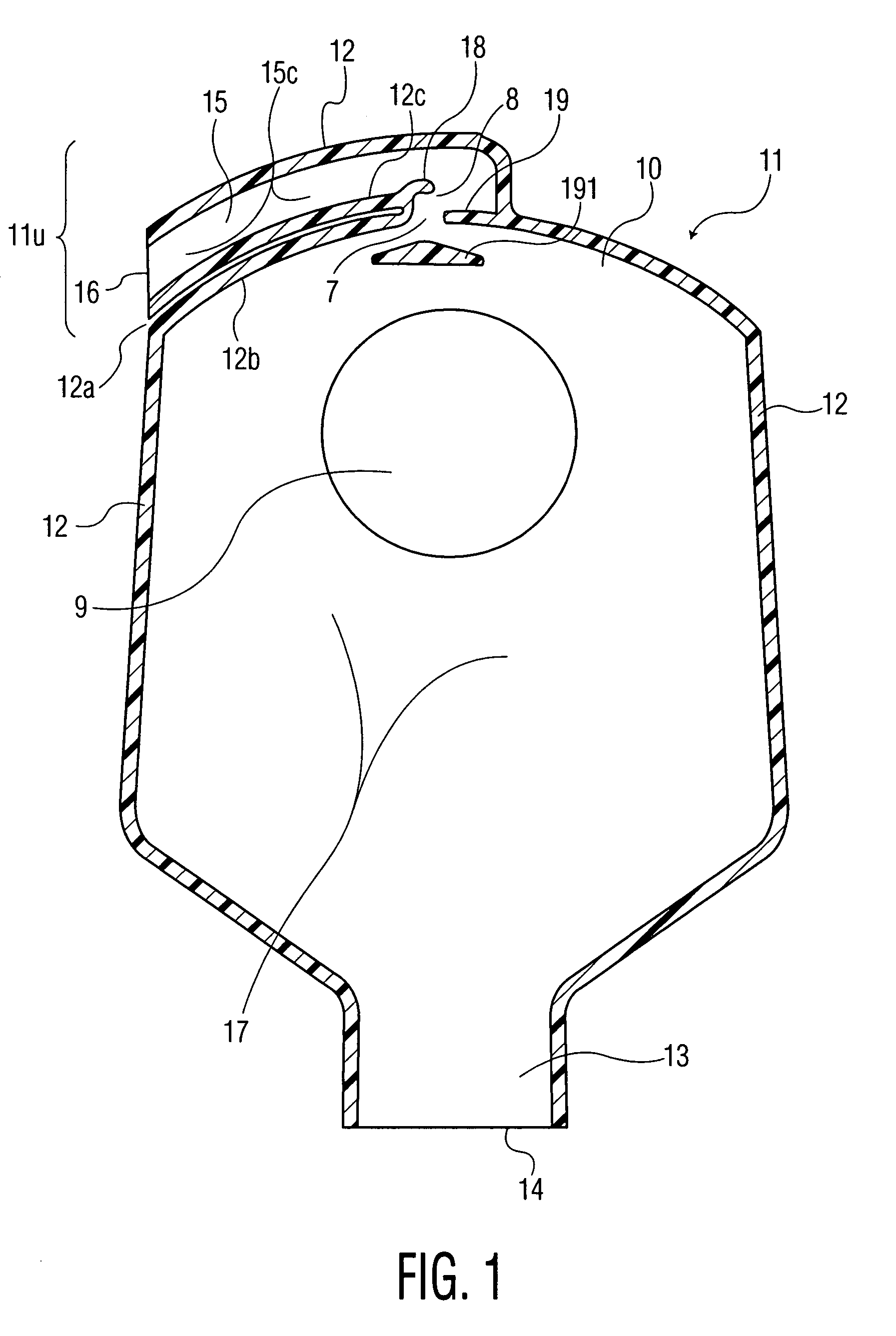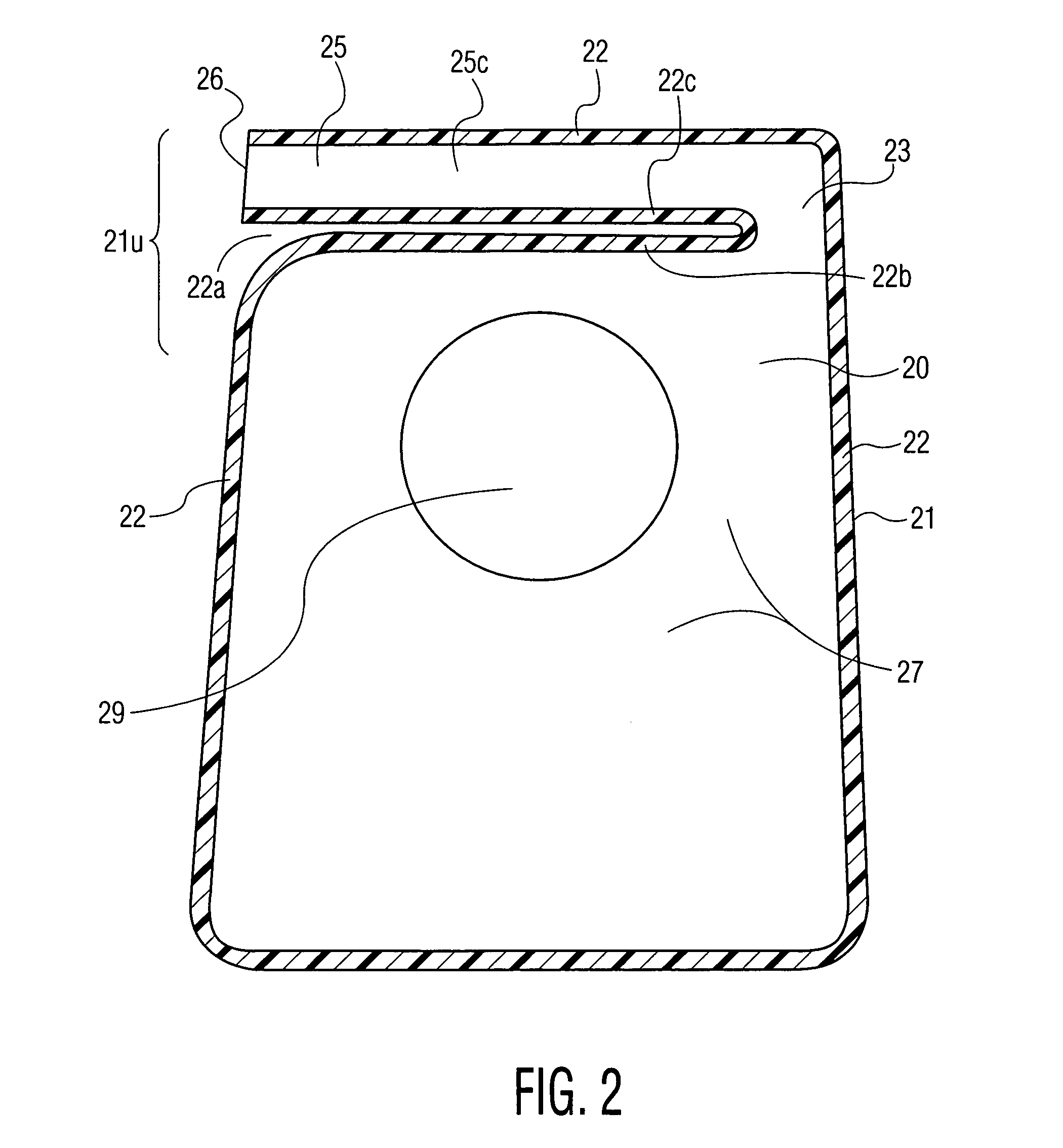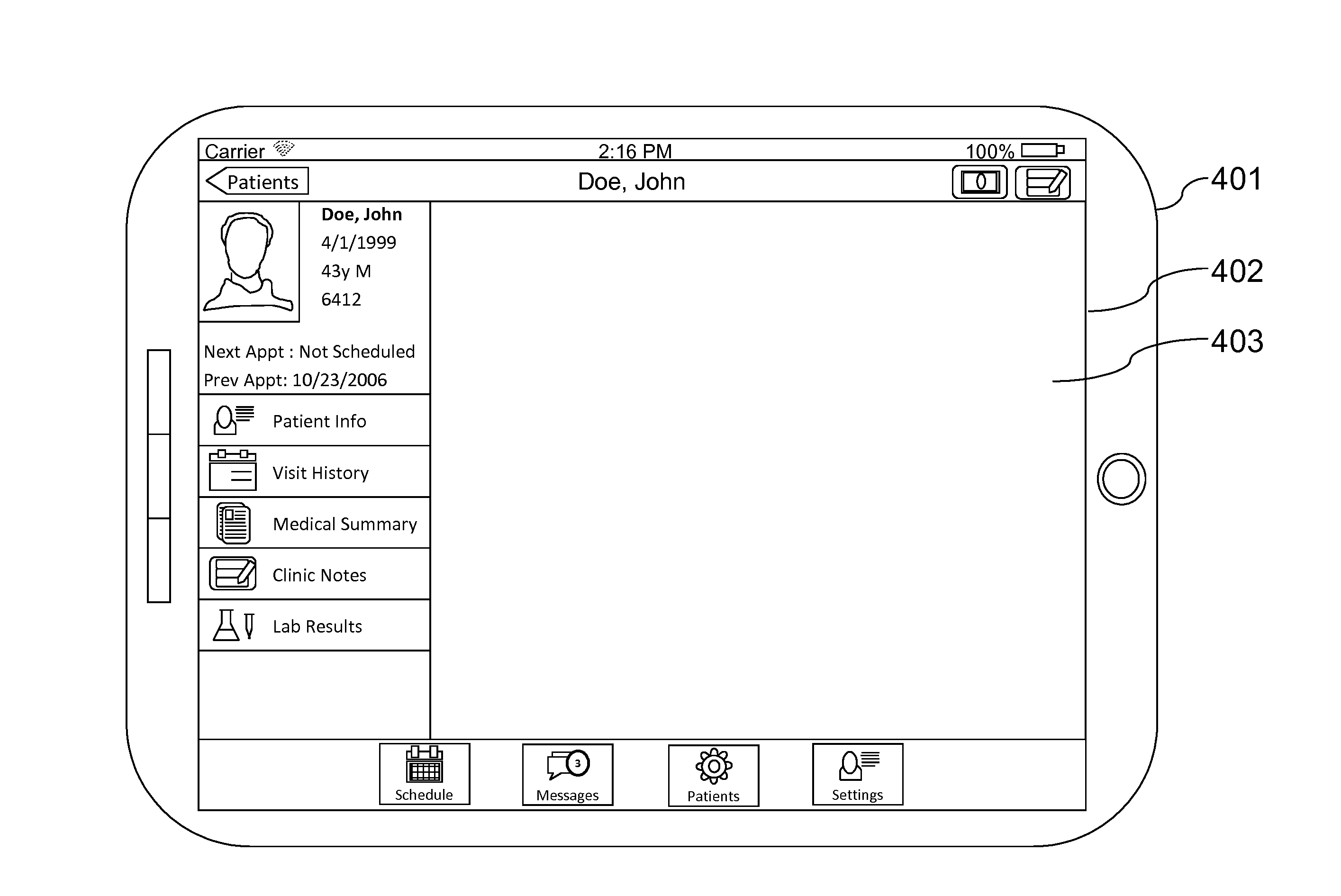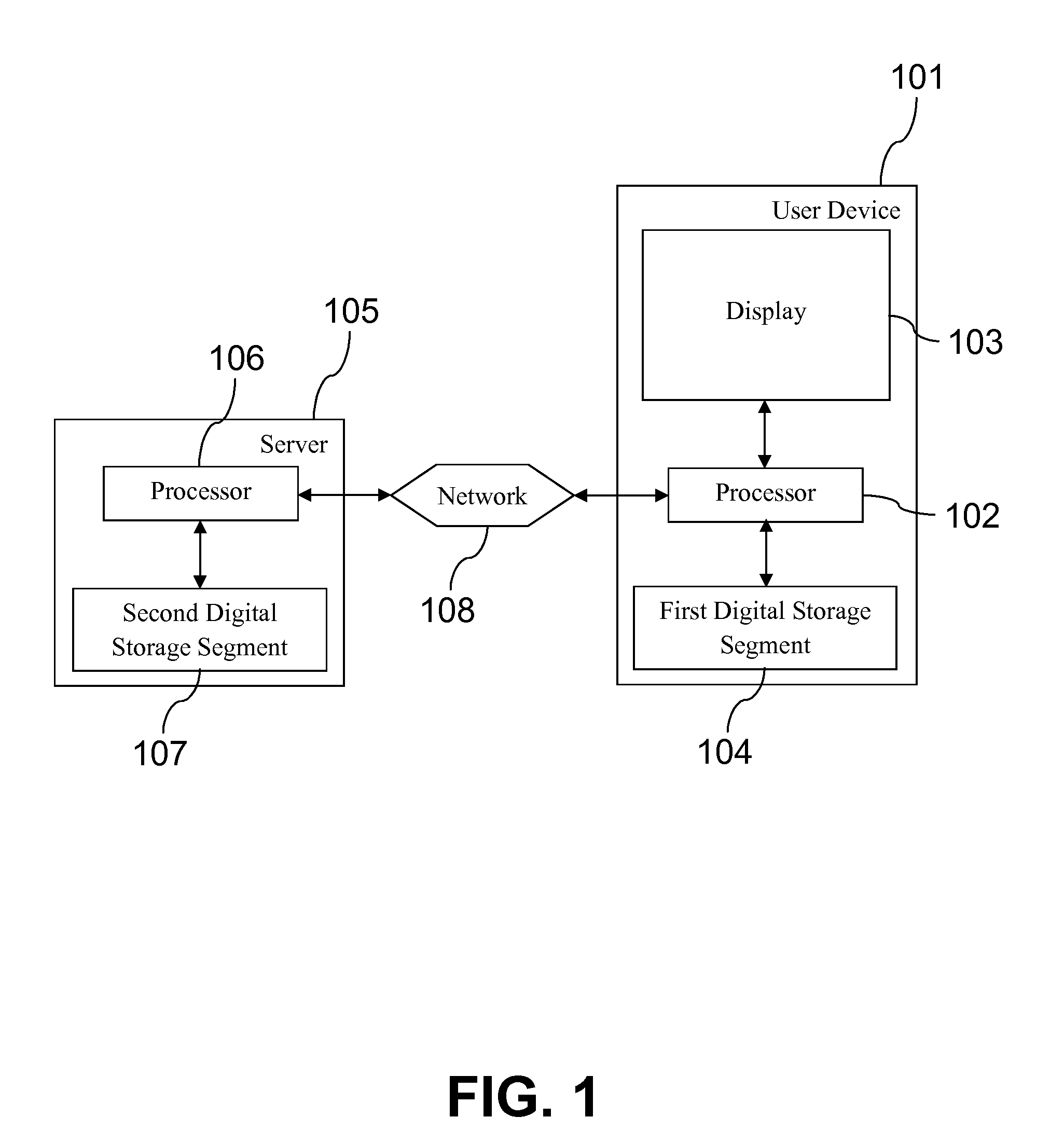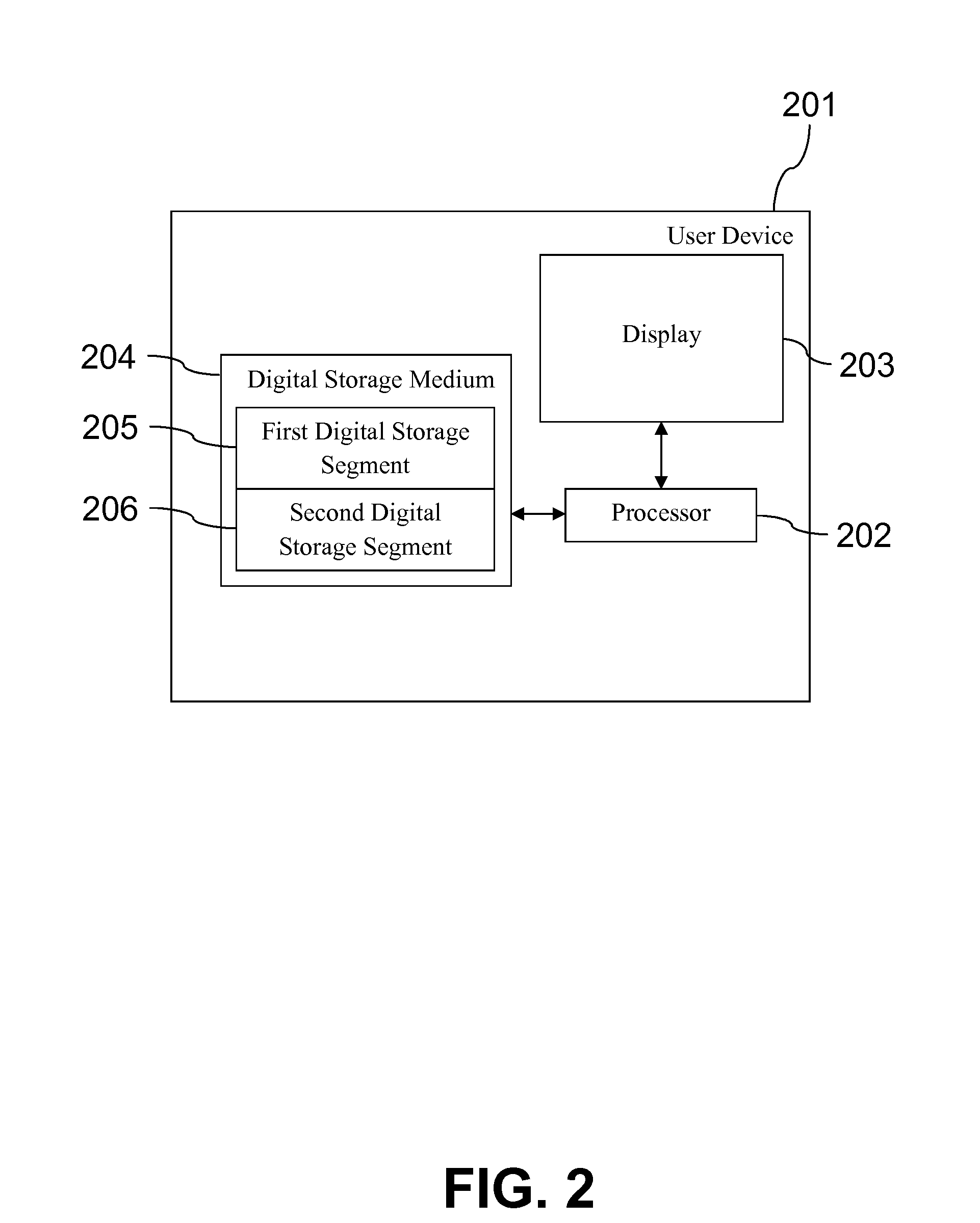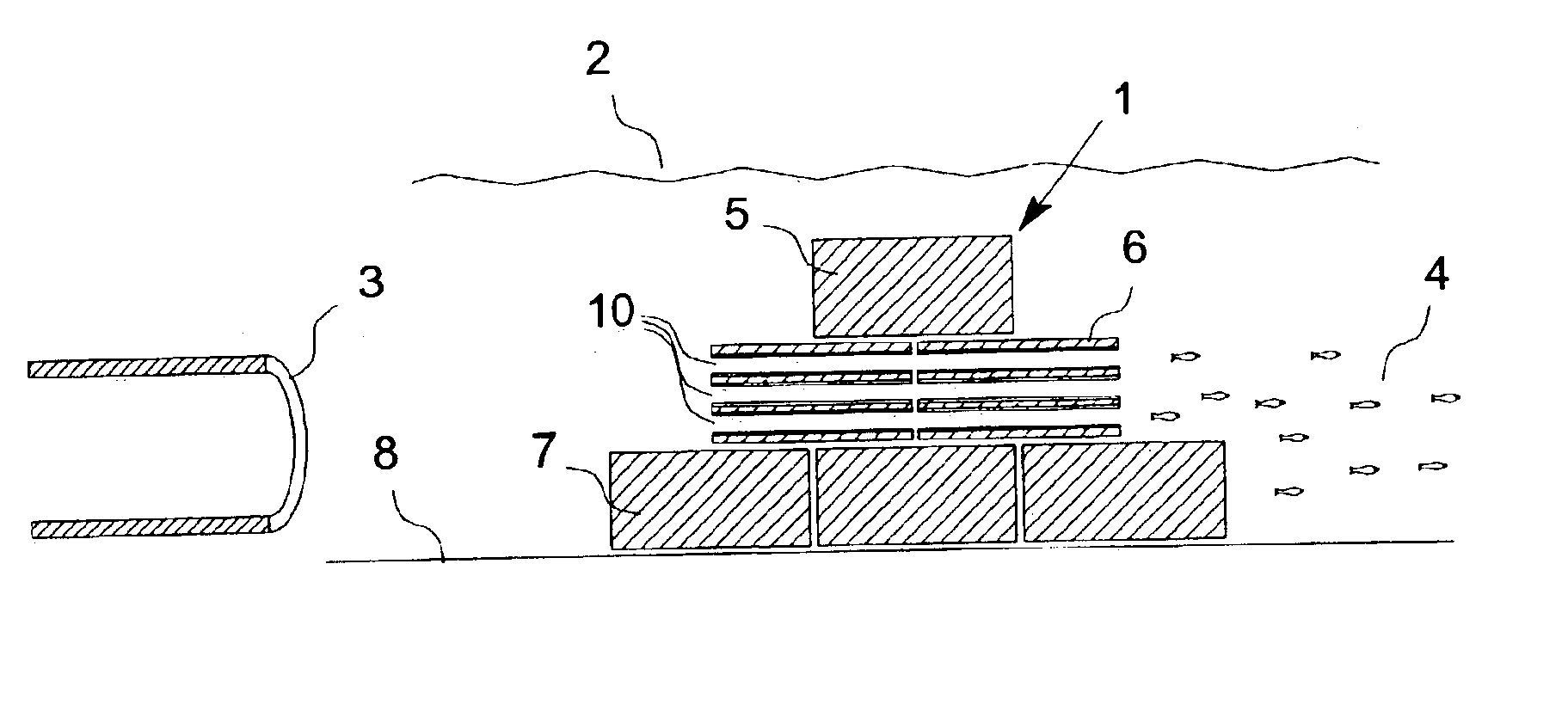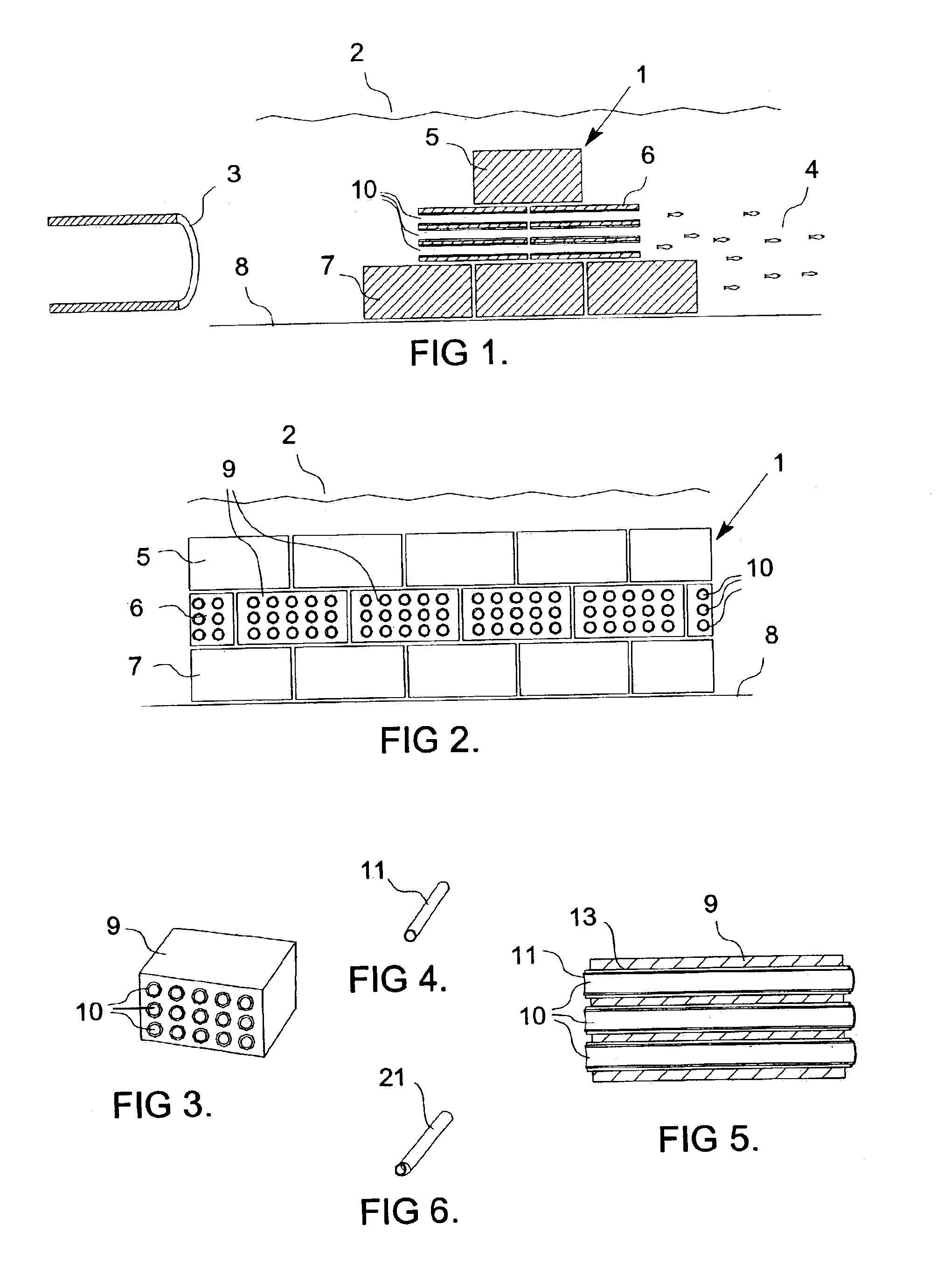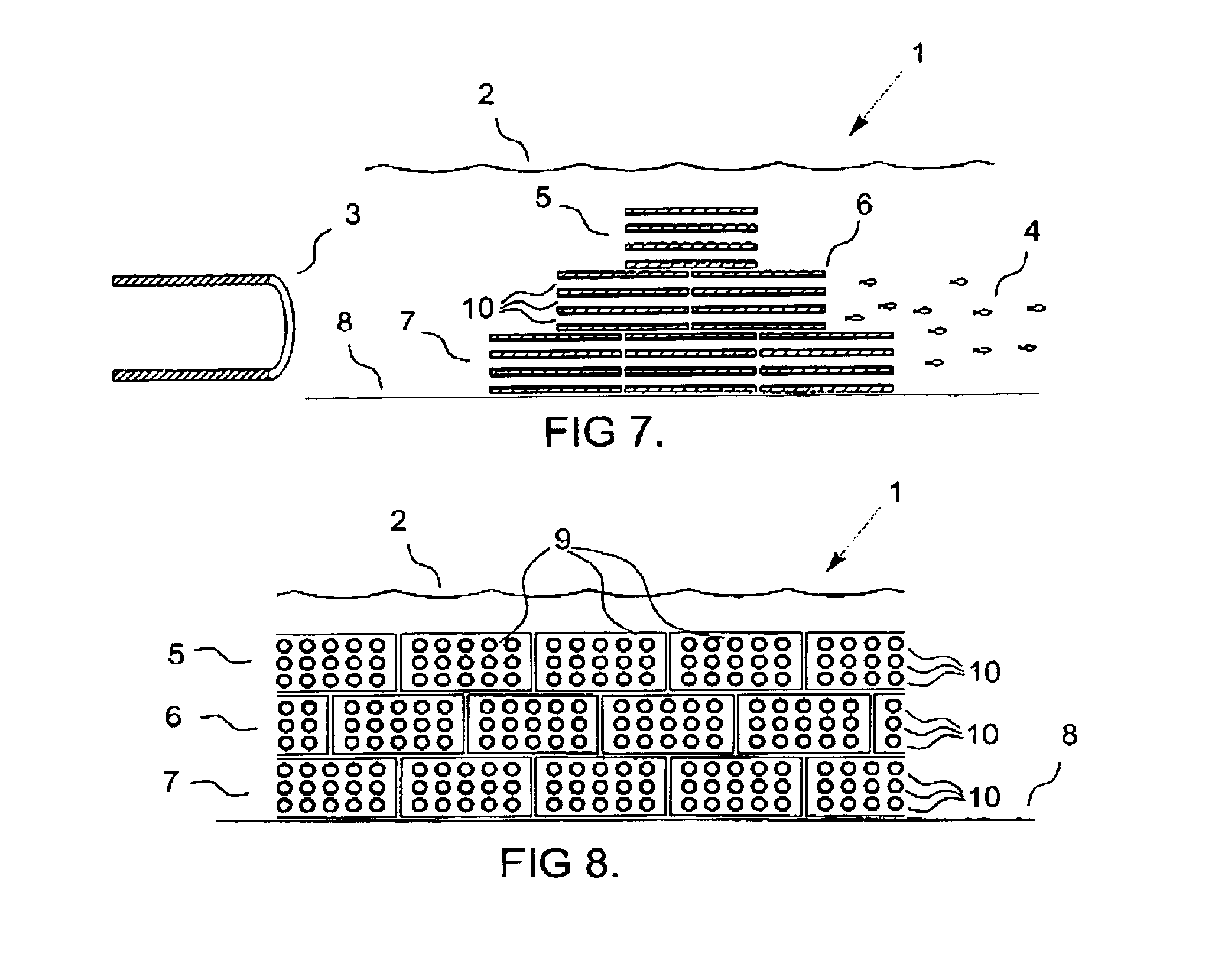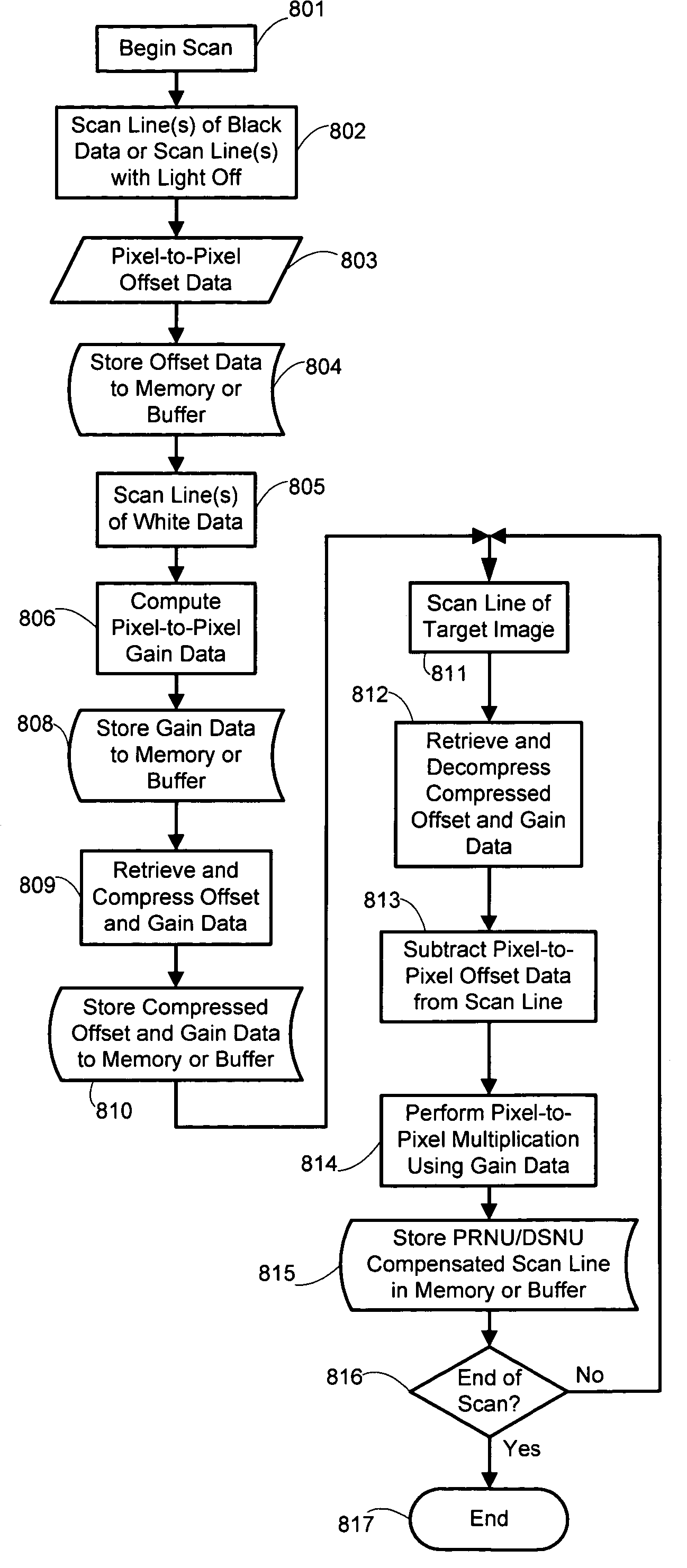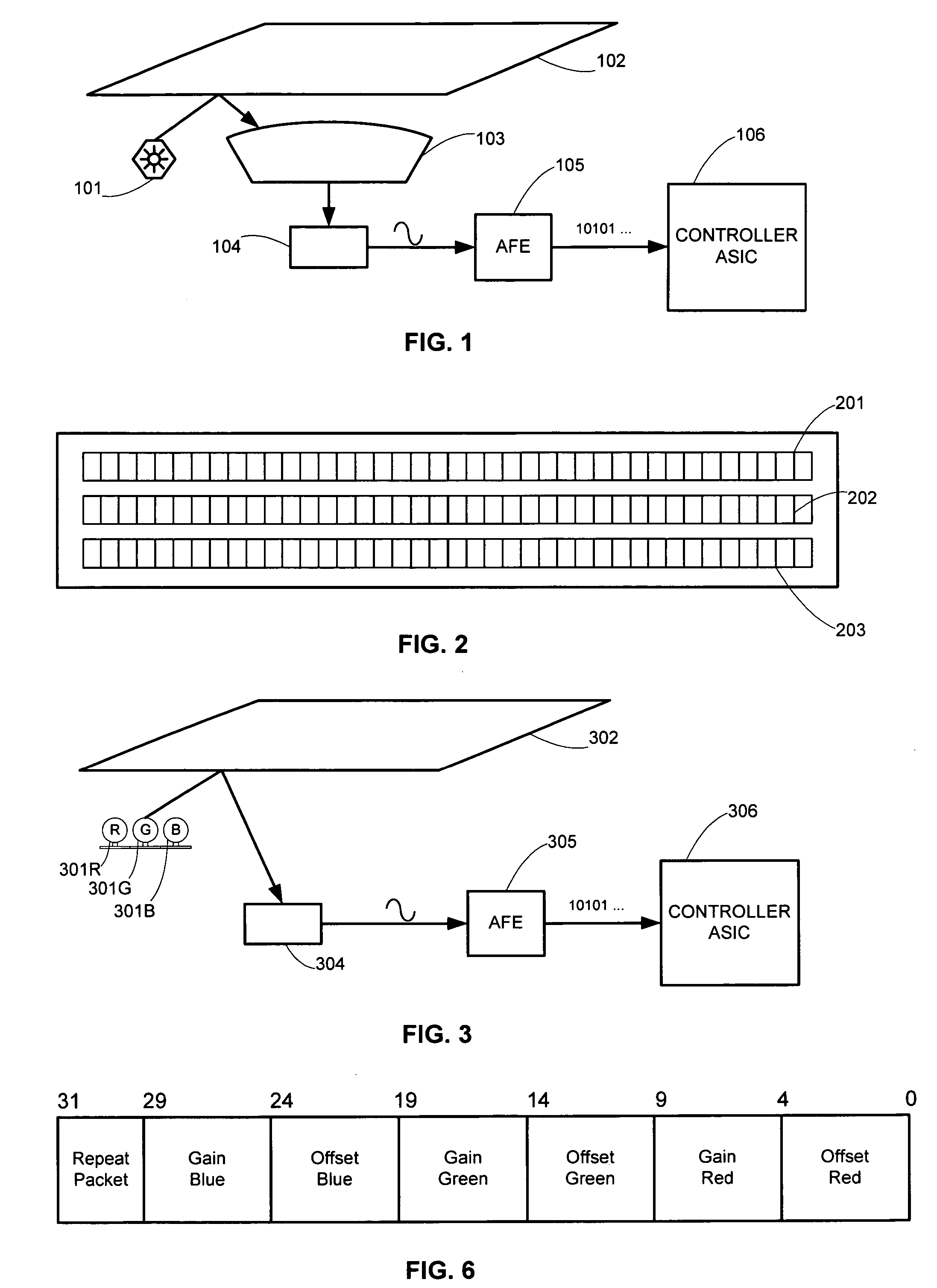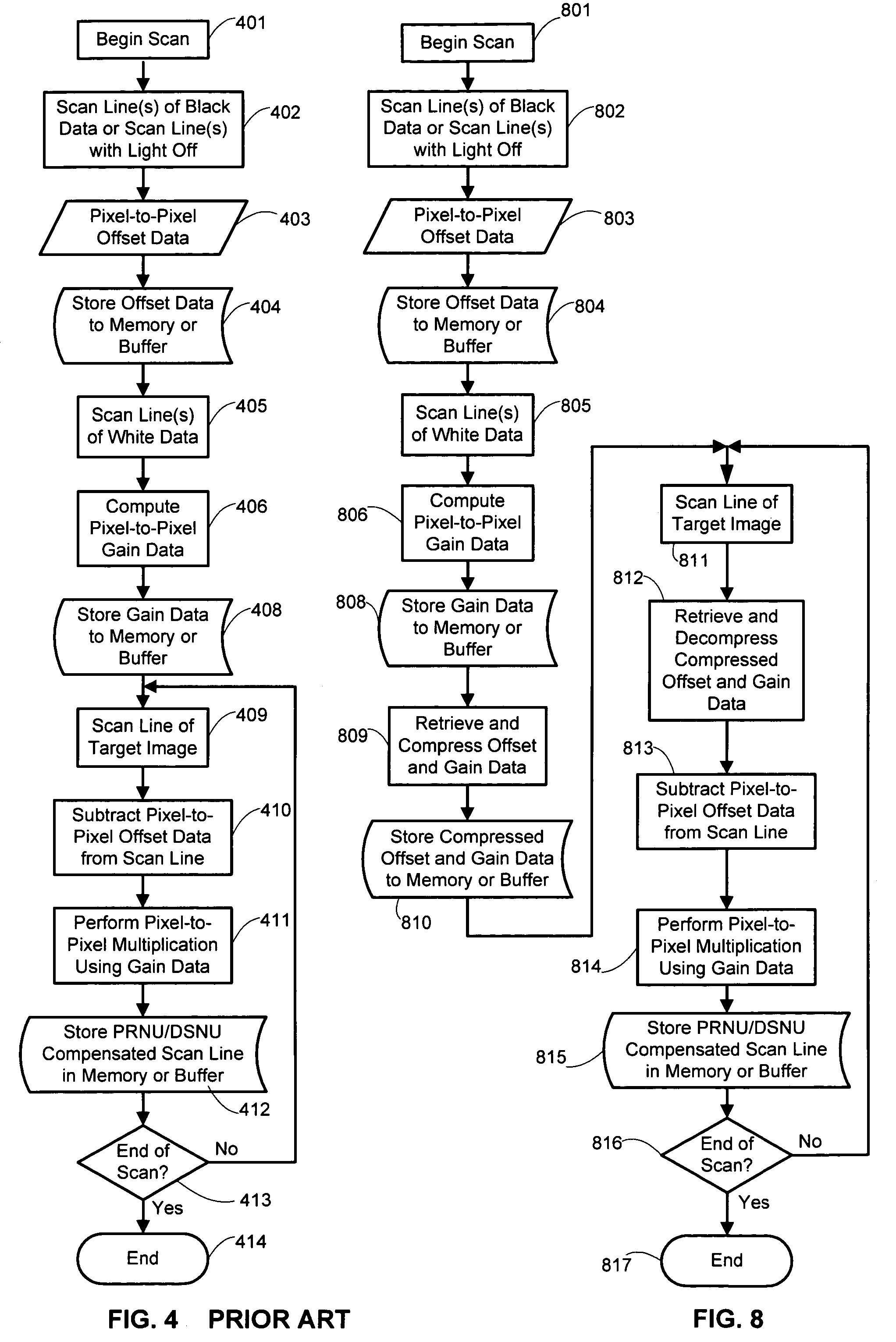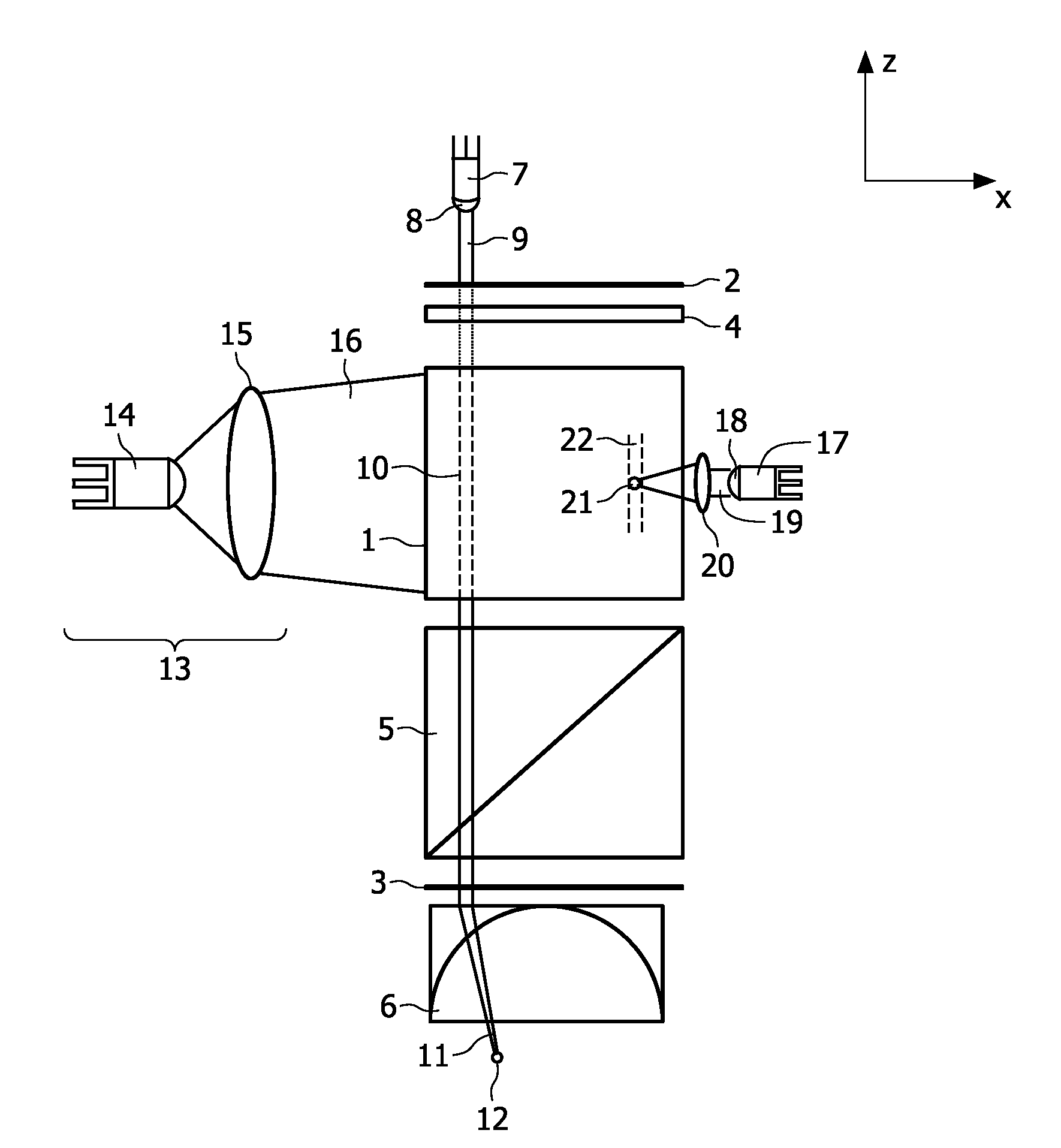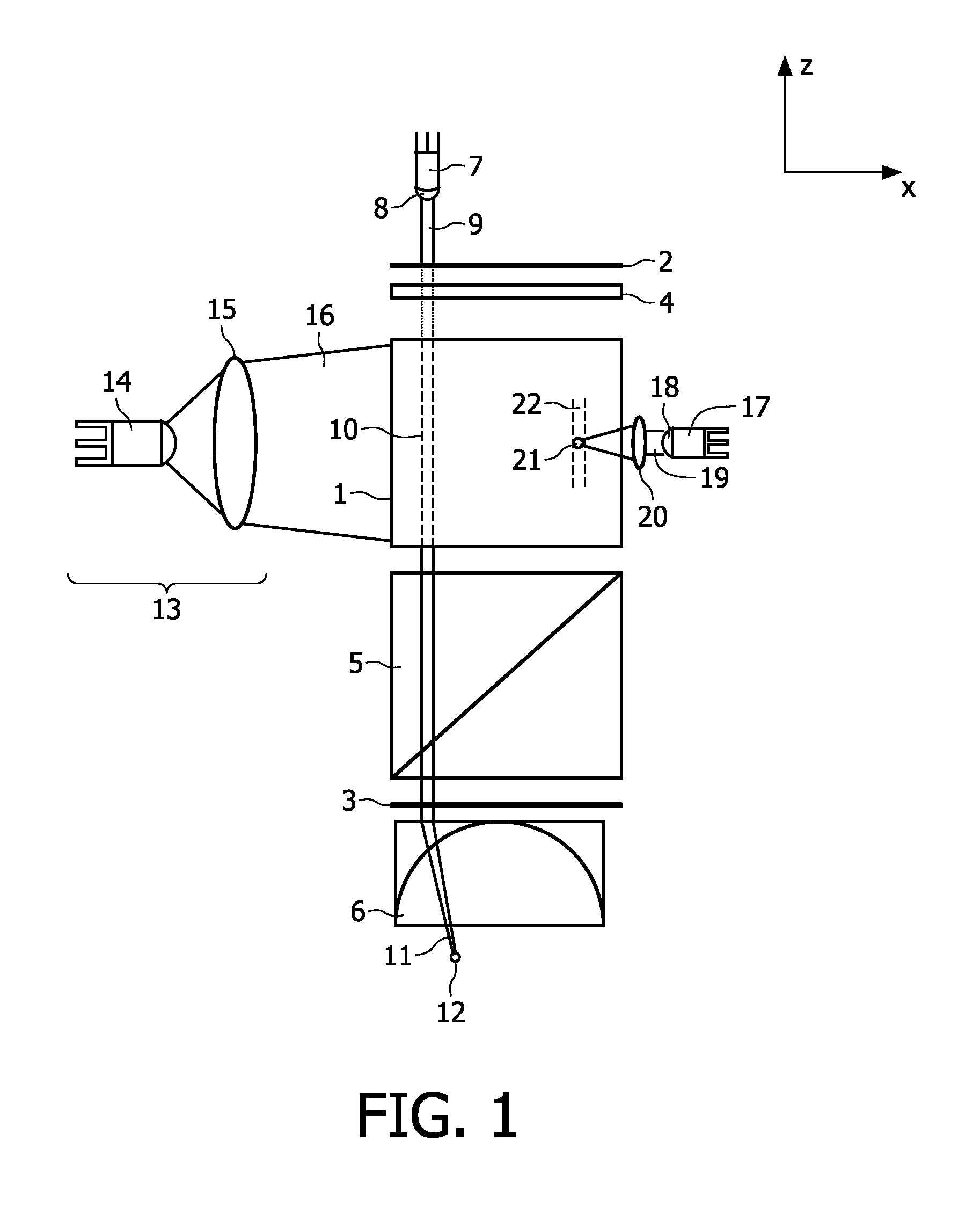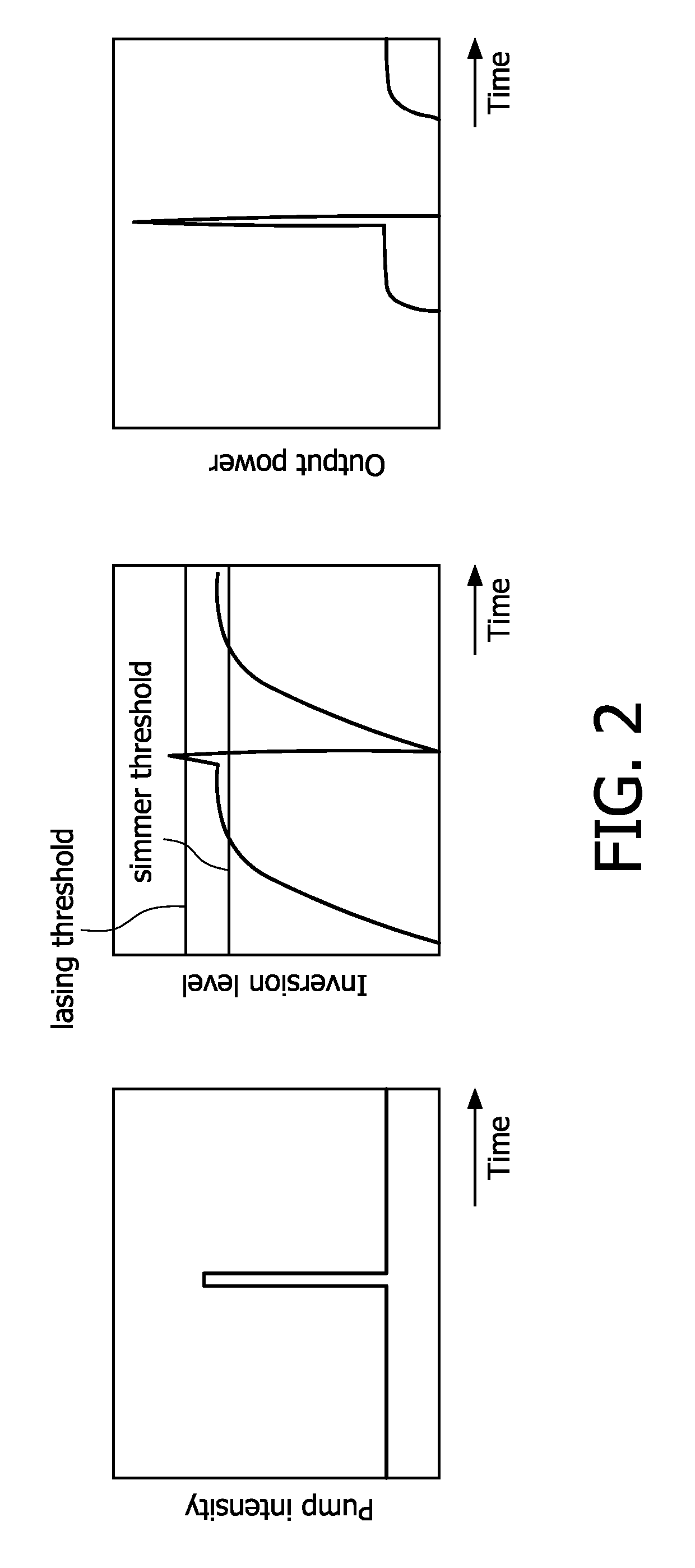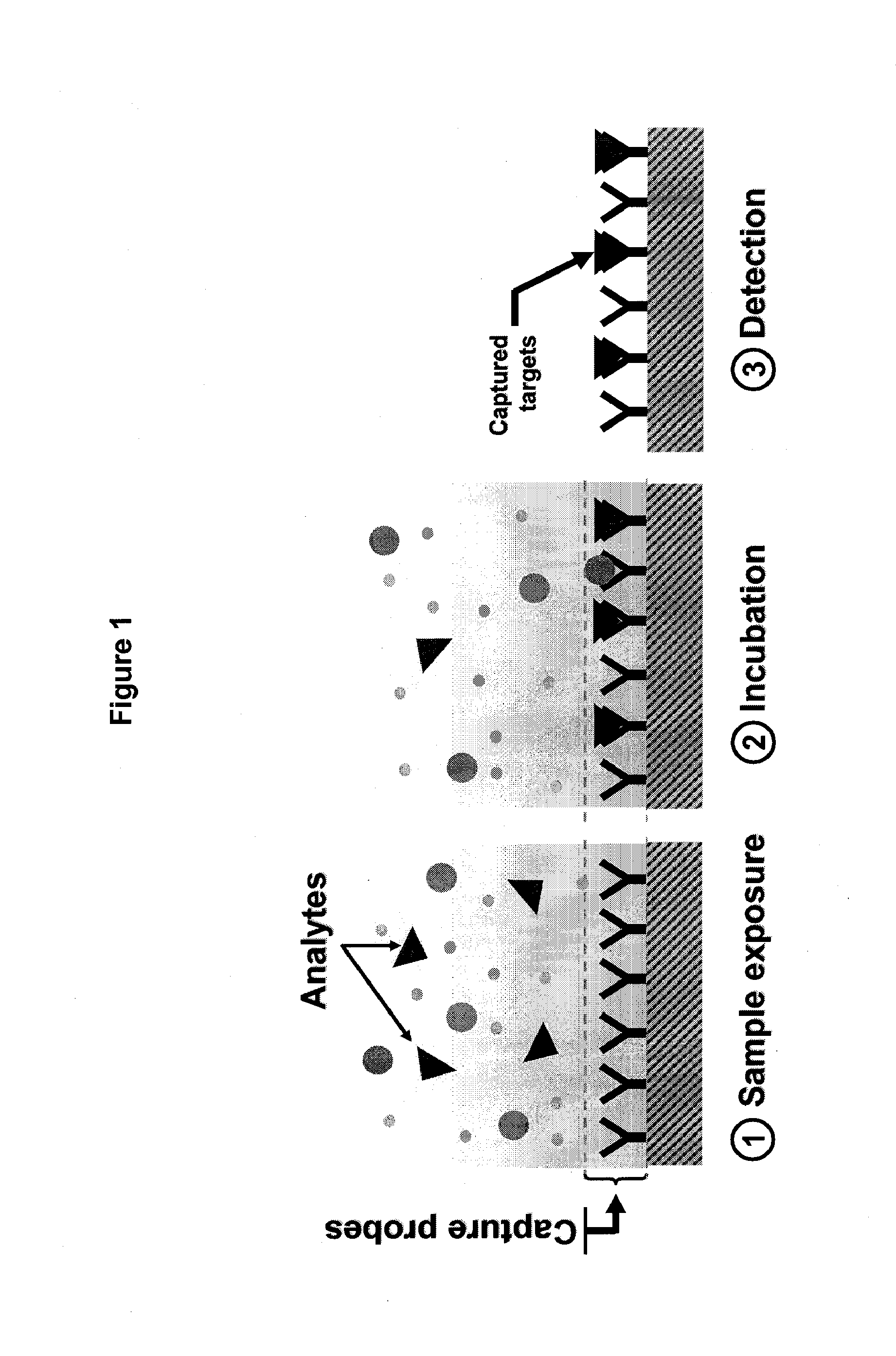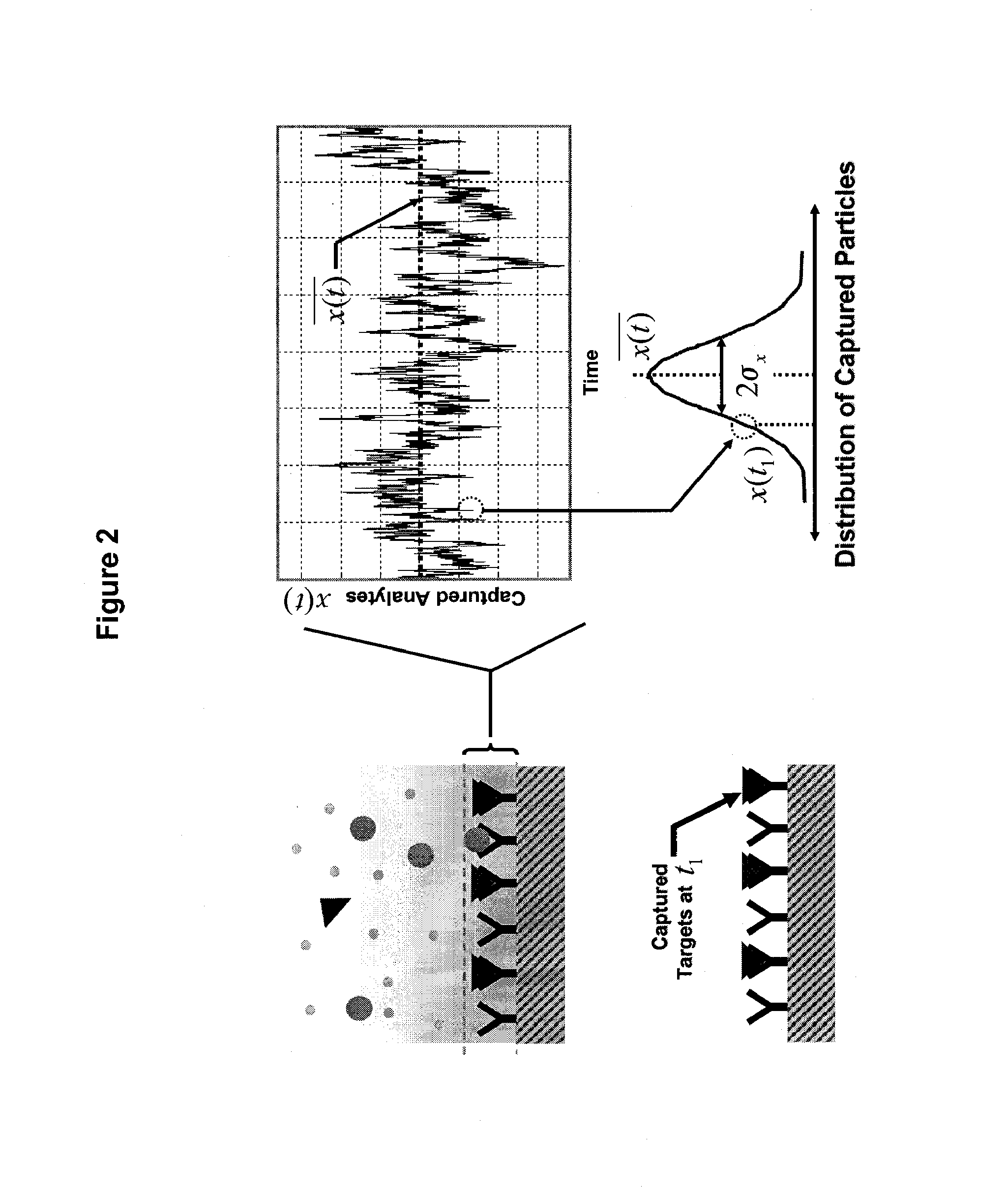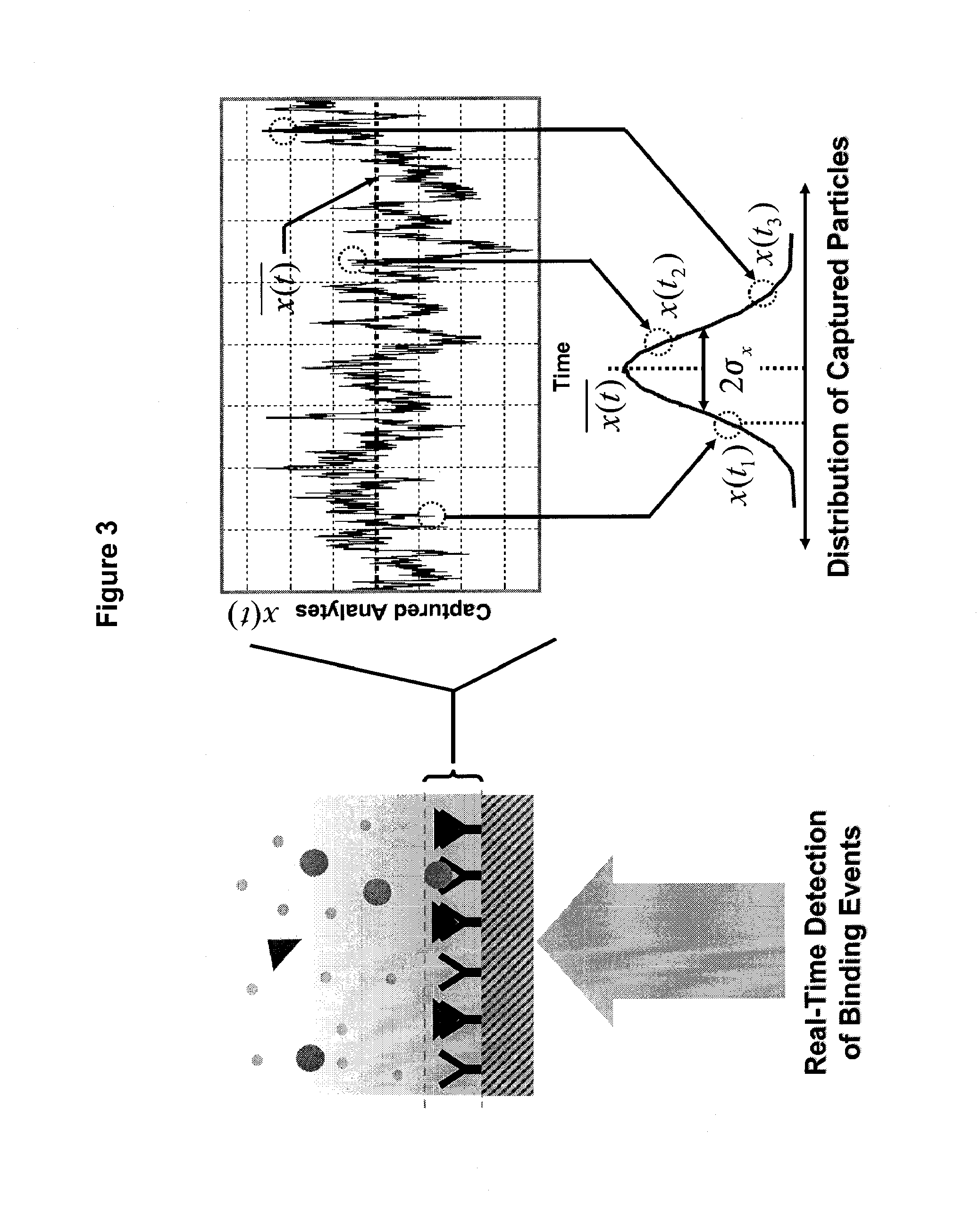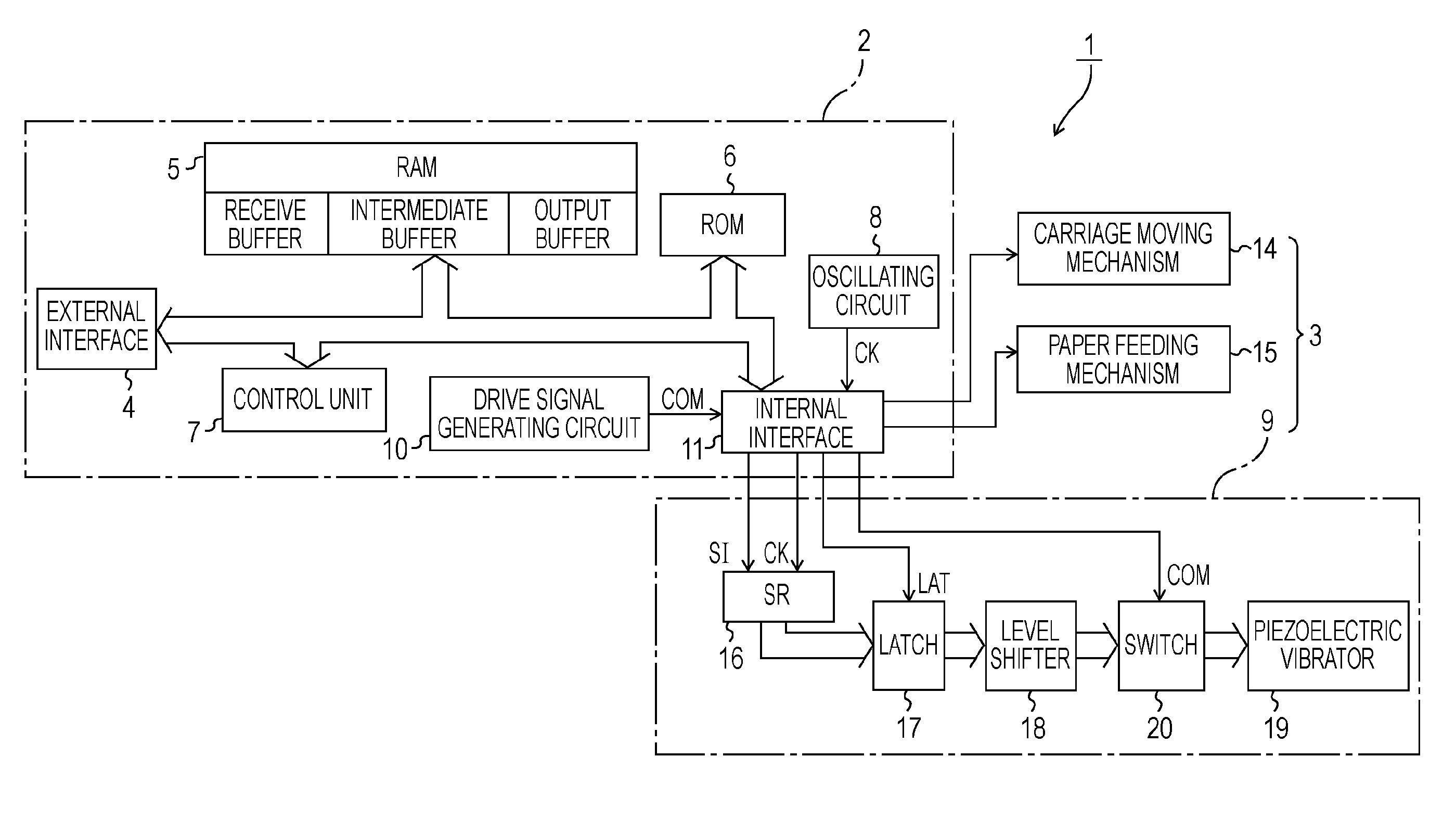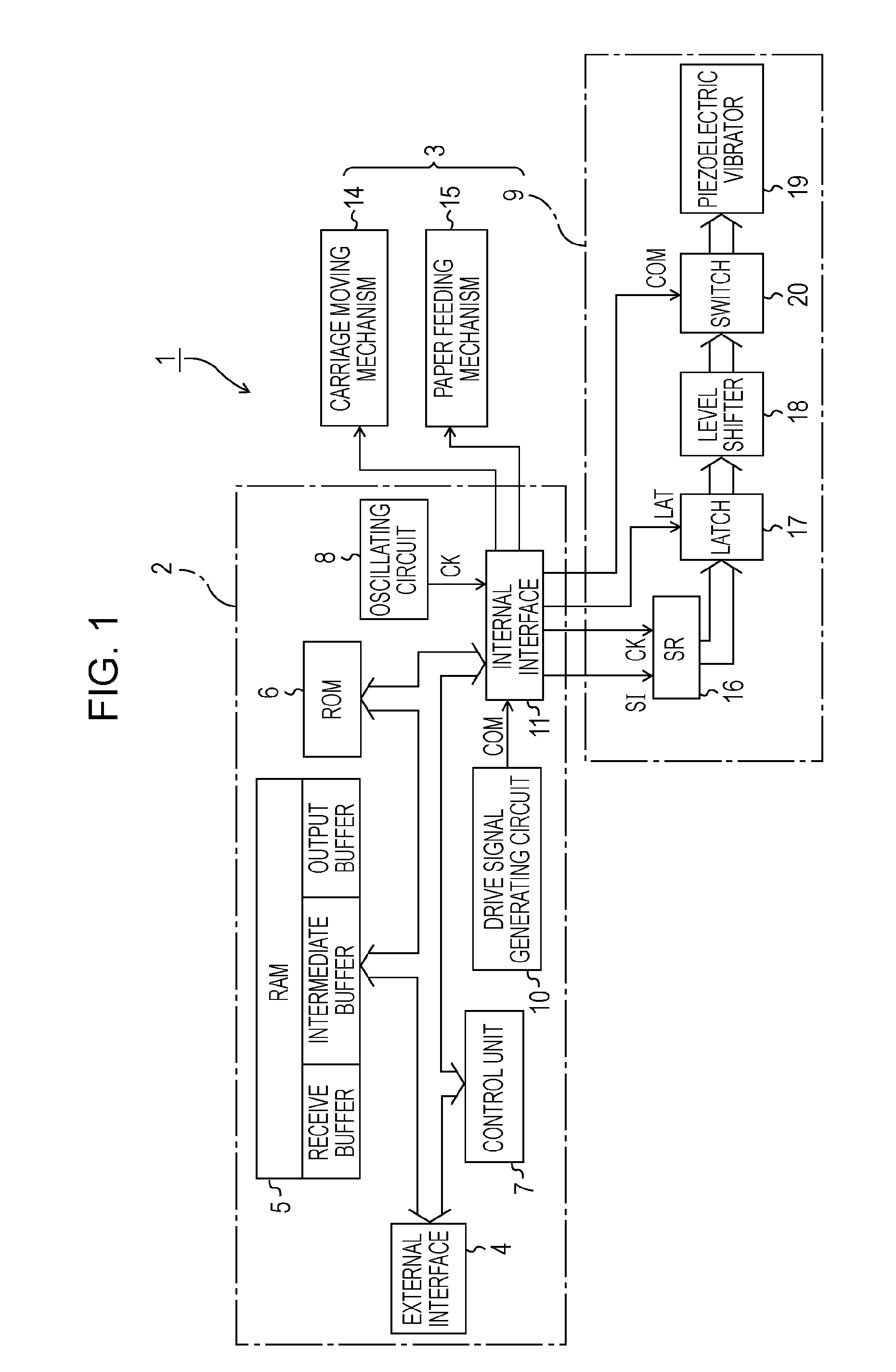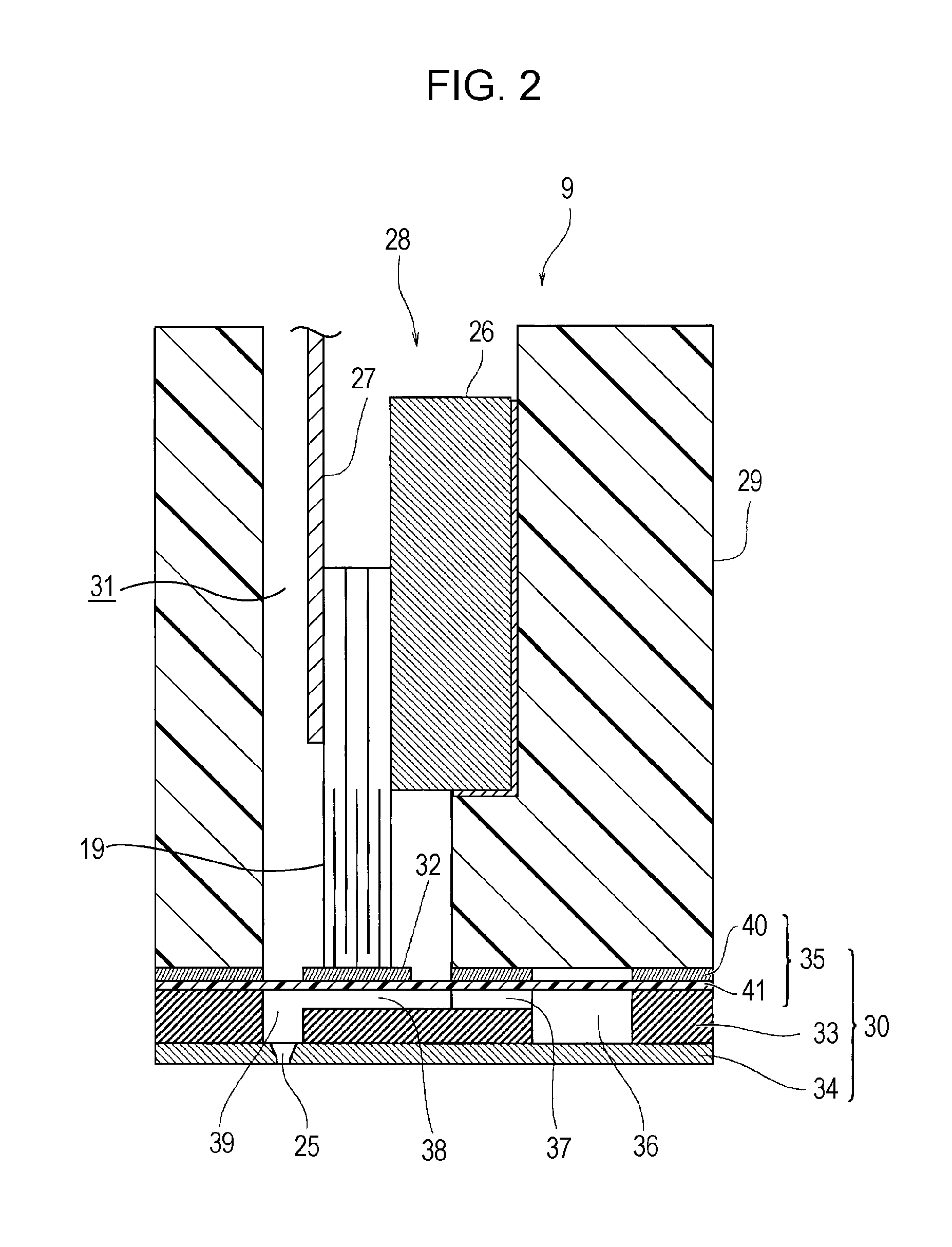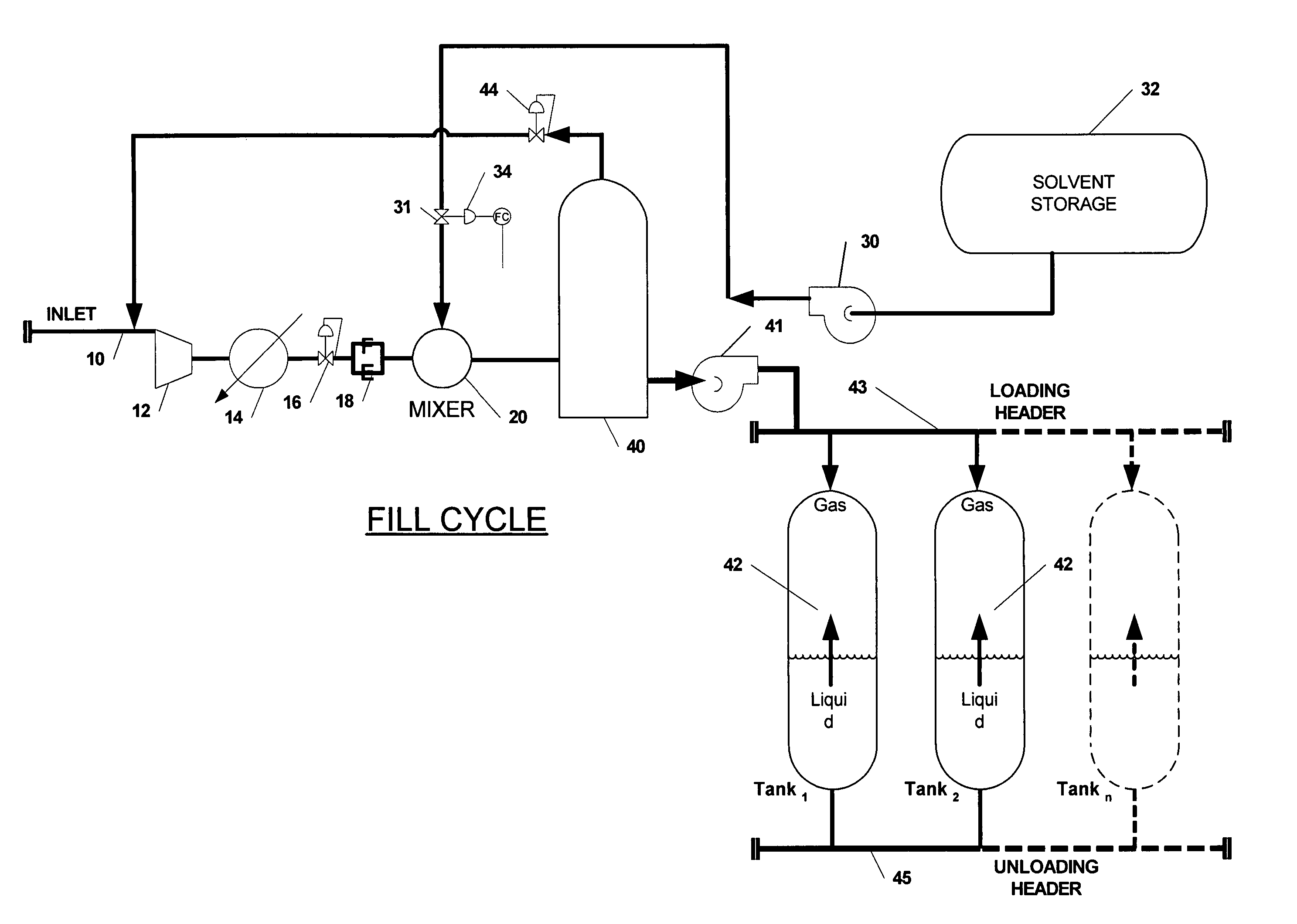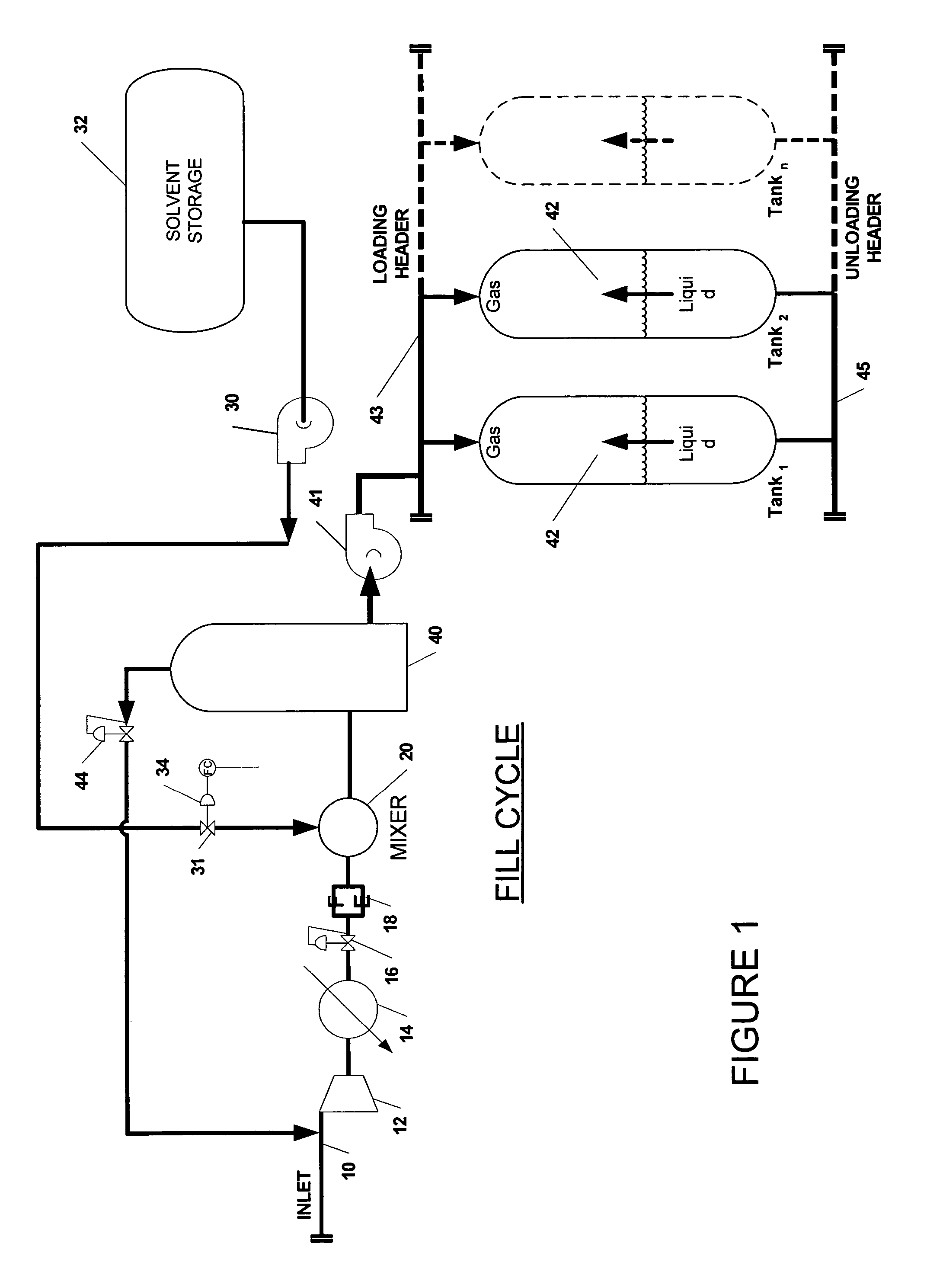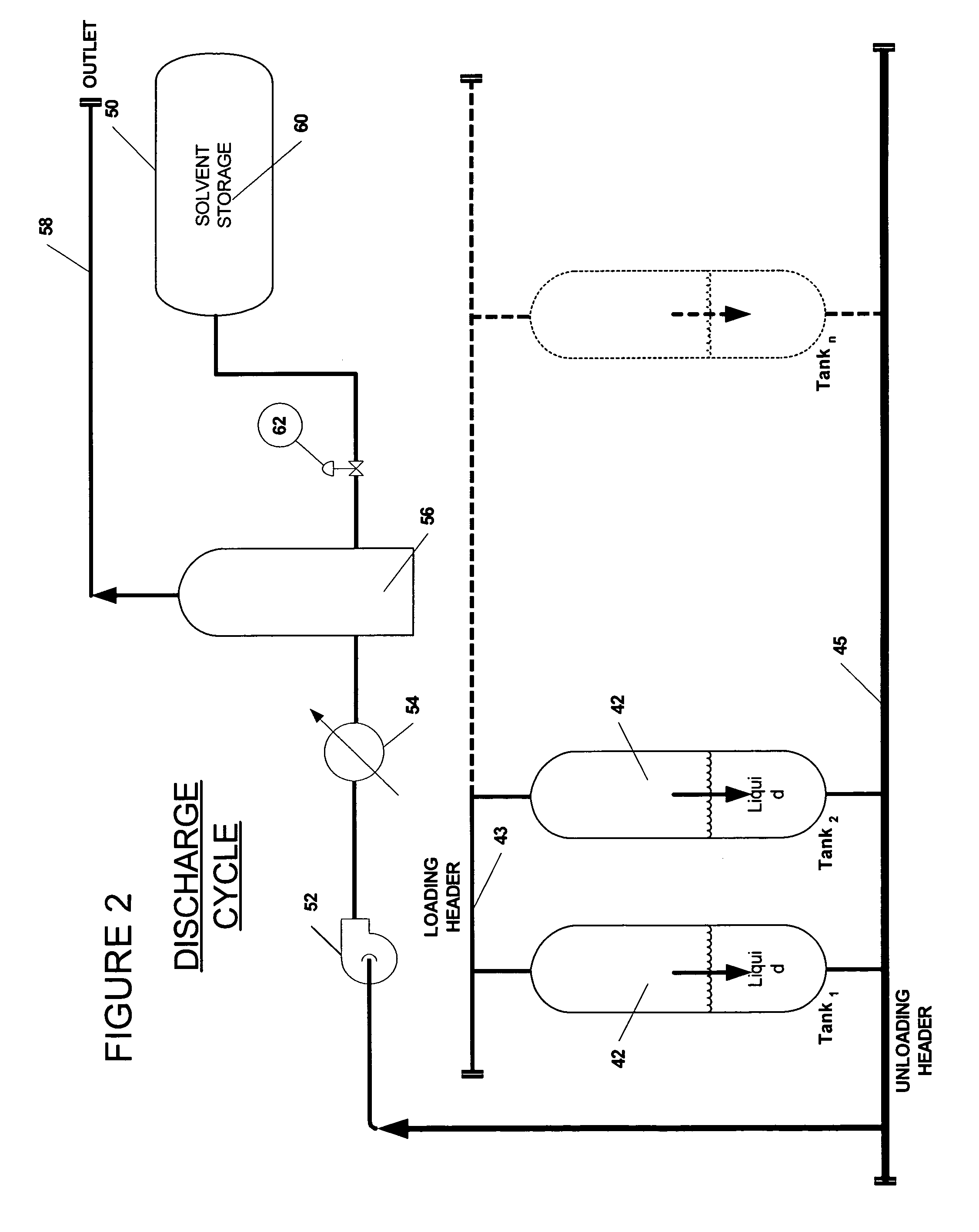Patents
Literature
129results about How to "Time" patented technology
Efficacy Topic
Property
Owner
Technical Advancement
Application Domain
Technology Topic
Technology Field Word
Patent Country/Region
Patent Type
Patent Status
Application Year
Inventor
Integrated Semiconductor Bioarray
ActiveUS20080081769A1TimeSlow reaction rateMicrobiological testing/measurementLibrary screeningAnalyteBiosensor array
A biosensor array, system and method for affinity based assays that are able to simultaneously obtain high quality measurements of the binding characteristics of multiple analytes, and that are able to determine the amounts of those analytes in solution. The invention also provides a fully integrated bioarray for detecting real-time characteristics of affinity based assays.
Owner:CALIFORNIA INST OF TECH
Measuring distance using wireless communication
InactiveUS20060197704A1TimeProcessing burden is minimizedDirection finders using radio wavesBeacon systems using radio wavesShort path lengthReal-time computing
A method of estimating the distance between a first wireless communication terminal and a second wireless communication terminal includes: receiving a signal at the first terminal, processing the received signal including performing a demodulation operation to produce a demodulated signal; and resolving the demodulated signal into a plurality of components corresponding to different path length components included in the received signal; identifying which of the resolved components corresponds to a shortest path length; and for the identified component, computing a time of travel from the second terminal to the first terminal.
Owner:MOTOROLA SOLUTIONS INC
Real Time Microarrays
ActiveUS20080039339A1TimeSlow reaction rateMicrobiological testing/measurementLibrary screeningAnalyteMicroarray
Owner:CALIFORNIA INST OF TECH
Method for increasing the therapeutic ratio/usage range in a neurostimulator
InactiveUS7127296B2Minimizing sensitivityExpand the scope of treatmentElectrotherapyCurve fittingIntensive care medicine
A system and method for patient control of the stimulation parameters of a Spinal Cord Stimulation (SCS) system, or other neurostimulation system, provides an increased Therapeutic Ratio (TR). Measurements of the just-perceptible stimulation level and the maximum-comfortable stimulation level are made for at least two values of pulse duration and two values of pulse amplitude. A Therapeutic Ratio is determined for stimulation level control strategies based on fixed pulse duration and variable pulse amplitude, and alternatively for fixed pulse amplitude and variable pulse duration. The control strategy providing the greatest therapeutic ratio is then selected for use by the patient. In an alternative embodiment, the pulse durations at the just-perceptible and maximum-comfortable stimulation levels are measured, and the pulse amplitudes at the just-perceptible and maximum-comfortable stimulation levels are determined using a curve-fitting process. Similarly, the pulse amplitudes may first be measured and the pulse widths determined using a curve-fitting process.
Owner:BOSTON SCI NEUROMODULATION CORP
Data transfer between virtual addresses
InactiveUS20030033431A1Increase speedShort timeMemory architecture accessing/allocationMemory adressing/allocation/relocationTranslation tableData transmission
When a first computer instructs transfer of data from the first computer to a second computer, a transmitting device in the first computer instructs the second computer to perform pre-read of a translation look-aside buffer, which contains a transfer-destination virtual address, in concurrence with read-out of initial data or of initial data for which the transfer-destination address has exceeded a page boundary, thereby causing virtual-address translation information to be pre-registered in a translation look-aside buffer from an address translation table of the second computer. When the second computer instructs transfer of data from the first computer to the second computer, a receiving device in the first computer instructs the second computer to perform pre-read of a translation look-aside buffer, which contains a transfer-destination virtual address, in concurrence with read-out of initial data or of initial data for which the transfer-destination address has exceeded a page boundary, thereby causing virtual-address translation information to be pre-registered in the translation look-aside buffer from an address translation table of the second computer.
Owner:NEC CORP
Multiplex Q-PCR Arrays
ActiveUS20080176757A1Measurement obtainedTimeBioreactor/fermenter combinationsBiological substance pretreatmentsNucleic Acid ProbesNucleic acid sequencing
Owner:CALIFORNIA INST OF TECH
Method for enhancing the retention efficiency of treatment chemicals in subterranean formations
ActiveUS7021378B2Improve reaction speedEasy to separateCleaning apparatusFluid removalRetention efficiencyEmulsion
A method for retaining a treatment chemical in a subterranean formation containing hydrocarbons is disclosed. The method includes first preparing an emulsion. The emulsion contains an oil continuous phase and first and second aqueous phases. The first aqueous phase includes a treatment chemical, such as a scale inhibitor. The second aqueous phase comprises a retention enhancing chemical which is to be reacted with the treatment chemical in the subterranean formation. Preferably, the first and second aqueous phases remain generally separately dispersed and stable within the oil continuous phase prior to being introduced into the subterranean formation. The emulsion is then placed down a well bore and into the subterranean formation. The first and second aqueous phases then interact with one another in the subterranean formation such that the treatment chemical and the retention enhancing chemical react with one another resulting in the treatment chemical being retained in the subterranean formation at a greater efficiency than had the second aqueous phase, including the retention enhancing chemical, not been used.
Owner:CHEVROU USA INC
Roll-To-Roll Electroplating for Photovoltaic Film Manufacturing
InactiveUS20080093221A1Reduce effective series resistance of deviceMinimize handlingCellsMaterial nanotechnologyIndiumElectrical battery
A roll to roll system for forming an absorber structure for solar cells on a flexible foil as the flexible foil is advanced through units of the system and by unwrapping from a supply spool and wrapping around a take-up spool. Surface of the flexible foil is first conditioned in a conditioning unit to form an activated surface. A precursor stack including copper, gallium and indium layers is electroplated onto the activated surface by utilizing separate electroplating units for each layers. The precursor layer is reacted with at least one of Se and S in an annealing unit of the system.
Owner:SOLOPOWER
Reclosable Wound Dressing System
InactiveUS20070282236A1Shorten the timeReduce removalPlastersAdhesive dressingsWound dressingAdhesive
A reclosable wound dressing system, comprising a base portion having a circumference and lower and upper sides, the lower side carrying an adhesive that adheres to the skin, the upper side defining a first part of a two-part mechanical fastener system, the base portion defining an open area within the circumference, and a covering portion having a lower side that defines the second part of the two-part mechanical fastener system, the covering portion overlying at least part of and engaging with the upper side of the base portion, the covering portion fully covering the open area of the base portion, to cover a wound located in the open area.
Owner:ADVANCED PATIENT CARE
Method for Creating and Navigating Link Based Multimedia
InactiveUS20120047437A1Rapidly and accurately navigateFast timeRecord information storageCarrier indicating arrangementsMotion graphicsLarge screen
A method, in combination with or on a computer, for defining, editing, and jumping to predefined points in time in audio, video and other multimedia playback by selecting a point of interest from a scrolling list of choices, rendered with dynamic transparency if superimposed on motion graphics or video. Additionally, the present invention renders such a system to be easily used on a small screen while maximizing viewable area, as well as on large screen devices with various devices or human input.
Owner:CHAN JEFFREY
Storage of natural gas in liquid solvents and methods to absorb and segregate natural gas into and out of liquid solvents
Bulk storage of natural gas or methane is facilitated by absorbing and storing the gas in a liquefied medium through the interaction of moderate pressure, low temperature and a solvent medium. Systems and processes are provided that facilitate the absorption of natural gas or methane into a liquid or liquid vapor medium for storage and transport, and back into a gas for delivery to market. In a preferred embodiment, the absorptive properties of ethane, propane and butane under moderate conditions of temperature and pressure (associated with a novel mixing process) are utilized to store natural gas or methane at more efficient levels of compressed volume ratio than are attainable with natural gas alone under similar holding conditions. The preferred mixing process efficiently combines natural gas or methane with a solvent medium such as liquid ethane, propane, butane, or other suitable fluid, to form a concentrated liquid or liquid vapor mixture suited for storage and transport. The solvent medium is preferably recycled in the conveyance vessel on unloading of the natural gas.
Owner:SEAONE HLDG
Ostomy tools, and systems and processes for their use
InactiveUS20050075616A1Risk minimizationFlexible and convenientNon-surgical orthopedic devicesColostomyDisposal wasteEngineering
Waste management for people with an ostomy (ostomists), and who therefore find it necessary to wear an ostomy bag, is accomplished simply through processes, systems and ostomy tools involving versatile latent tubes. Such tools include ostomy bags, filters, connectors and conveyance vessels. The tools are particularly helpful, for example, in controlling the location and disposition of ostomy wastes (and their odors) when the ostomist performs challenging routine to unusual tasks associated with ostomy care and maintenance. The tools also help to instill confidence in the users' ability to carry on normal daily business and social activities without creating embarrassment or discomfort for themselves or others.
Owner:HOLTER DWIGHT JEROME
Design and manufacturing management system, method, and program
InactiveUS7606628B2Improve processing efficiencyApplied load reductionData processing applicationsComputer aided designManagement unitManufacturing management
Owner:FUJITSU LTD
Integrated semiconductor bioarray
ActiveUS20130225441A1TimeSlow reaction rateMicrobiological testing/measurementLibrary screeningAnalyteBiosensor array
A biosensor array, system and method for affinity based assays that are able to simultaneously obtain high quality measurements of the binding characteristics of multiple analytes, and that are able to determine the amounts of those analytes in solution. The invention also provides a fully integrated bioarray for detecting real-time characteristics of affinity based assays.
Owner:CALIFORNIA INST OF TECH
Data transfer between virtual addresses
InactiveUS6928529B2Increase speedShort timeMemory architecture accessing/allocationMemory adressing/allocation/relocationTranslation tableData transmission
Owner:NEC CORP
Workpiece detecting system, picking apparatus, picking method, and transport system
InactiveUS20100106297A1Short timeReduce areaPosition fixationStorage devicesTransport systemEngineering
A workpiece detection system includes: a plurality of transmitters disposed on a workpiece, each transmitter transmitting a first signal; three or more receivers receiving the first signal transmitted from the transmitter; and a position calculator detecting a location of the transmitter based on the first signal received by each of the receivers. The position calculator detects a posture of the workpiece from information on the detected locations of the plurality of transmitters.
Owner:SEIKO EPSON CORP
Seed treatment facilities, methods and apparatus
ActiveUS20120189762A1Reduce delaysEfficiently and economically treatLiquid surface applicatorsData processing applicationsNetwork connectionData memory
A seed treatment system having a central computerized data store, a user interface, and network connections from the data store to a plurality of retail facilities and a plurality of agricultural produce suppliers. Each retail facility having a seed treatment system configured to uniformly treat batches of seeds with any of a variety of precisely measured chemical formulations. The seed treatment apparatus having a treatment applicator coupled to a plurality of dispensing stations. Each dispensing stations having a pump in fluid communication with a container disposed on a scale. The pump and scale of each dispensing station coupled to a system controller. The system controller is coupled to the data store, configured to provide on-demand agricultural seed treatments to the applicator and chemical usage data from each station to the data store. The data store configured to provide centralized remote monitoring inventory control, supply chain monitoring, and container recycling compliance.
Owner:BAYER CROPSCI LP
Multiplex Q-PCR arrays
ActiveUS8048626B2TimeSlow reaction rateSugar derivativesMicrobiological testing/measurementNucleic Acid ProbesNucleic acid sequencing
This invention provides methods and systems for measuring the concentration of multiple nucleic acid sequences in a sample. The nucleic acid sequences in the sample are simultaneously amplified, for example, using polymerase chain reaction (PCR) in the presence of an array of nucleic acid probes. The amount of amplicon corresponding to the multiple nucleic acid sequences can be measured in real-time during or after each cycle using a real-time microarray. The measured amount of amplicon produced can be used to determine the original amount of the nucleic acid sequences in the sample.
Owner:CALIFORNIA INST OF TECH
Reclosable wound dressing system
InactiveUS7576257B2Shorten the timeReduce the negative factors relatedPlastersAdhesive dressingsWound dressingAdhesive
A reclosable wound dressing system, comprising a base portion having a circumference and lower and upper sides, the lower side carrying an adhesive that adheres to the skin, the upper side defining a first part of a two-part mechanical fastener system, the base portion defining an open area within the circumference, and a covering portion having a lower side that defines the second part of the two-part mechanical fastener system, the covering portion overlying at least part of and engaging with the upper side of the base portion, the covering portion fully covering the open area of the base portion, to cover a wound located in the open area.
Owner:ADVANCED PATIENT CARE
Compressor capacity modulation
InactiveUSRE40830E1Eliminate unbalanced operation of compressorMinimizes pressure fluctuationRotary/oscillating piston combinations for elastic fluidsRotary piston pumpsRC time constantControl system
A pulsed modulated capacity modulation system for refrigeration, air conditioning or other types of compressors is disclosed in which suitable valving is provided which operates to cyclically block flow of suction gas to a compressor. A control system is provided which is adapted to control both the frequency of cycling as well as the relative duration of the on and off time periods of each cycle in accordance with sensed system operating conditions so as to maximize the efficiency of the system. Preferably the cycle time will be substantially less than the time constant of the load and will enable substantially continuously variable capacity modulation from substantially zero capacity to the full capacity of the compressor. Additional controls may be incorporated to modify one or more of the motor operating parameters to improve the efficiency of the motor during periods of reduced load.
Owner:EMERSON CLIMATE TECH INC
Design and manufacturing management system, method, and program
InactiveUS20060155407A1Improve processing efficiencyApplied load reductionData processing applicationsComputer aided designManagement unitManufacturing management
A drawing edit management unit of a design management server manages an E-BOM created from a CAD design drawing by storing the E-BOM in a E-BOM database, and notifies a manufacturing management server of design completion. A design change display processing unit causes design change permitted ranges and forbidden ranges to be displayed, upon design change, in accordance with design change verification information of a design change verification database. A parts order management unit of the manufacturing management server requests confirmation when receiving the design completion notice, and manages a M-BOM, to which preparation information including order instructions and manufacturing instructions of a part is added and which has been created from the E-BOM after confirmation, by storing the M-BOM in a M-BOM database. A design change verification processing unit manages design change verification information created from the preparation information of the M-BOM by storing the design change verification information in a design verification database.
Owner:FUJITSU LTD
Ostomy tools, and systems and processes for their use
InactiveUS7090664B2Risk minimizationFlexible and convenientNon-surgical orthopedic devicesColostomyDisposal wasteEngineering
Waste management for people with an ostomy (ostomists), and who therefore find it necessary to wear an ostomy bag, is accomplished simply through processes, systems and ostomy tools involving versatile latent tubes. Such tools include ostomy bags, filters, connectors and conveyance vessels. The tools are particularly helpful, for example, in controlling the location and disposition of ostomy wastes (and their odors) when the ostomist performs challenging routine to unusual tasks associated with ostomy care and maintenance. The tools also help to instill confidence in the users' ability to carry on normal daily business and social activities without creating embarrassment or discomfort for themselves or others.
Owner:HOLTER DWIGHT JEROME
Enhanced Electronic Health Record Graphical User Interface System
ActiveUS20140282238A1Increase speedCreate quicklyComputer-assisted medical data acquisitionSpecial data processing applicationsGraphicsGraphical user interface
An enhanced electronic health record system. A user device having a display accesses electronic health records and clinic note templates stored on digital storage segments. A template selection screen is presented on the display of the user device. The template selection screen has at least two view modes. One view mode is a grid view, in which icon representations of various clinic note templates are displayed, each icon representation having a number of secondary icons providing additional functionality and information to the user. Also available is a list view, which also contains a vertical listing of available clinic note templates, each list element also having secondary icons. Upon selection of a template, the user is presented with a formatted clinic note. Additional functionality is available to the user to aid in the efficient capture of information.
Owner:ADVANCEDMD INC
Algaecide compositions and methods of removing algae
InactiveUS6291397B1TimeKeep for a long timeBiocideDead animal preservationLithium hydroxidePotassium hydroxide
An algaecide formulated in a concentrated, solid composition form for subsequent dissolution in water is disclosed. The algaecide is designed to remove algae from a variety of interior and exterior surfaces. The preferred algaecide compositions chlorinated isocyanurates, such as sodium dichloro-s-triazinetrione, alkali hydroxides selected from the group consisting of sodium hydroxide, potassium hydroxide, calcium hydroxide, and lithium hydroxide; metal sulfates selected from the group consisting of copper sulfate, zinc sulfate, and aluminum sulfate; and a buffer.
Owner:WILKINS JR JOE S
Porous dike intake structure for fish diversion
InactiveUS6955759B2TimeEasy to disassembleMachines/enginesHydraulic engineering apparatusZebra musselShortest distance
A structure for diverting fish away from water intakes comprises a porous dike having a bottom portion, a central portion, and a top portion, the top portion preferably being submerged a short distance below the surface, and the central portion having flow passages. In a preferred embodiment, the top and bottom portions comprise solid blocks and the flow passages in the central portion are lined with zebra mussel resistant sleeves to minimize clogging. Preferably the sleeve can be readily replaced as desired.
Owner:KINECTRICS
System and method for high-performance scanner calibration
InactiveUS20060001921A1Reduce memory requirementsRelieve size/performance bottleneckTelevision system detailsApplication-specific integrated circuitComputer science
The present invention is directed to a system and method for reducing the memory requirement for offset and gain calibration to relieve the size / performance bottleneck in scanner systems. The resulting methodology produces visually equivalent scanned results with a substantial increase in performance, which results in a shorter amount of time required to output a first copy in, for example, an all-in-one device. Since the calibration step is often the bottleneck in scanner performance, this method noticeably speeds up scan and copy time. Implementing the decompression in hardware requires a minimal amount of hardware overhead and complexity. Thus, this method has a minimal impact on the size and cost of the scanner controller (e.g., an ASIC—application specific integrated circuit). Since compression only takes place at most once per scan, this added step has no significant impact on the overall scan time. By allowing dynamic grouping of pixels using a single calibration packet, the quality of the compensation can be optimized with the size of the compensation data being minimized. Adding the ability to shift the compressed deviation stored in the calibration packet, the range of the pixel-to-pixel deviation can be increased without impacting the size of the calibration data. This flexibility makes this invention applicable to future image sensors that may have widely varying deviations in pixel-to-pixel offset and gain values.
Owner:JOHN V PEZDEK
Method and device for generating a laser beam, a laser treatment device and a laser detection device
InactiveUS20100069897A1Increase flexibilityTimeDiagnosticsControlling energy of instrumentOptoelectronicsLaser detection
The invention relates to a laser device, comprising a laser material (1) brought into a simmer mode. A controllable source (7, 17) of additional energy (16, 20) supplies energy to the laser material (1), such that in only a desired part of the laser material (1) a lasing threshold is exceeded, and a laser beam (10) is emitted from only a desired part of the laser surface. This device makes possible to provide a laser beam in just the desired part of the laser, which allows a flexible and localized output. The invention further relates to a hair-removing device comprising a laser device according to the invention and further comprising an optical system (6) for focusing the laser beam pulses on a focal spot (12) and for positioning the focal spot in a target position, wherein the optical system (6) comprises a movable lens or a plurality of individually addressable lenses.
Owner:KONINKLIJKE PHILIPS ELECTRONICS NV
Real time microarrays
ActiveUS9133504B2TimeSlow reaction rateMicrobiological testing/measurementLibrary screeningAnalyteSolid substrate
This invention provides methods and systems for measuring the binding of analytes in solution to probes bound to surfaces in real-time. The method involves contacting a fluid volume having a plurality of different analytes with a solid substrate having a plurality of different probes. The probes are capable of specifically binding to the analytes. The method also involves measuring signals at multiple time points while the fluid volume is in contact with the substrate. The signals measured at multiple time points can be correlated with the amount of binding of the analytes with the probes. The method eliminates the need to wash the probes before measuring the binding characteristics.
Owner:CALIFORNIA INST OF TECH
Liquid ejecting apparatus and method for controlling liquid ejecting apparatus
ActiveUS20080036807A1Stable and fastSuppress residual vibrationOther printing apparatusEngineeringSignal generator
A liquid ejecting apparatus includes a liquid ejecting head with a pressure chamber communicating with a nozzle opening and a pressure generator capable of causing a pressure fluctuation to liquid in the pressure chamber. The liquid ejecting head discharges liquid droplets by operating the pressure generator. The drive signal generator generates a drive signal including a drive pulse which includes a first expanding element that expands the pressure chamber, a first discharging element that contracts the pressure chamber expanded by the first expanding element in order to discharge a liquid droplet, a second expanding element that expands the pressure chamber, and a second contracting element that contracts the pressure chamber. The time from the beginning of the first discharging element to the end of the second contracting element is set to ½ to 1 of the natural vibration period of the liquid in the pressure chamber.
Owner:SEIKO EPSON CORP
Storage of natural gas in liquid solvents and methods to absorb and segregate natural gas into and out of liquid solvents
ActiveUS7607310B2Efficient combinationIncrease speedSolidificationLiquefactionProduct gasNatural gas fuel
Systems and processes that facilitate the absorption of natural gas or methane through the interaction of moderate pressure and low temperature into a liquid or liquid vapor medium for storage and transport, and back into a gas for delivery to market. In a preferred embodiment, the absorptive properties of ethane, propane and butane under moderate conditions of temperature and pressure (associated with a novel mixing process) are utilized to store natural gas or methane at more efficient levels of compressed volume ratio than are attainable with natural gas alone under similar holding conditions. The preferred mixing process efficiently combines natural gas or methane with a solvent medium such as liquid ethane, propane, butane, or other suitable fluid, to form a concentrated liquid or liquid vapor mixture suited for storage and transport. The solvent medium is preferably recycled in the conveyance vessel on unloading of the natural gas.
Owner:SEAONE HLDG
Features
- R&D
- Intellectual Property
- Life Sciences
- Materials
- Tech Scout
Why Patsnap Eureka
- Unparalleled Data Quality
- Higher Quality Content
- 60% Fewer Hallucinations
Social media
Patsnap Eureka Blog
Learn More Browse by: Latest US Patents, China's latest patents, Technical Efficacy Thesaurus, Application Domain, Technology Topic, Popular Technical Reports.
© 2025 PatSnap. All rights reserved.Legal|Privacy policy|Modern Slavery Act Transparency Statement|Sitemap|About US| Contact US: help@patsnap.com
